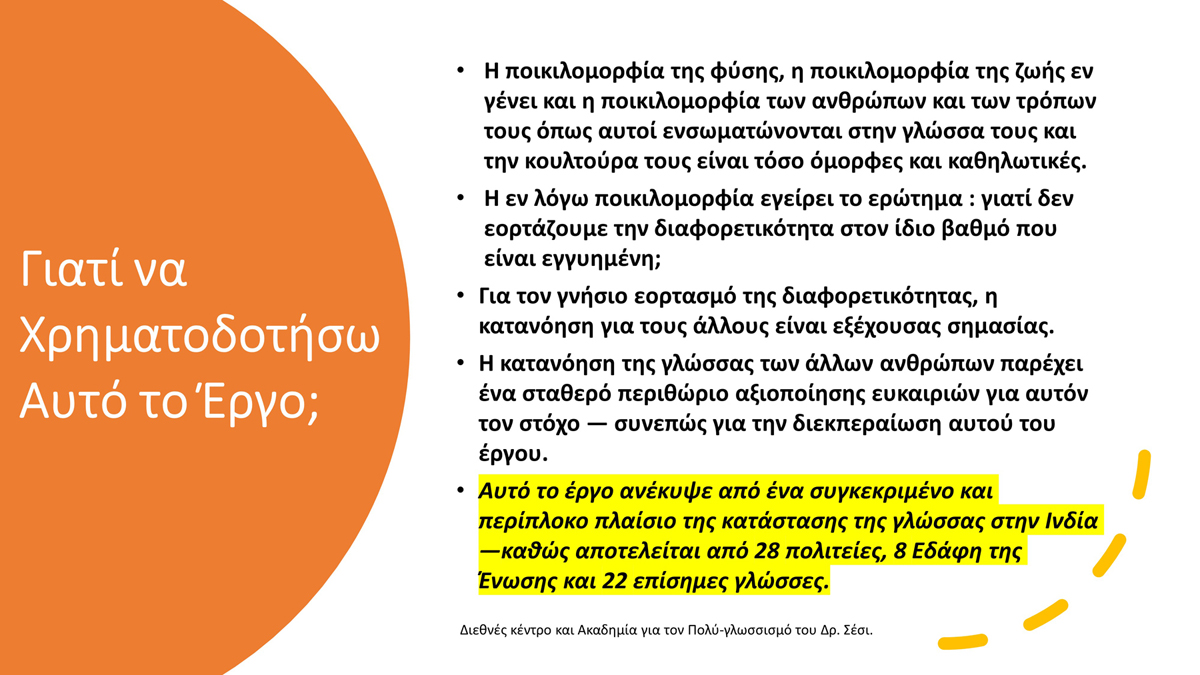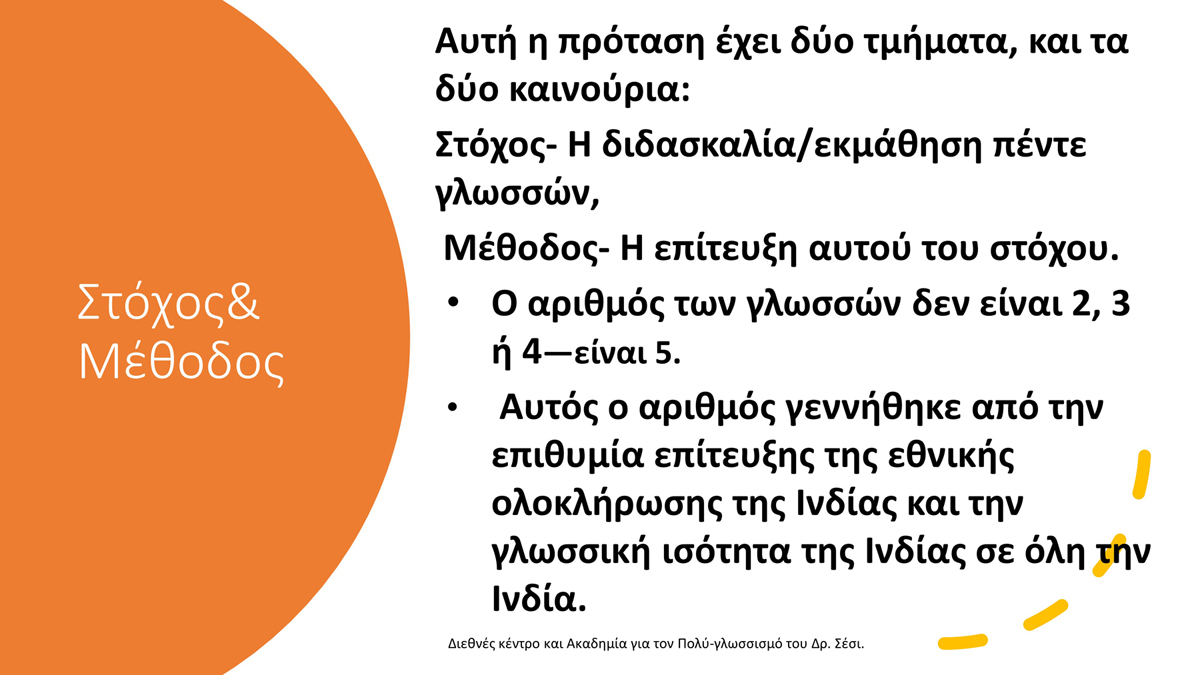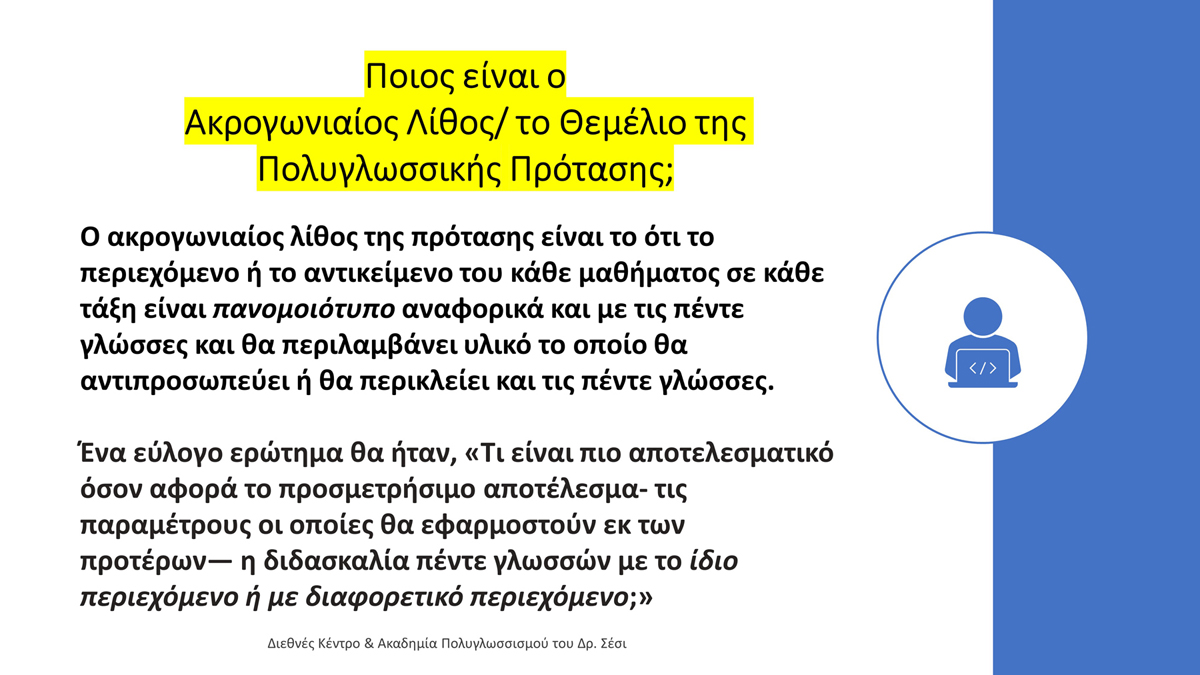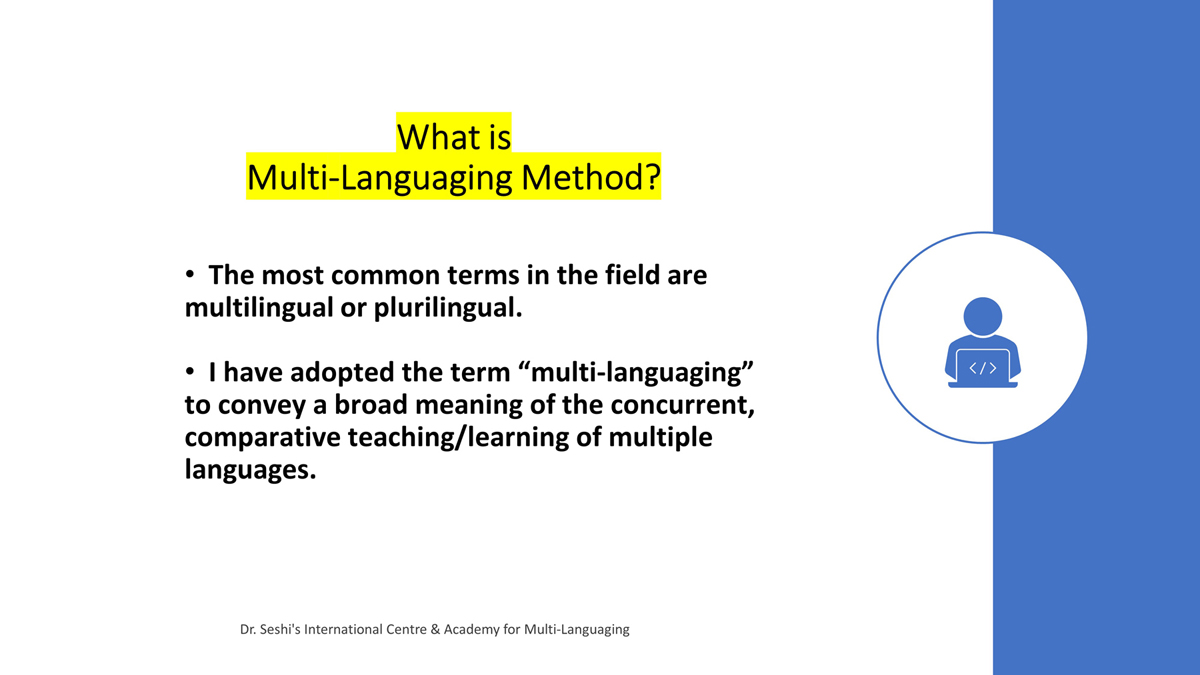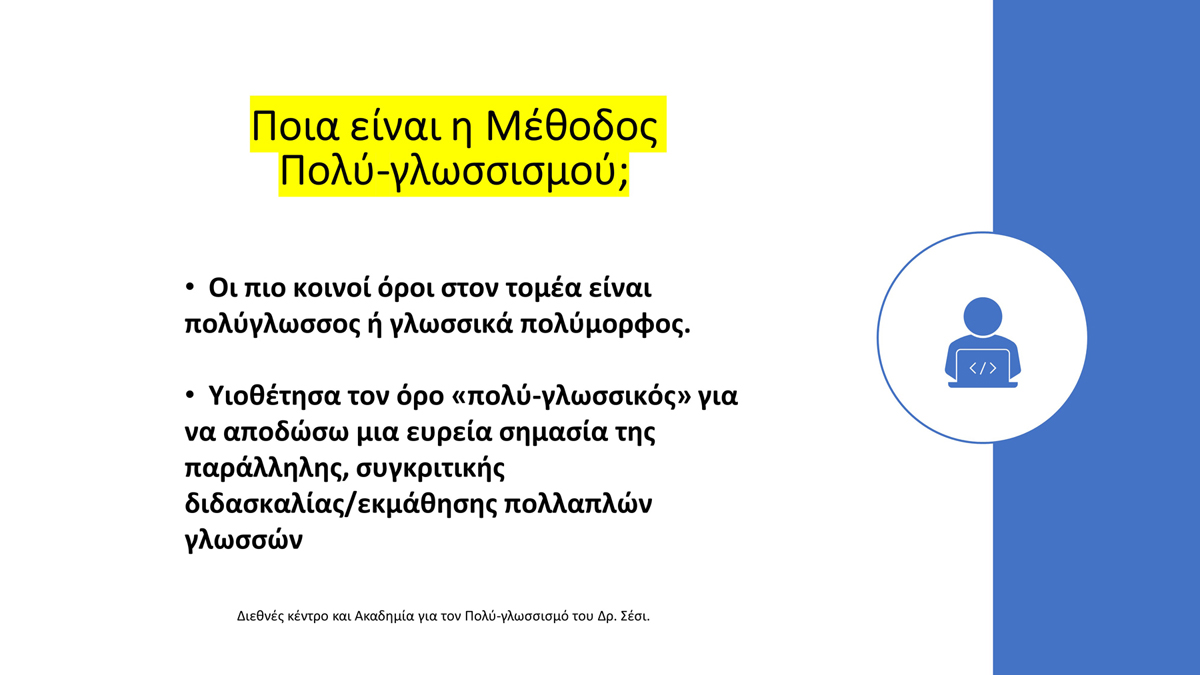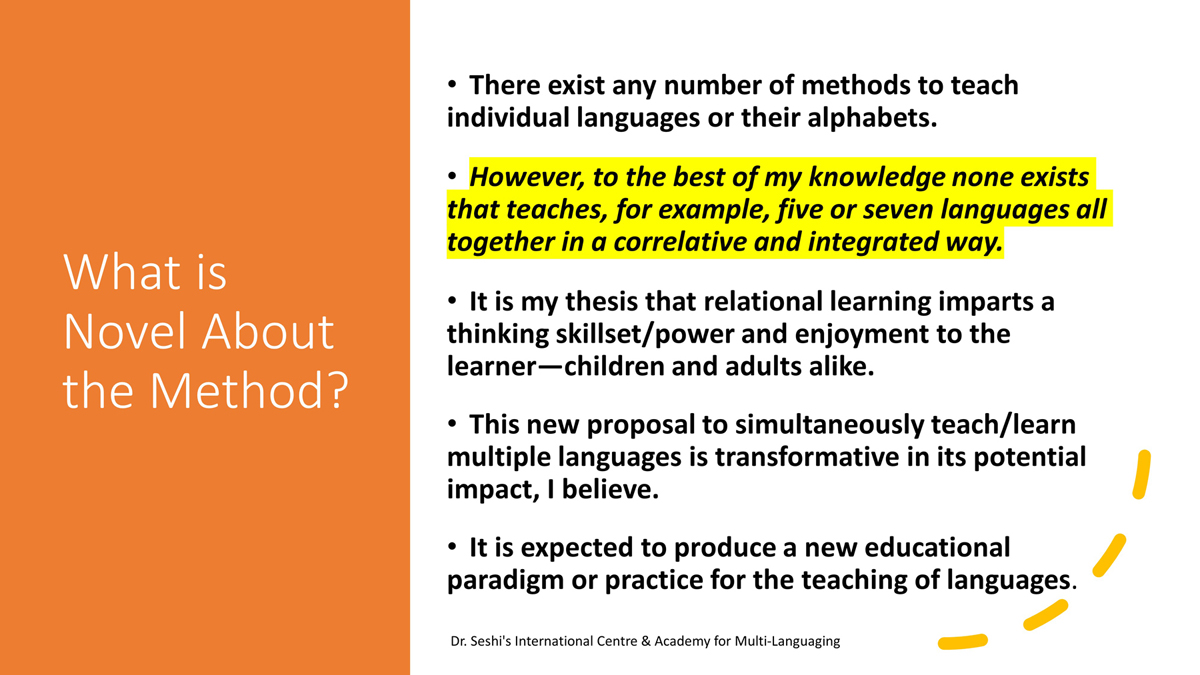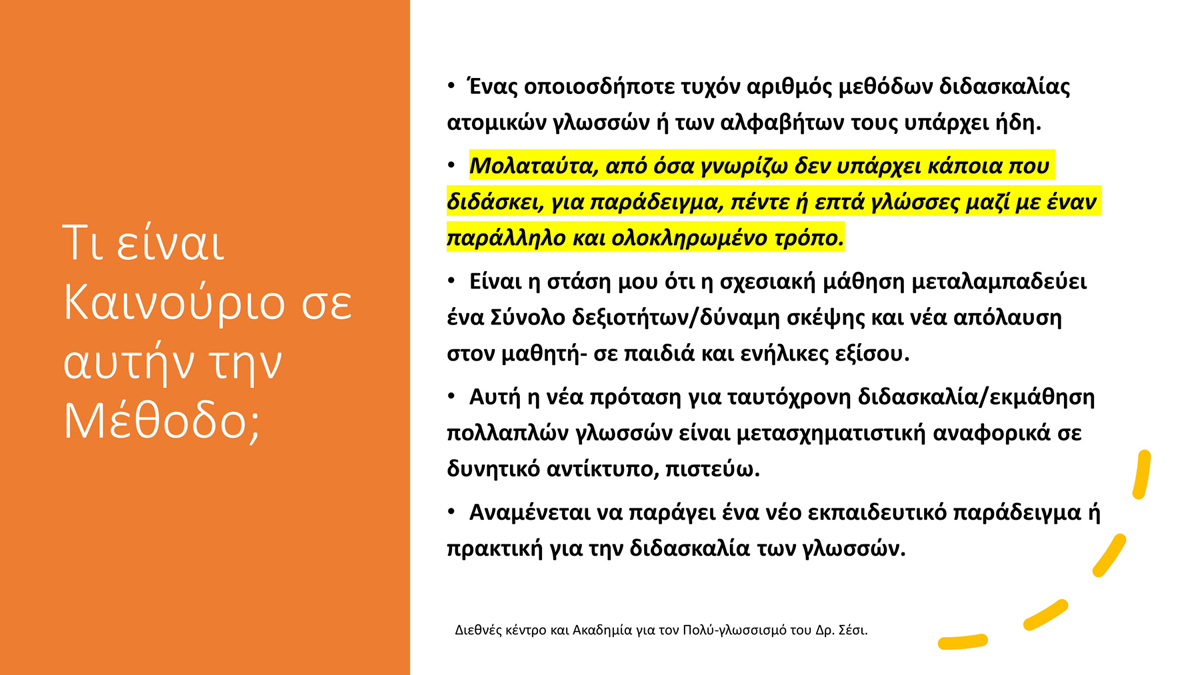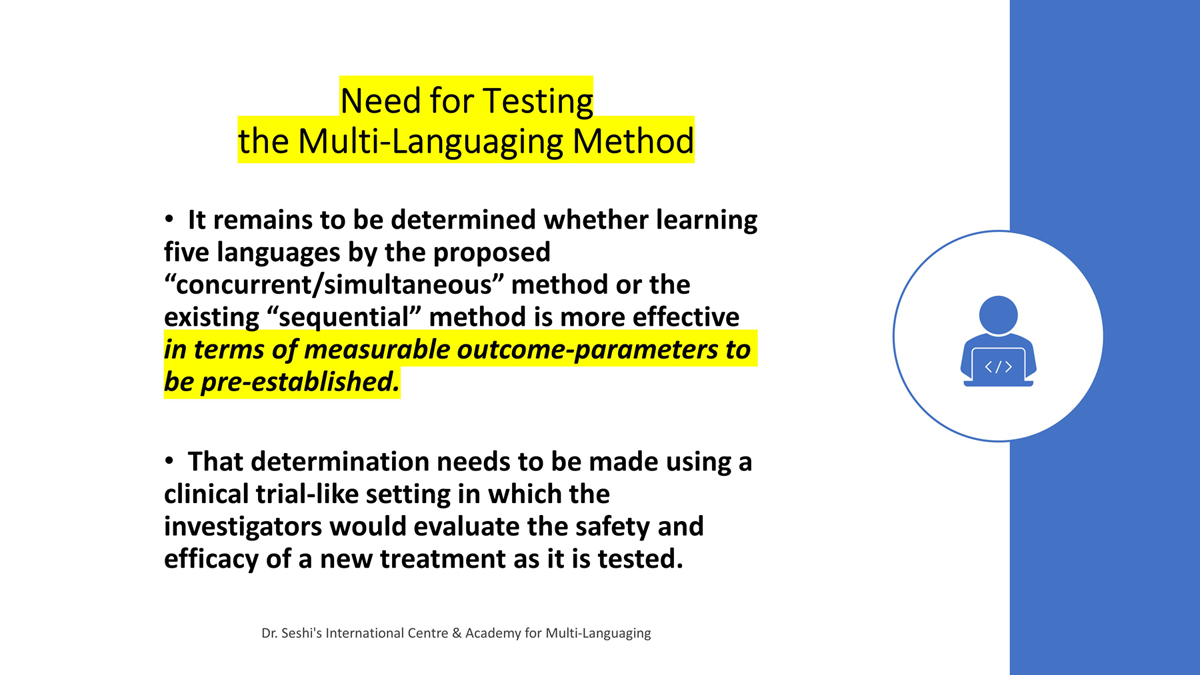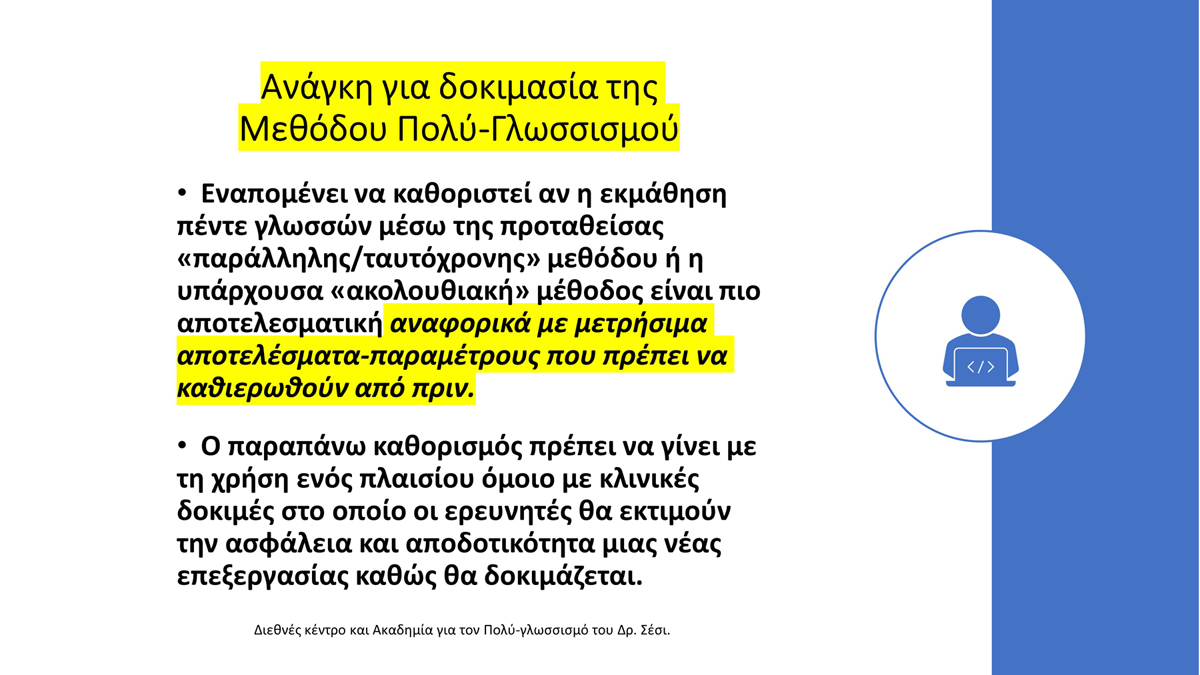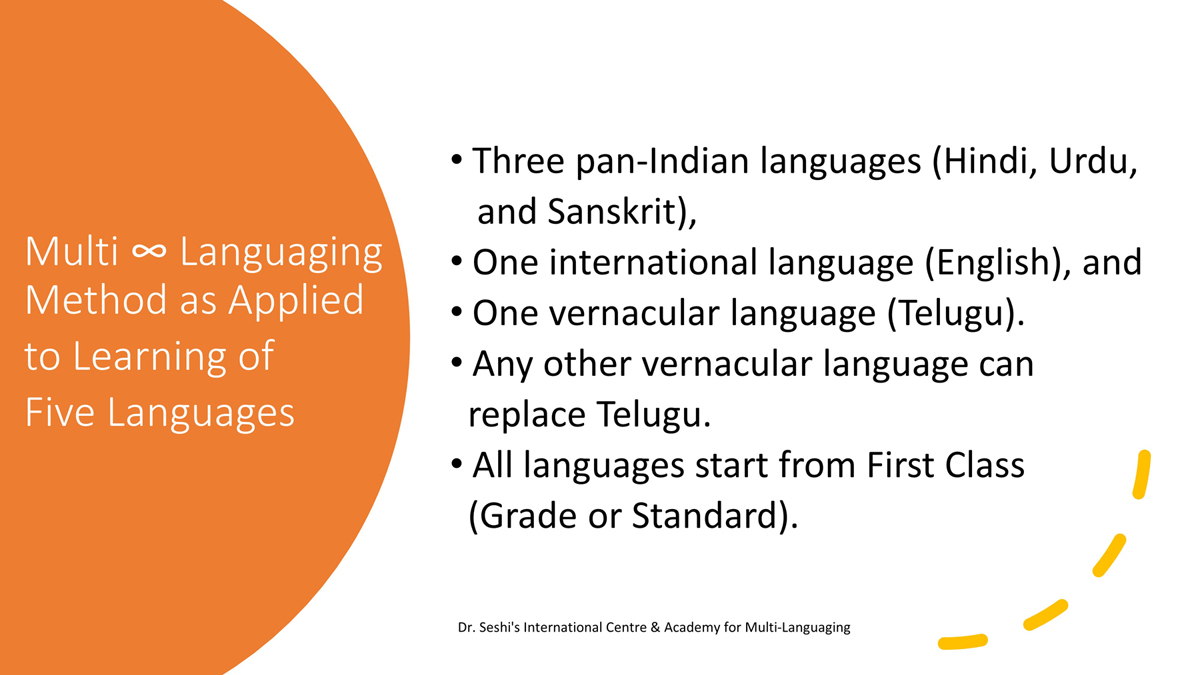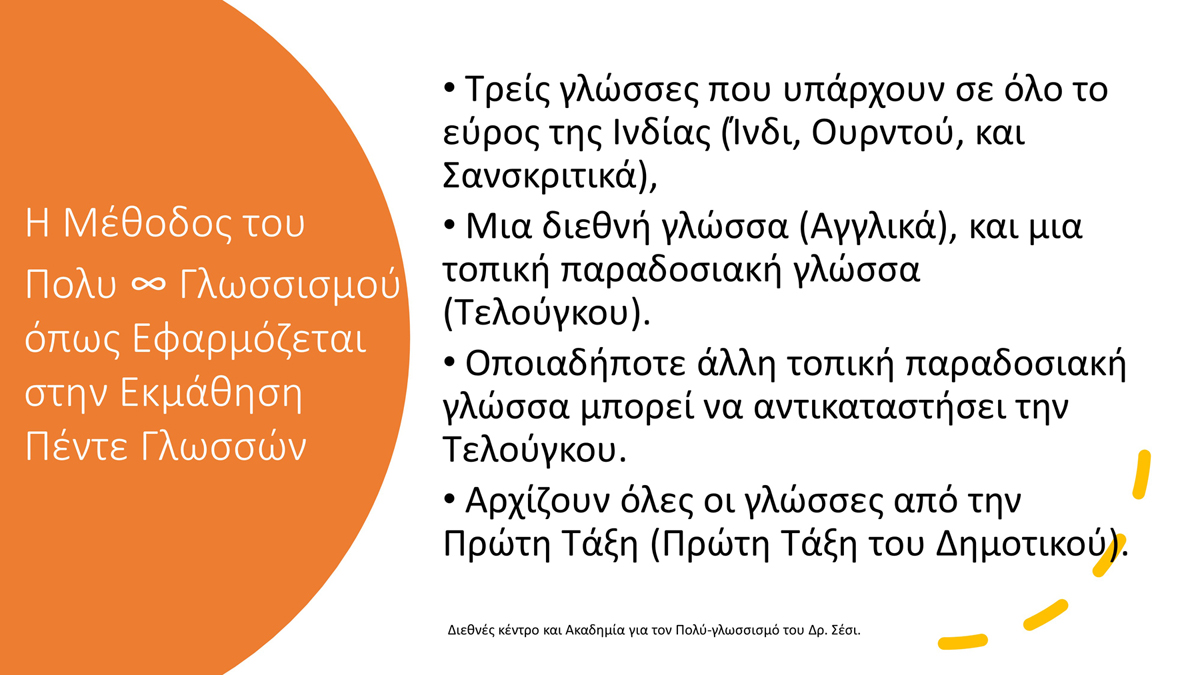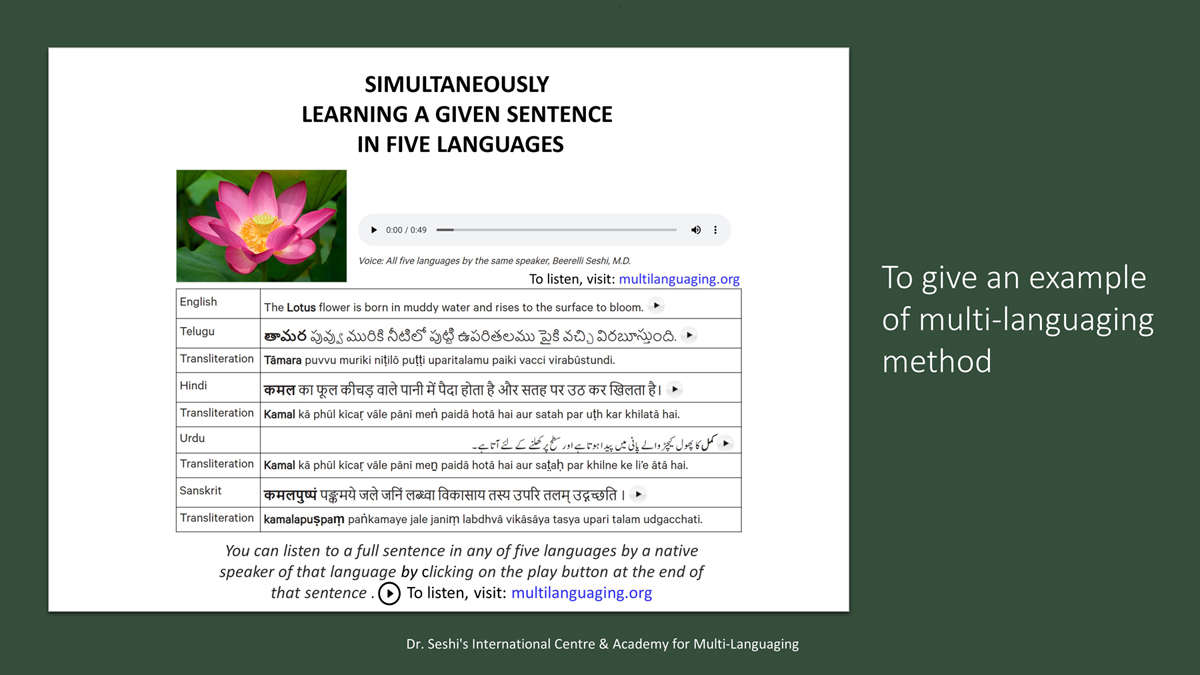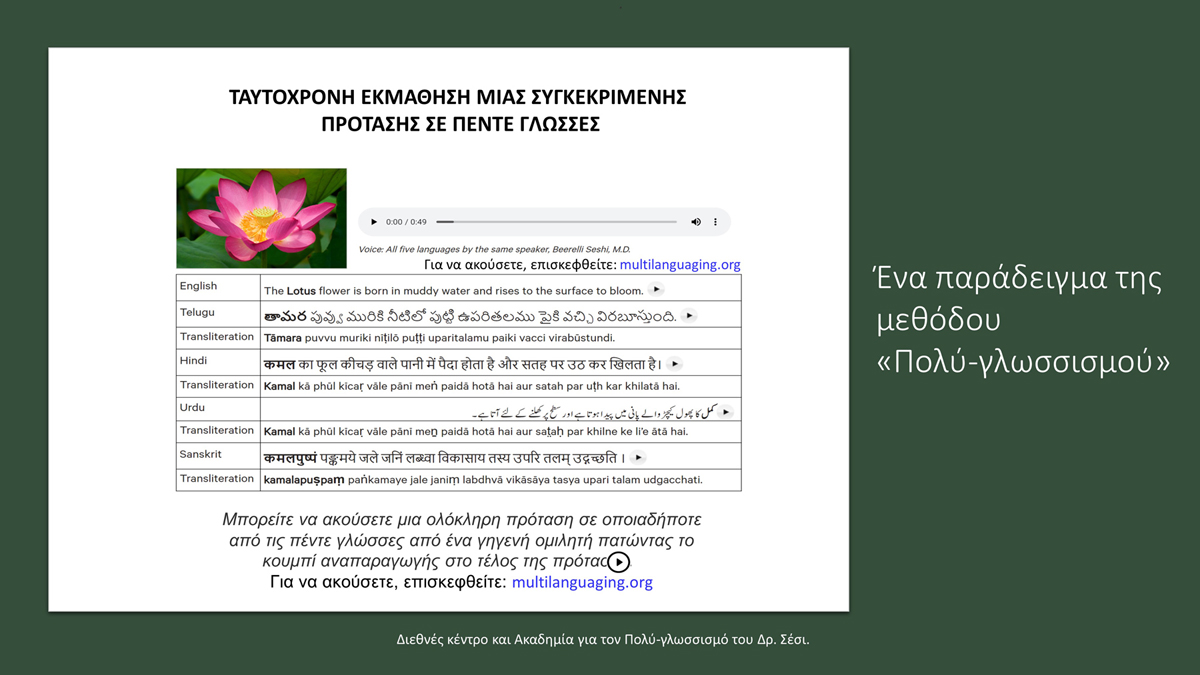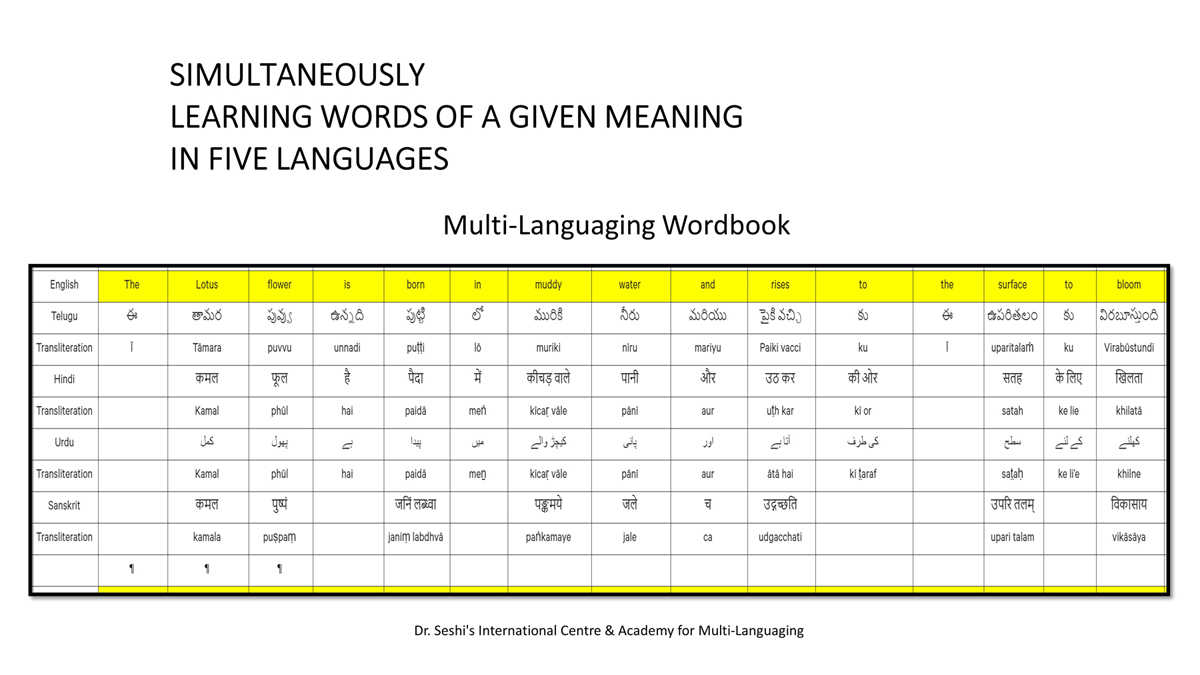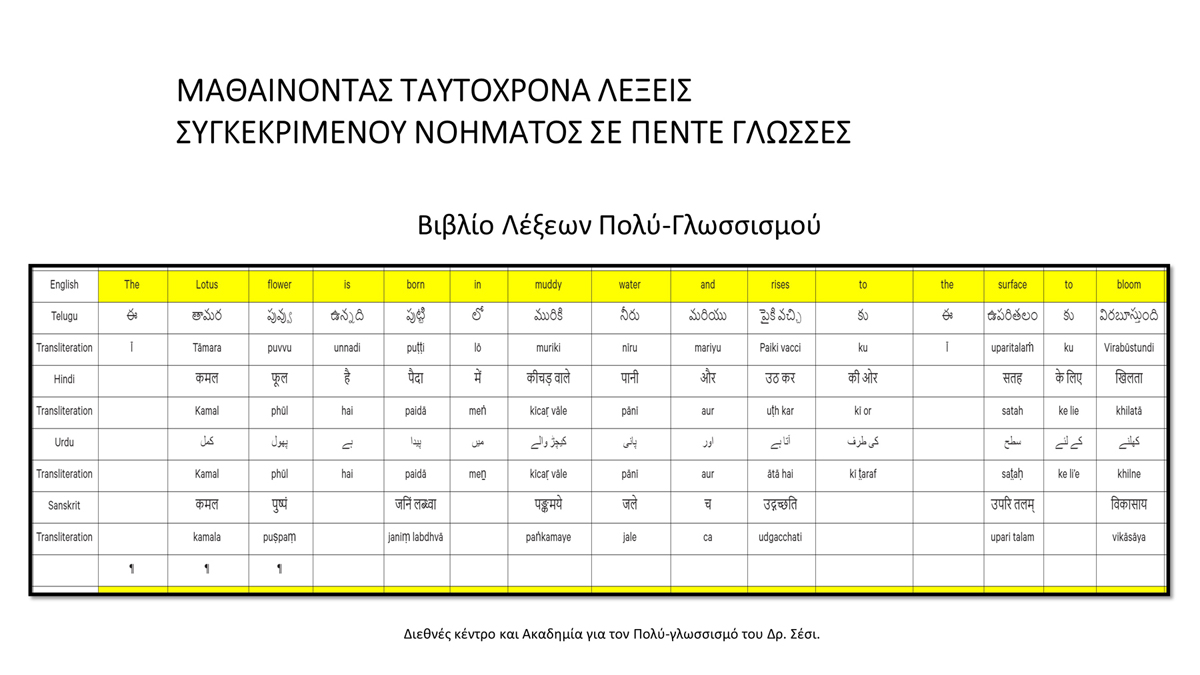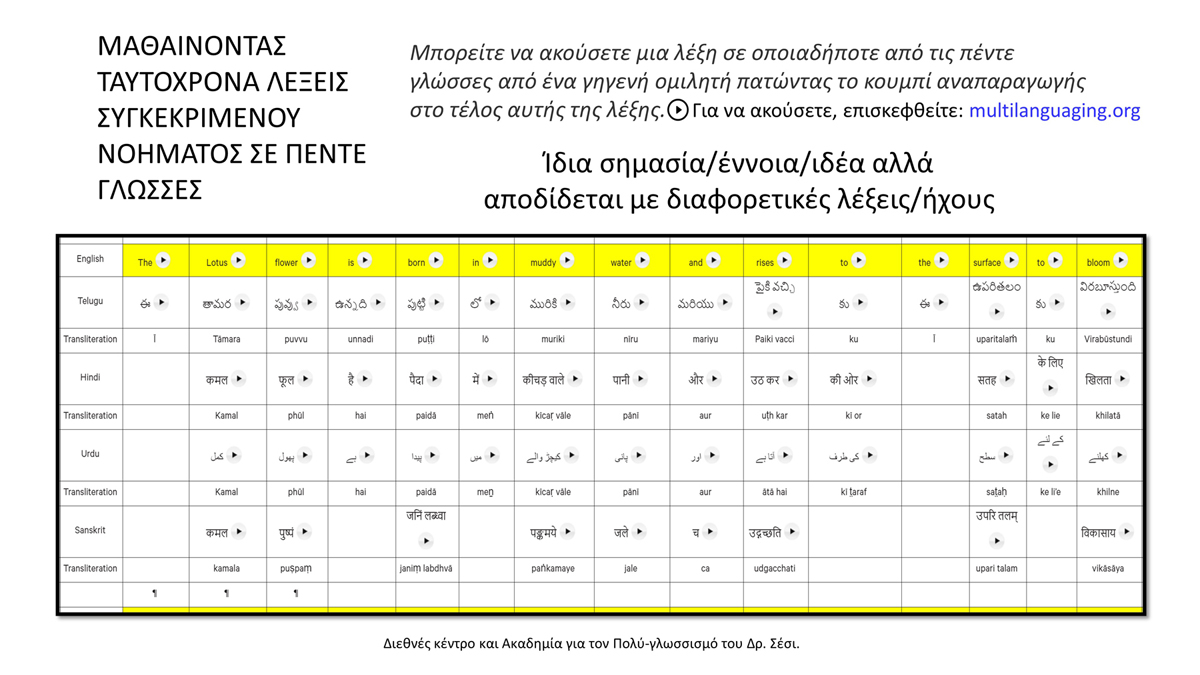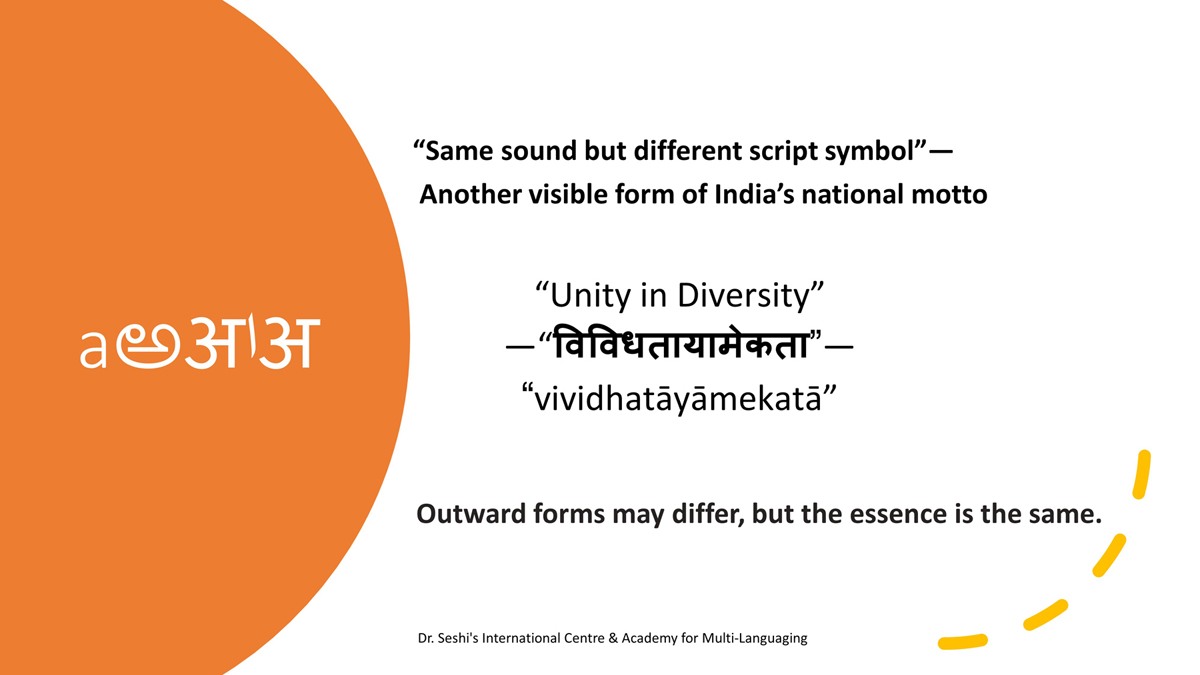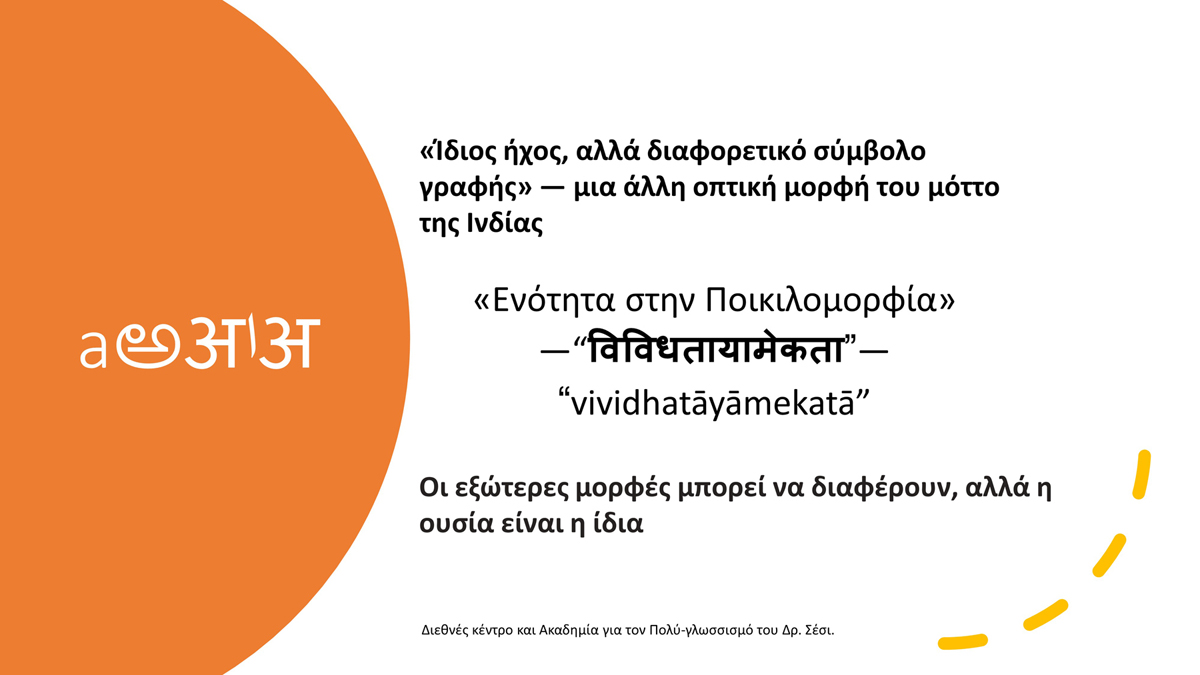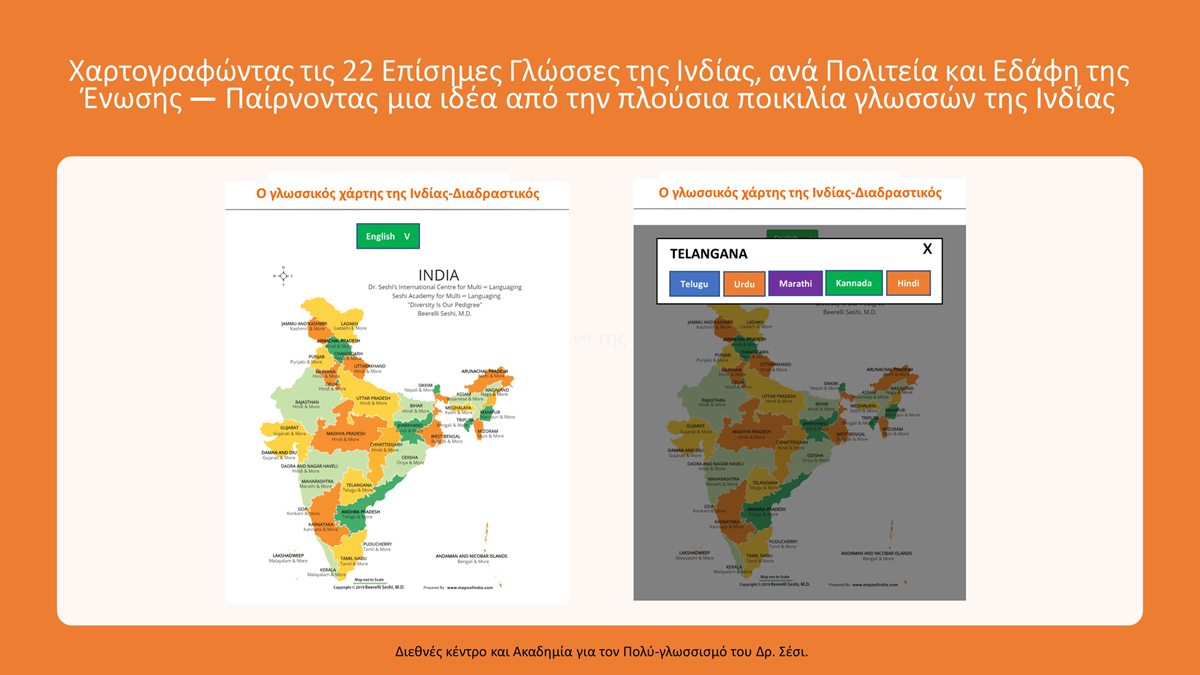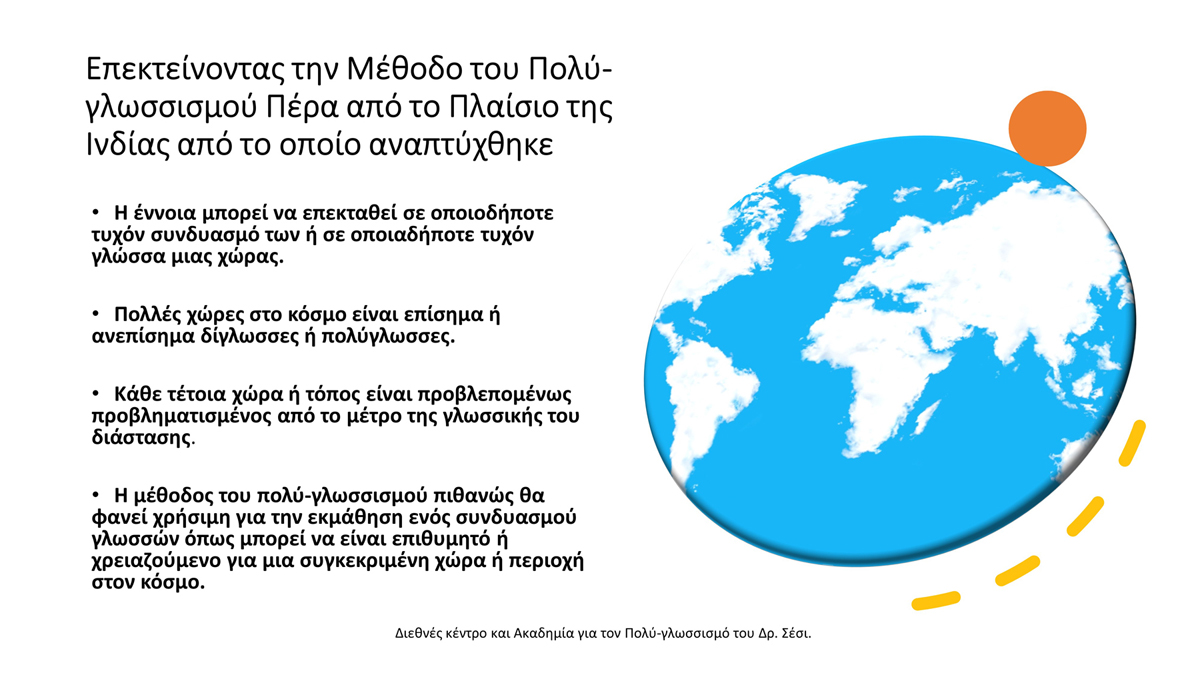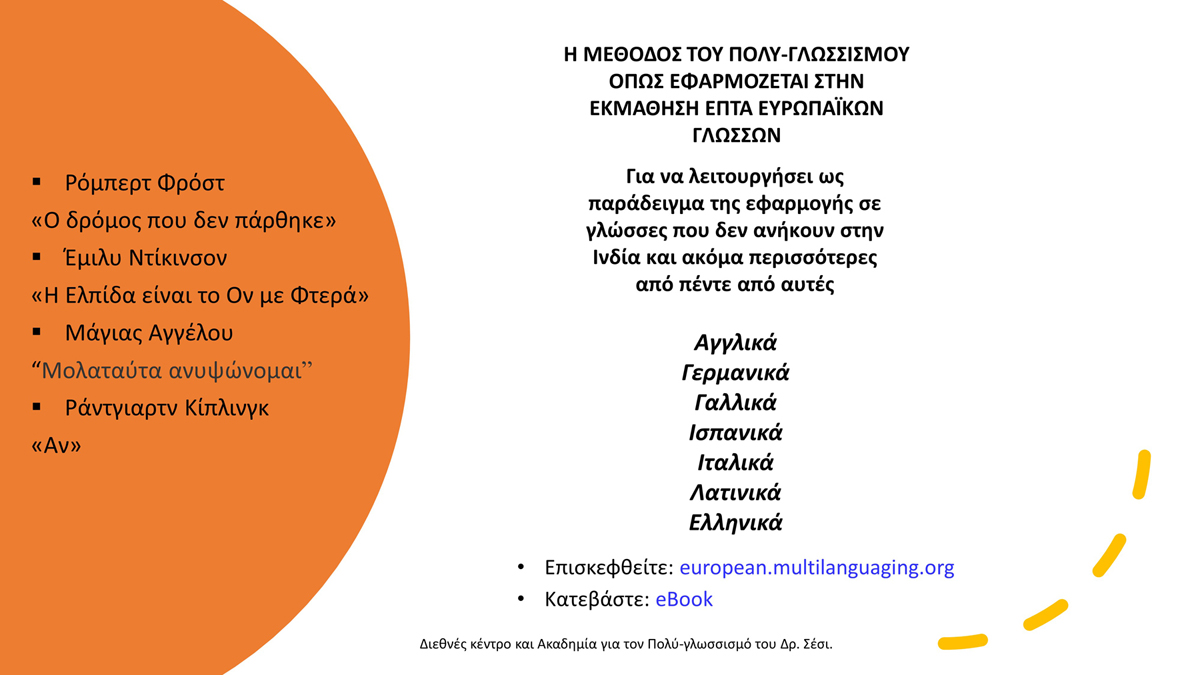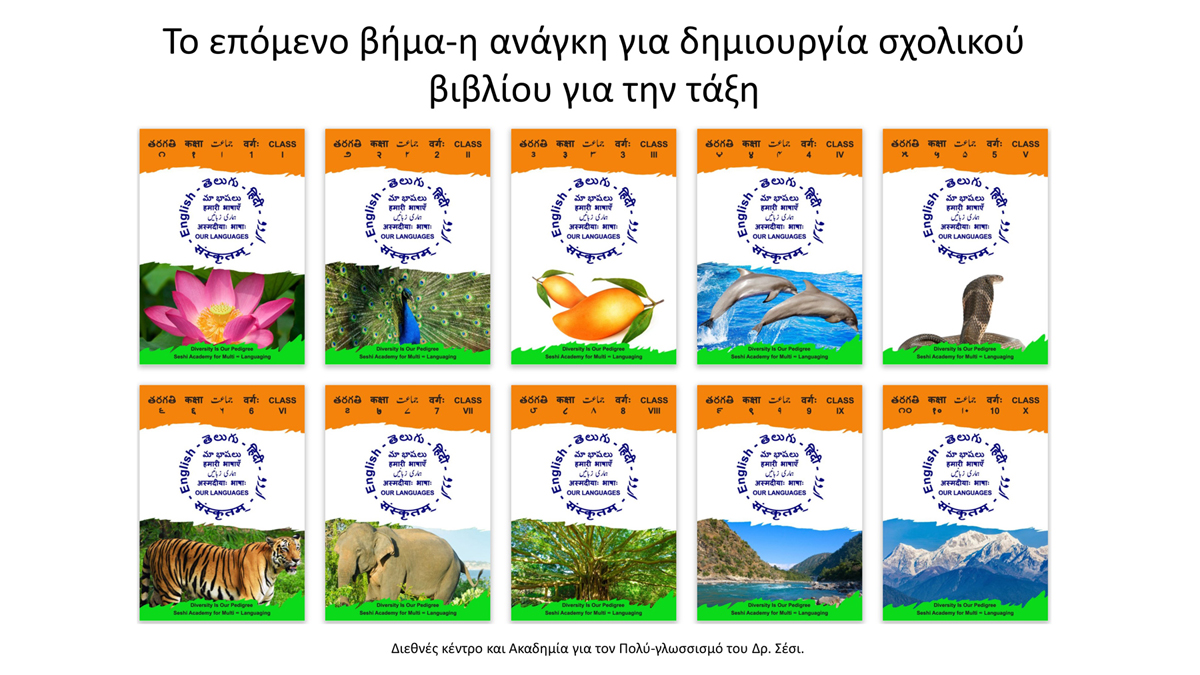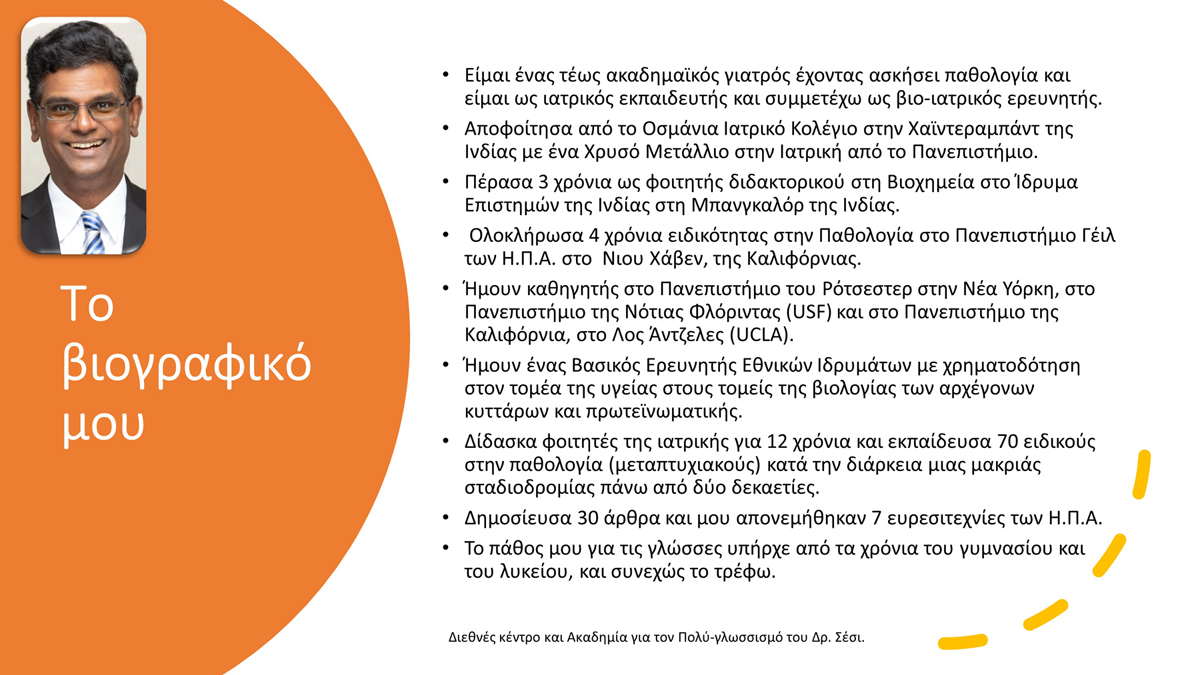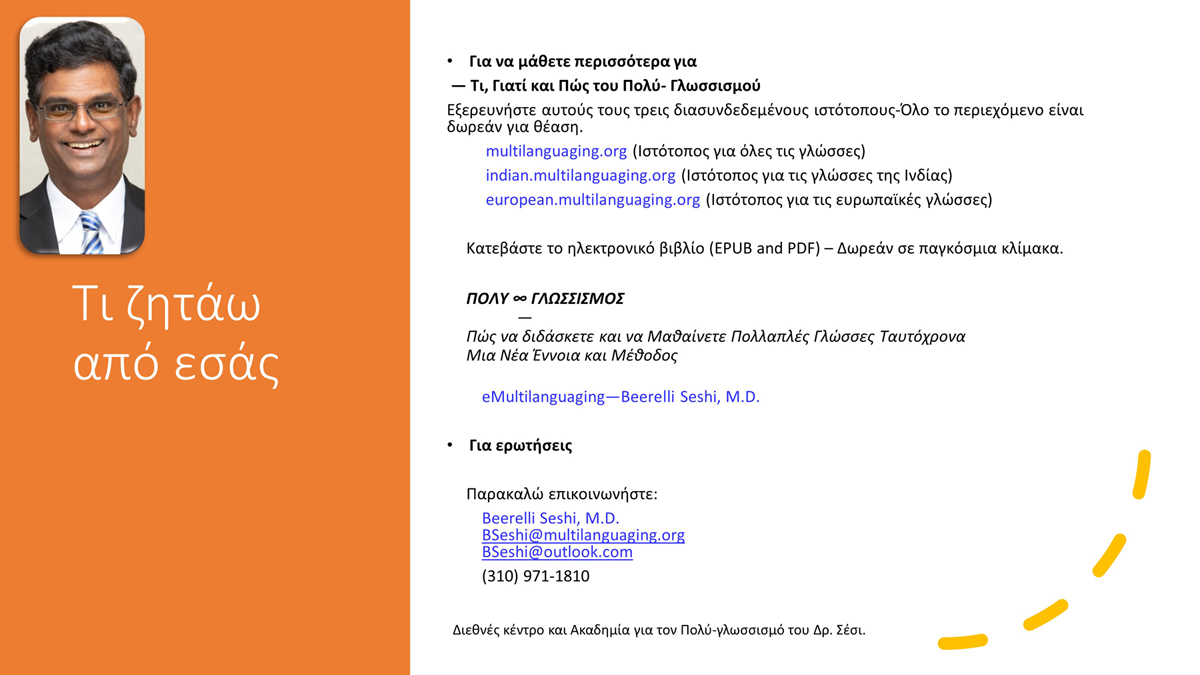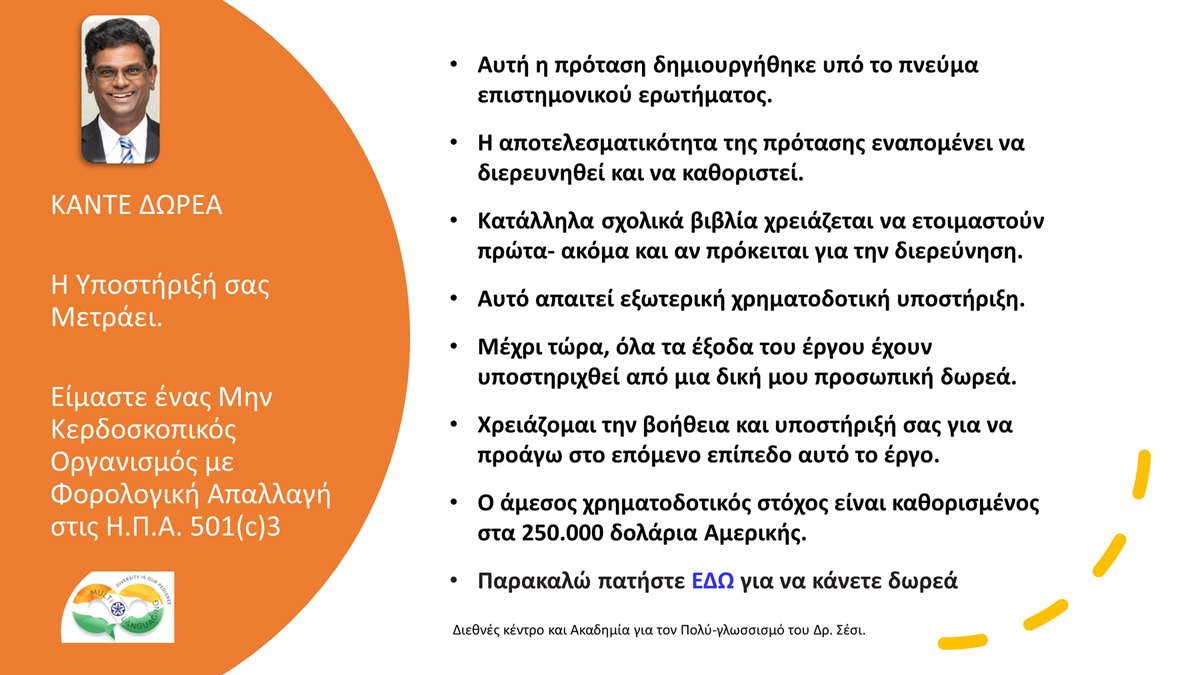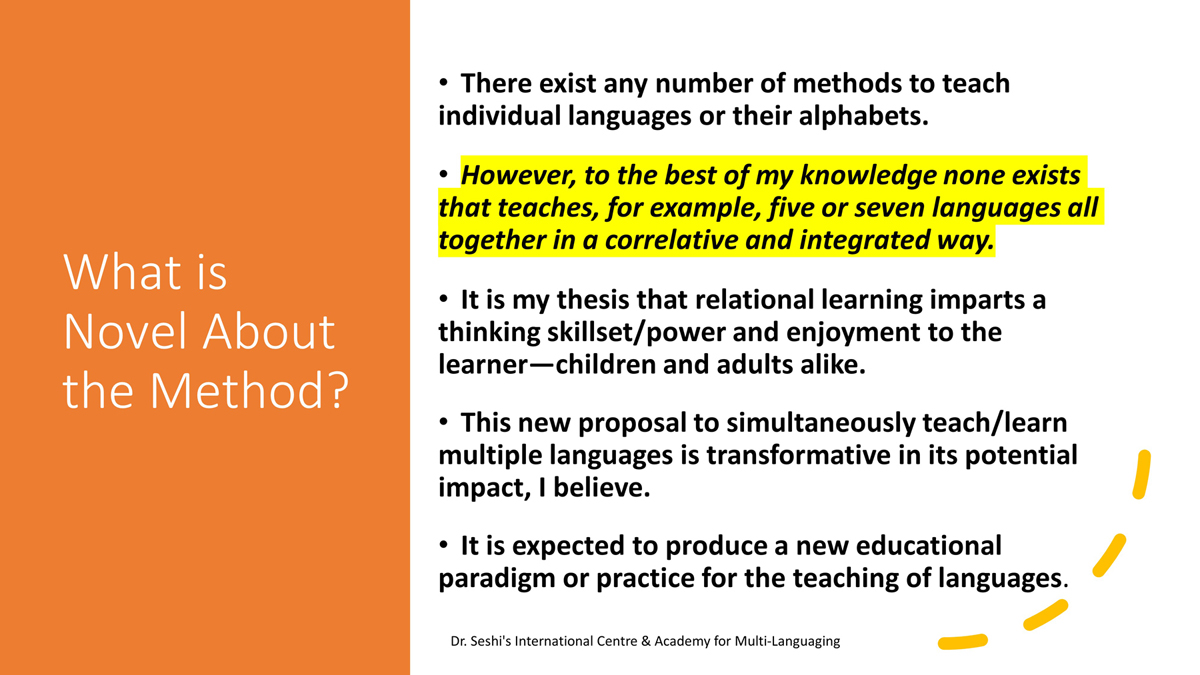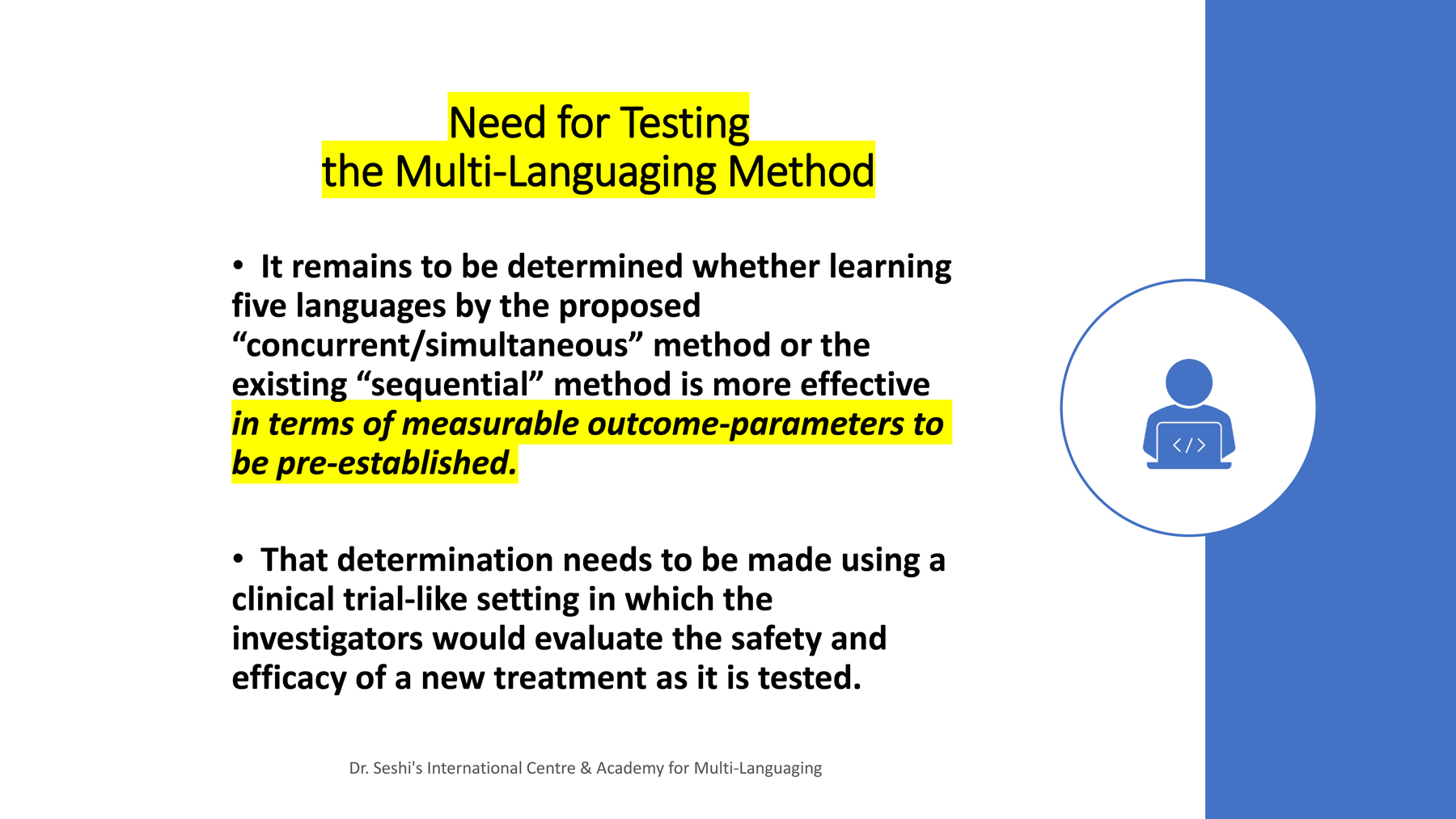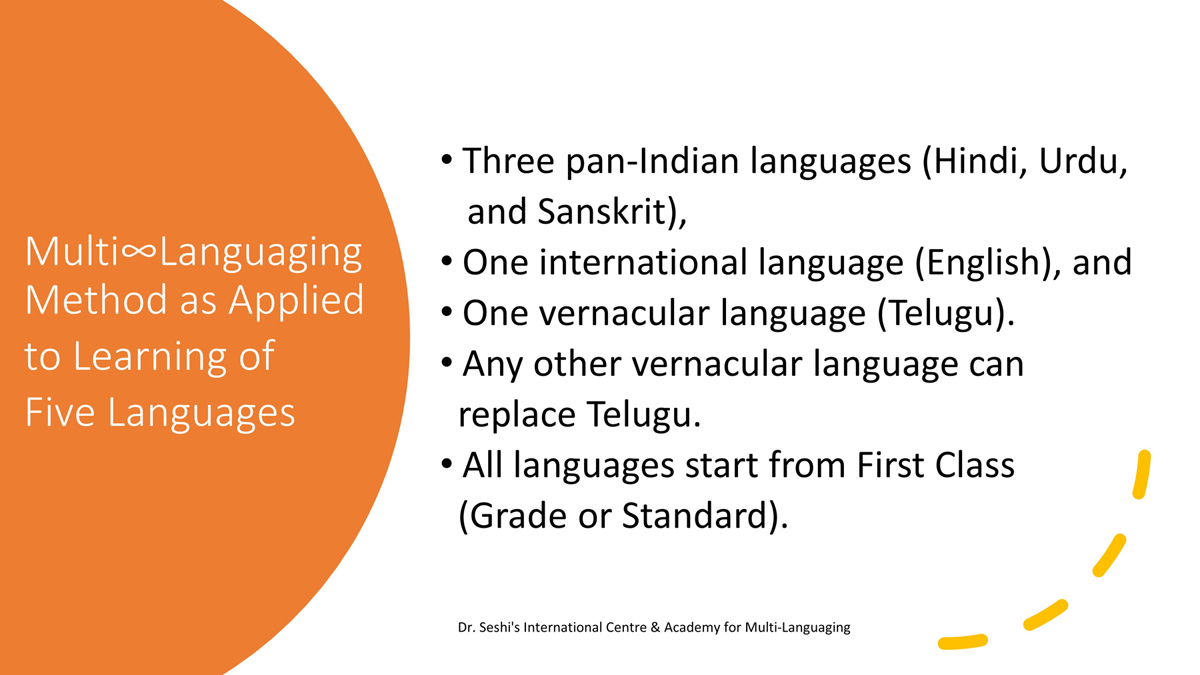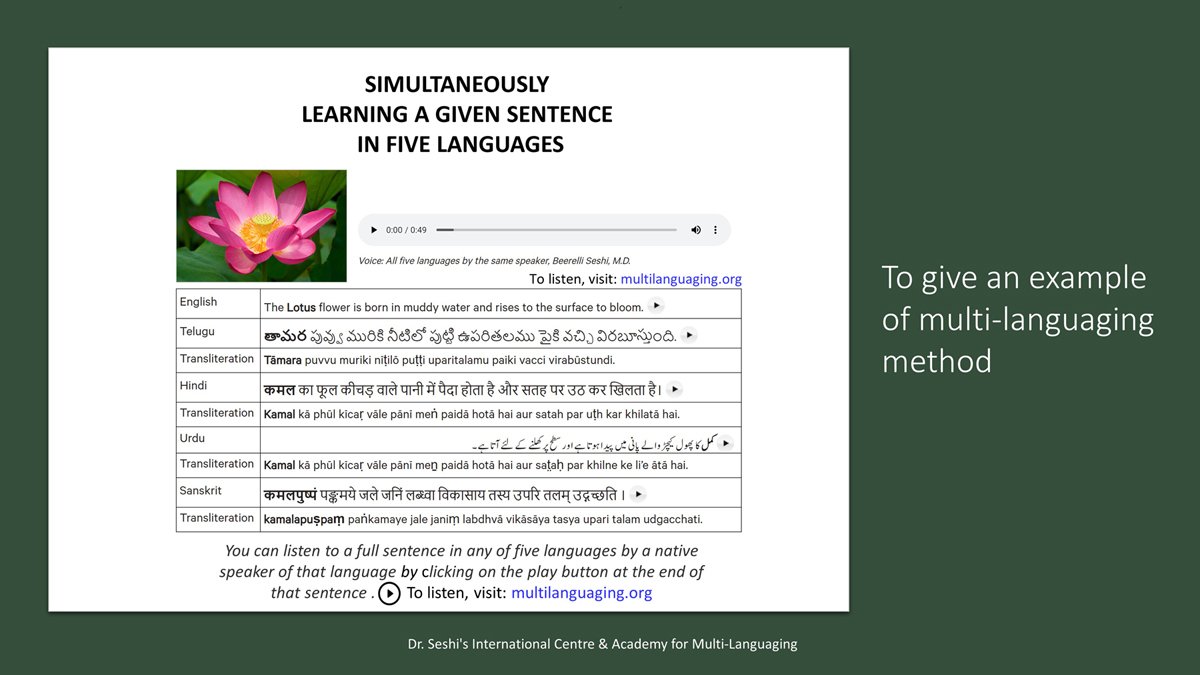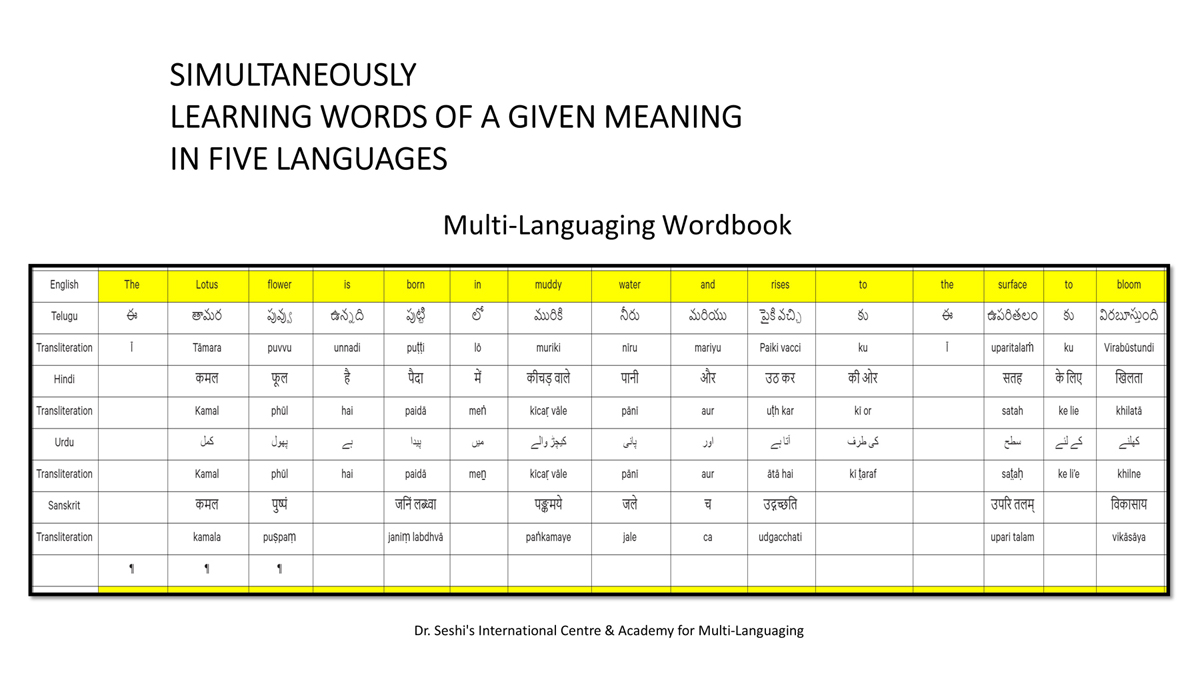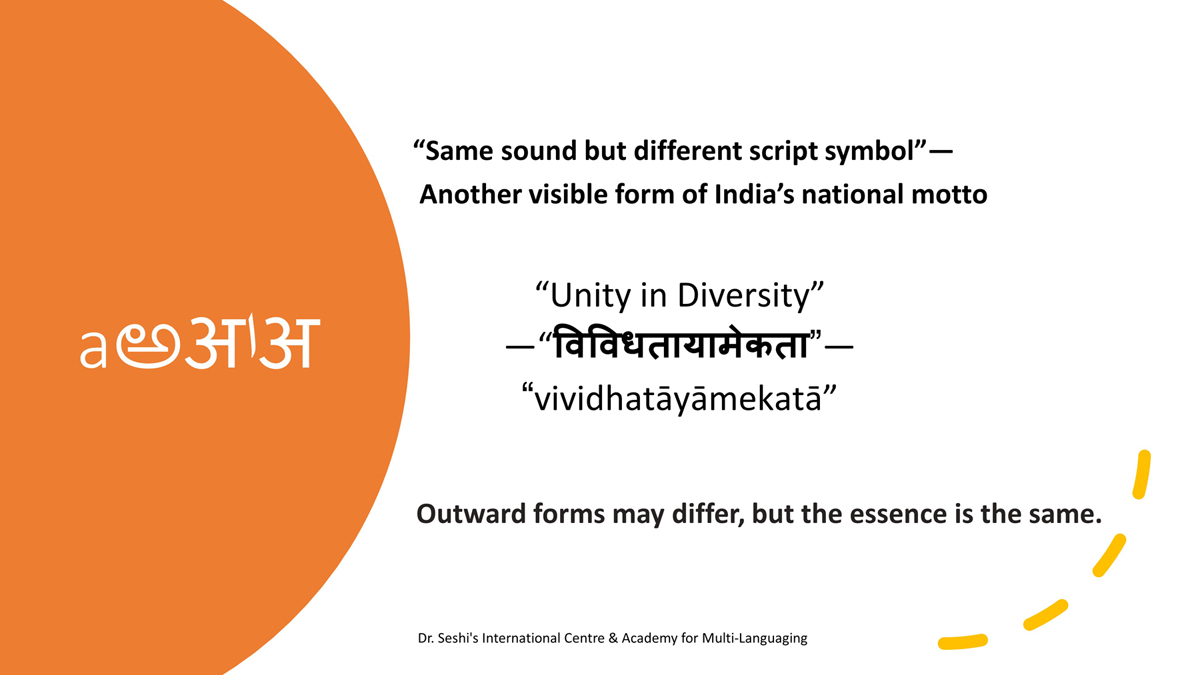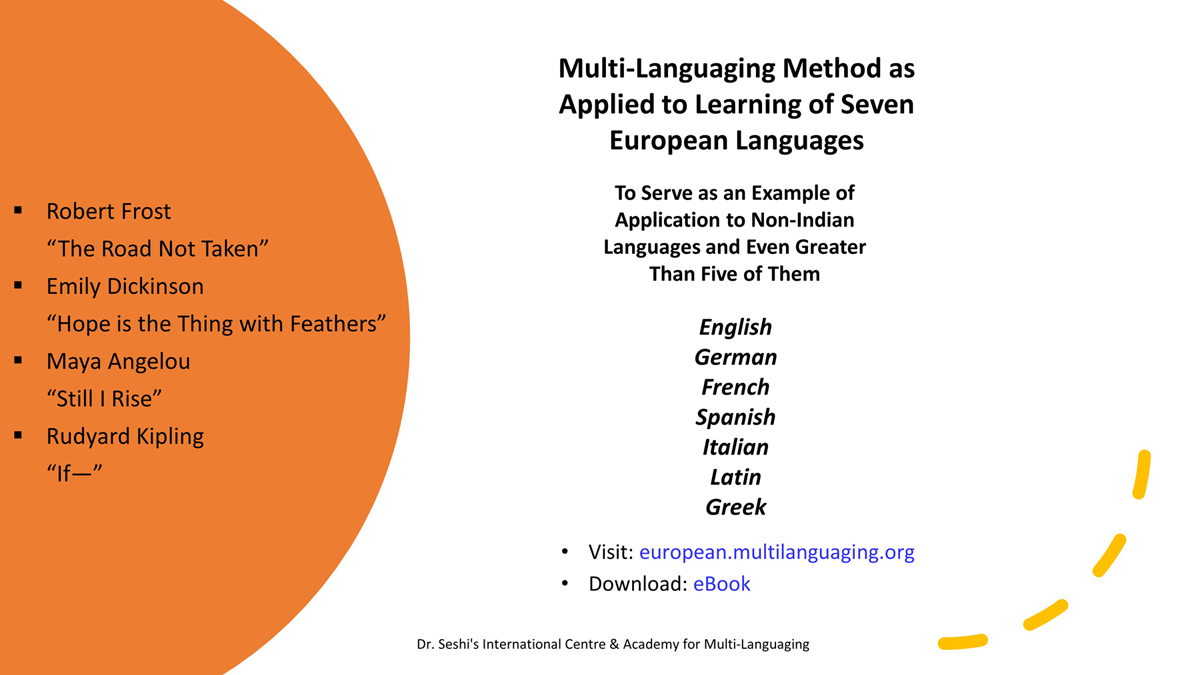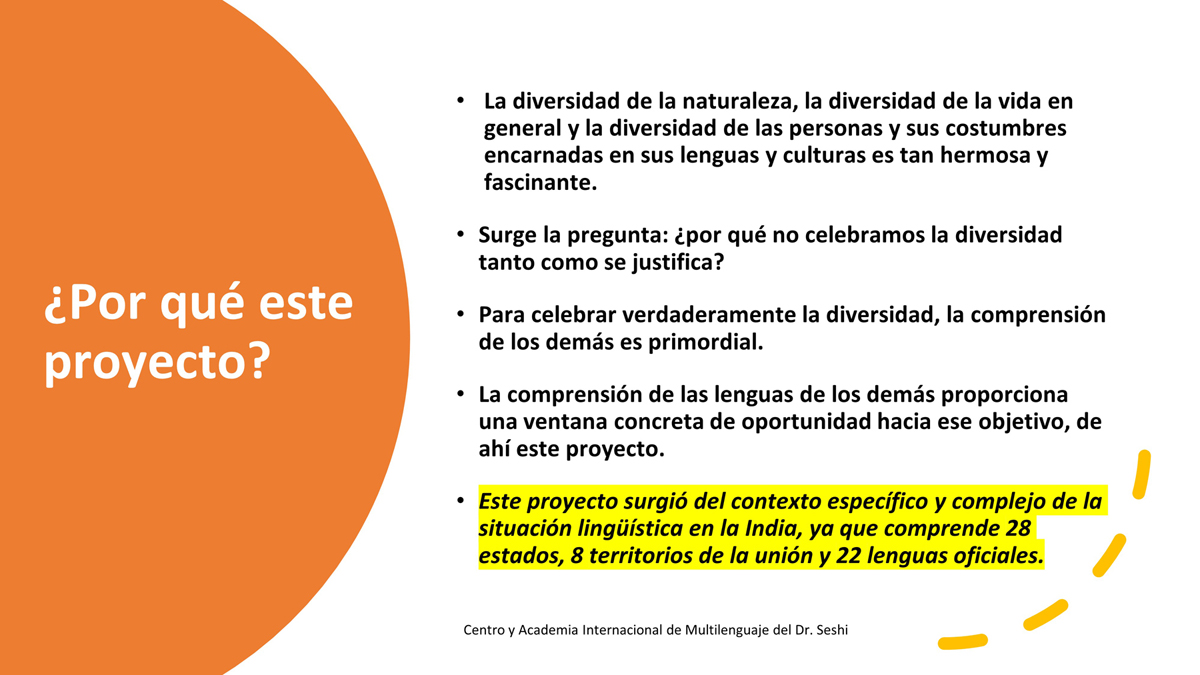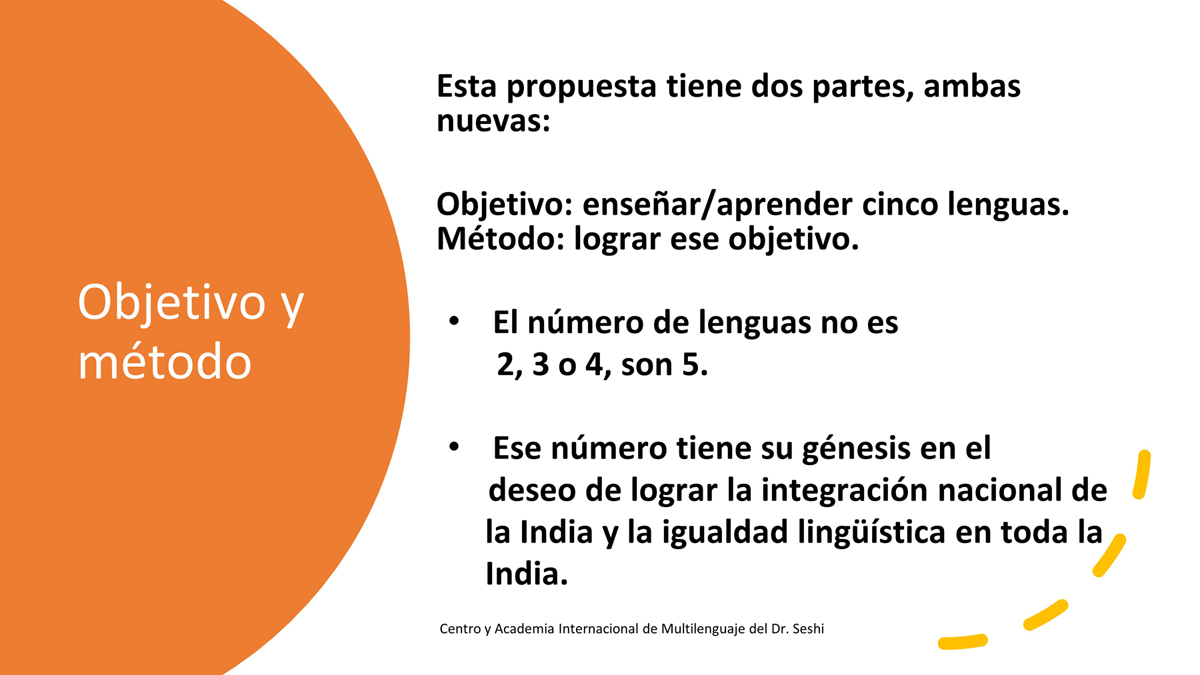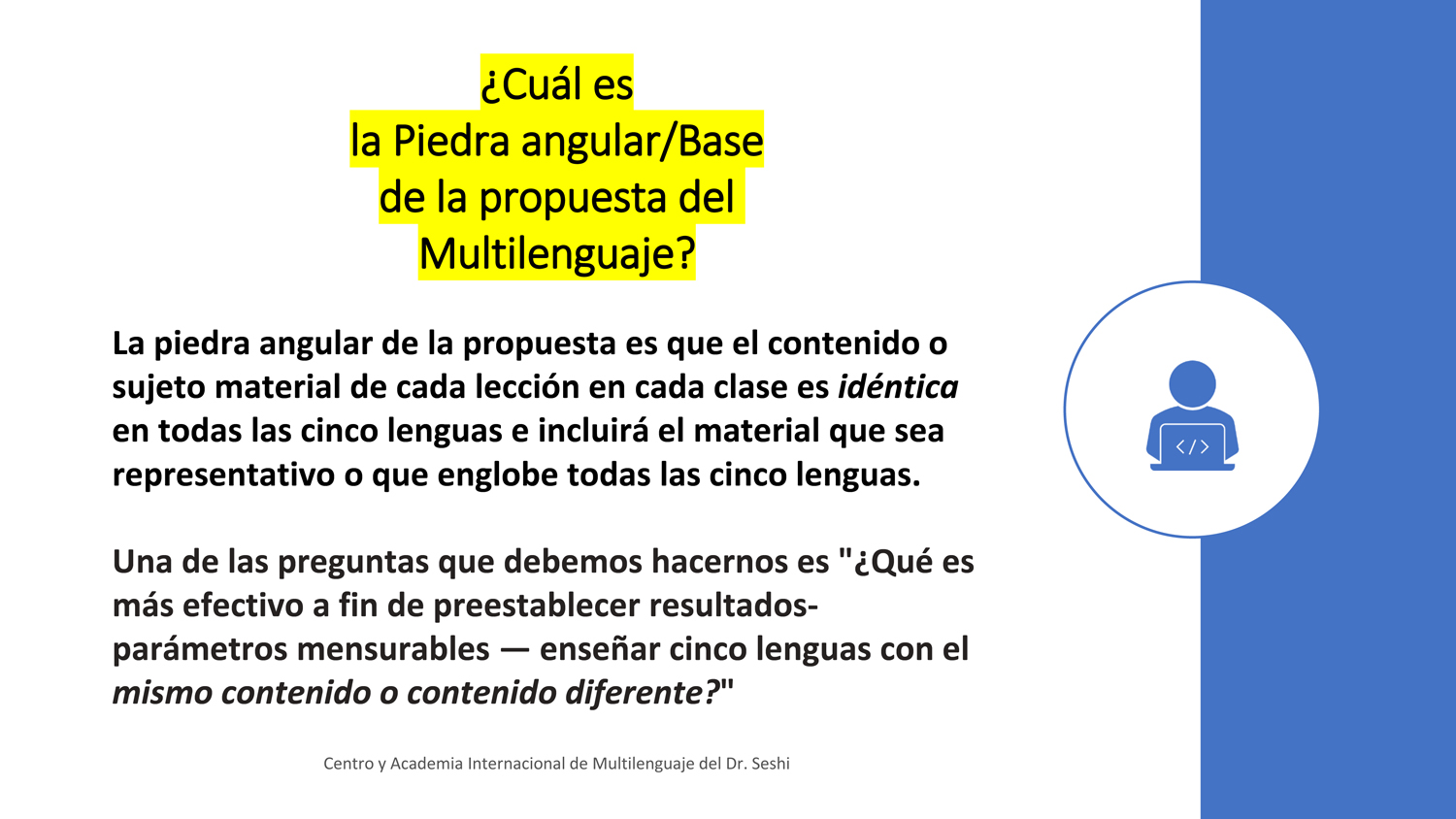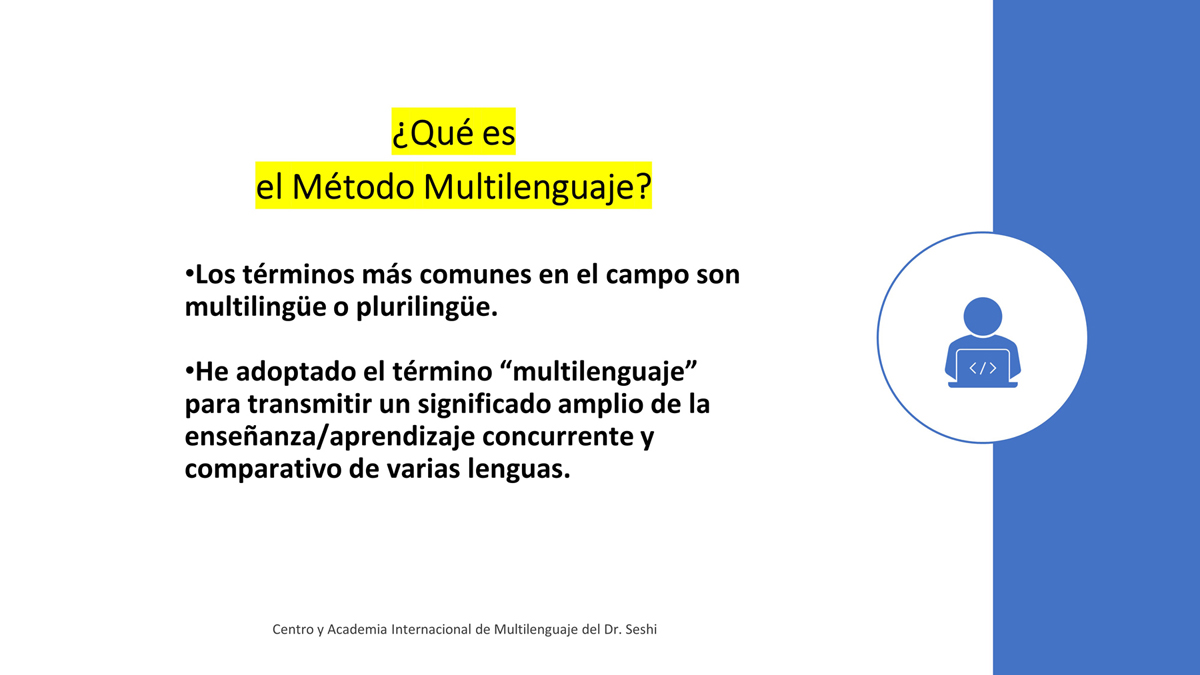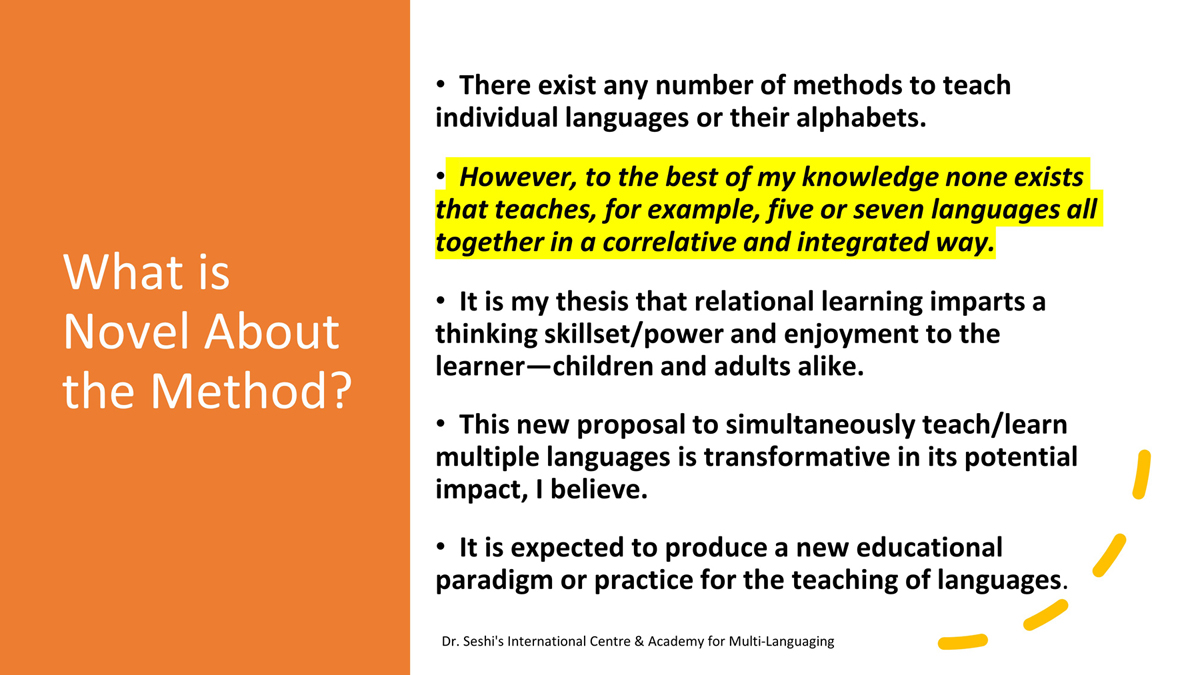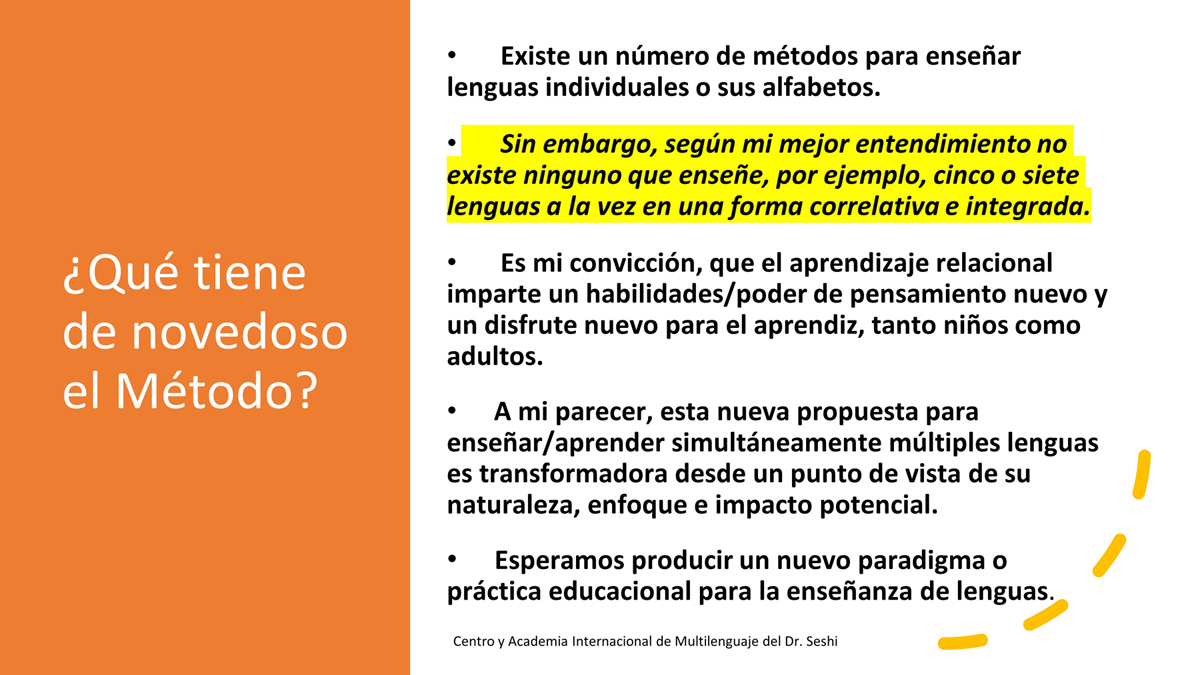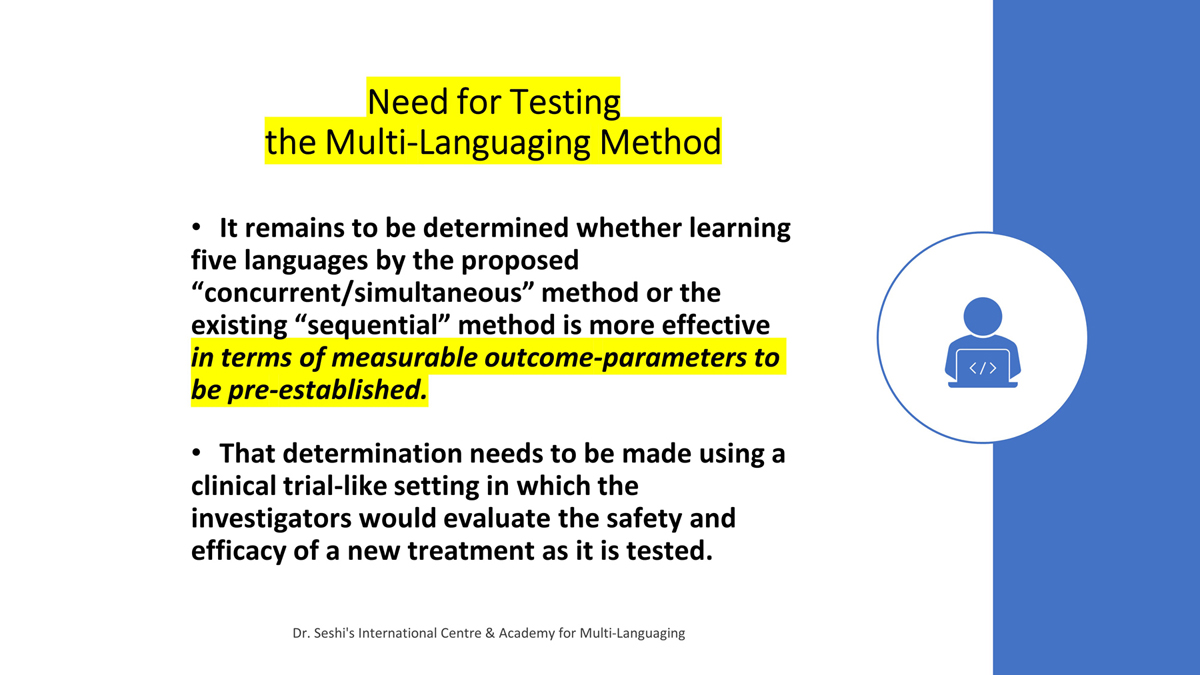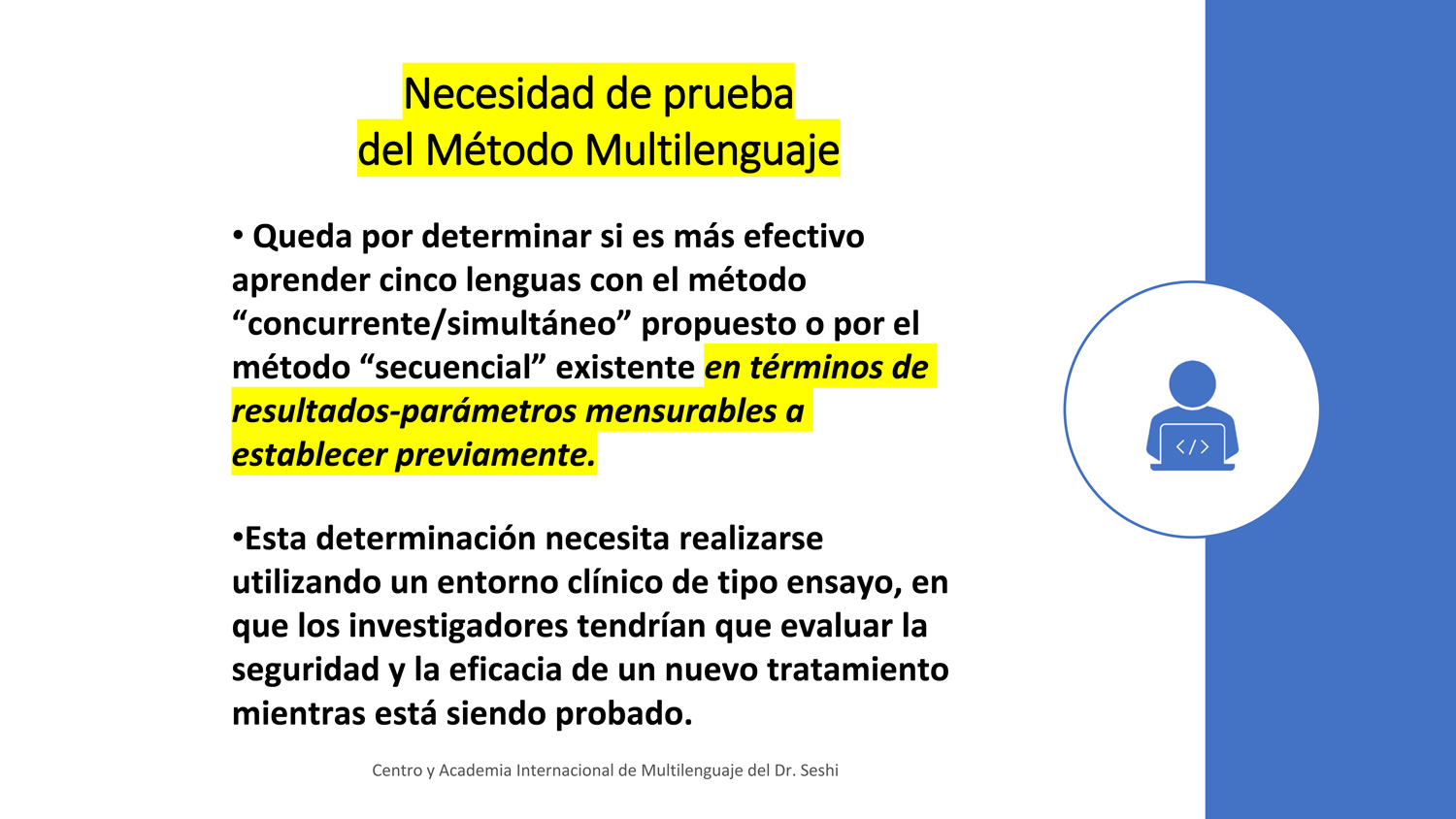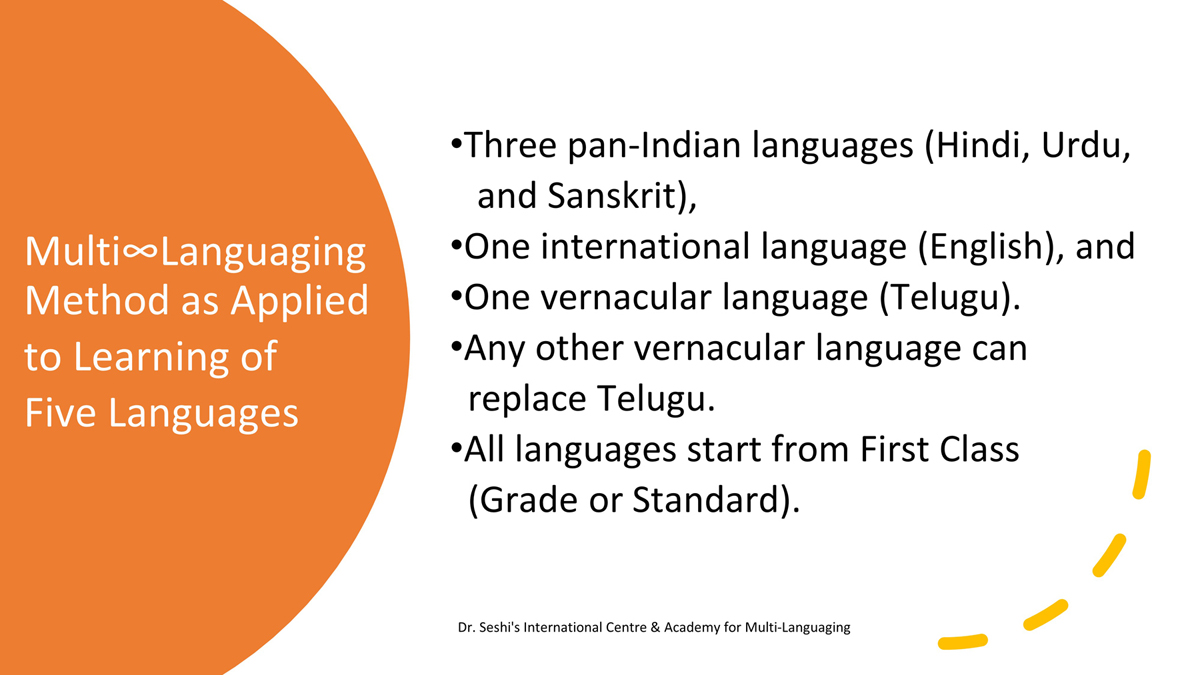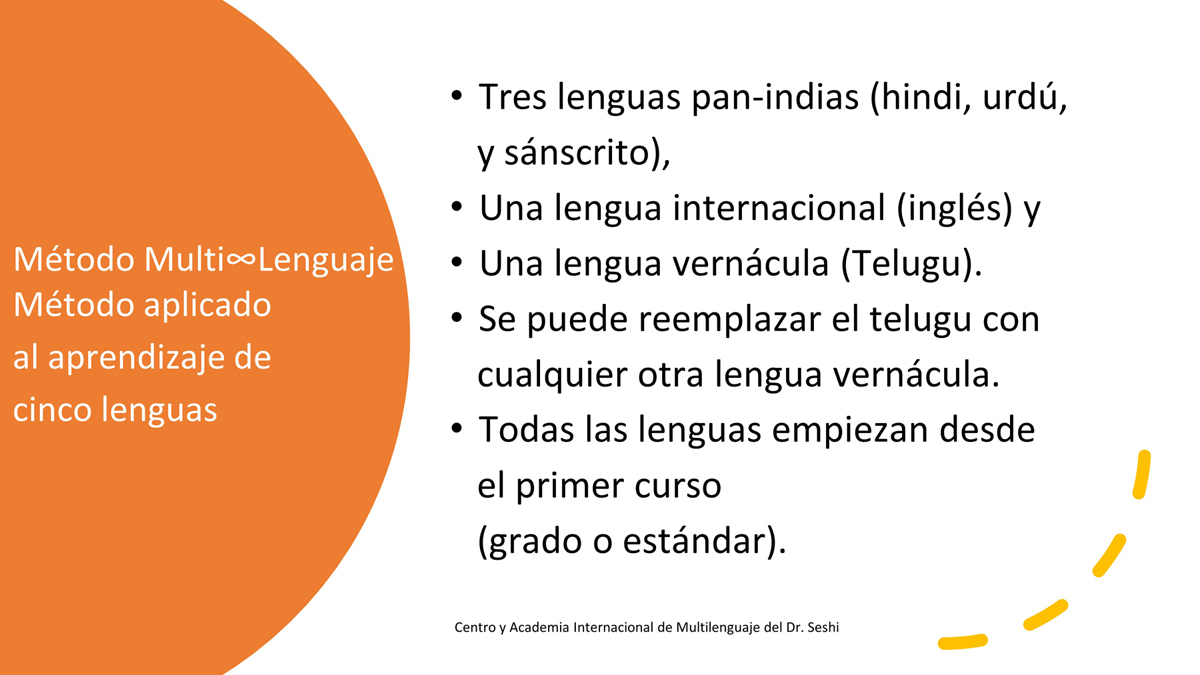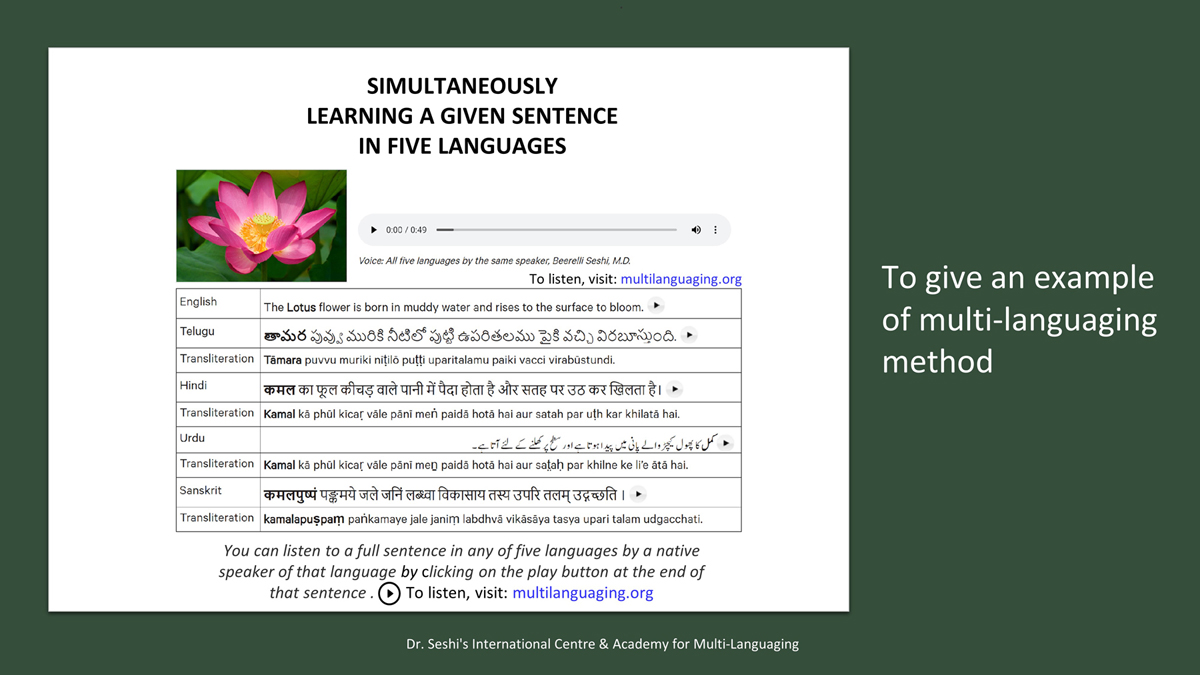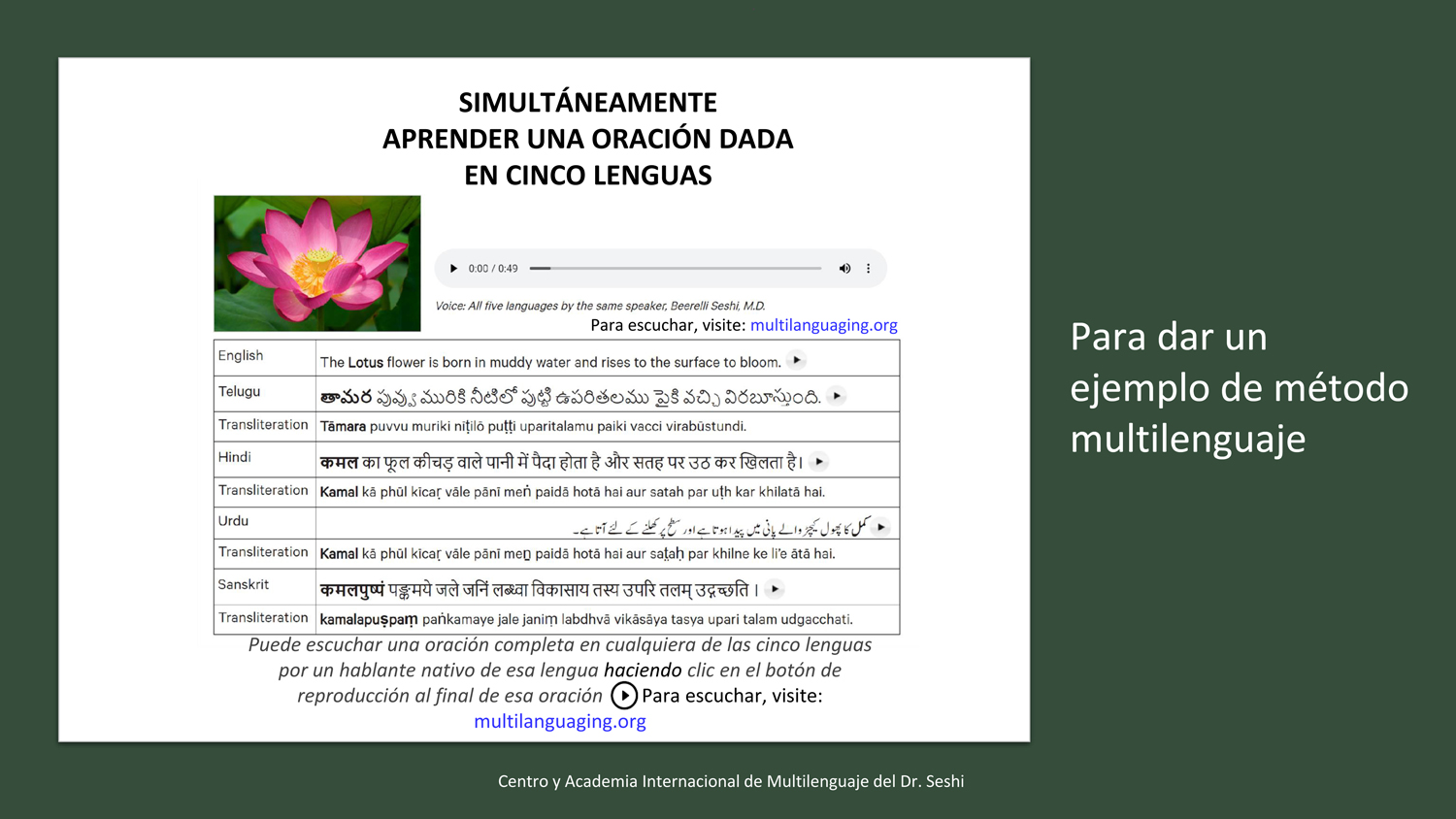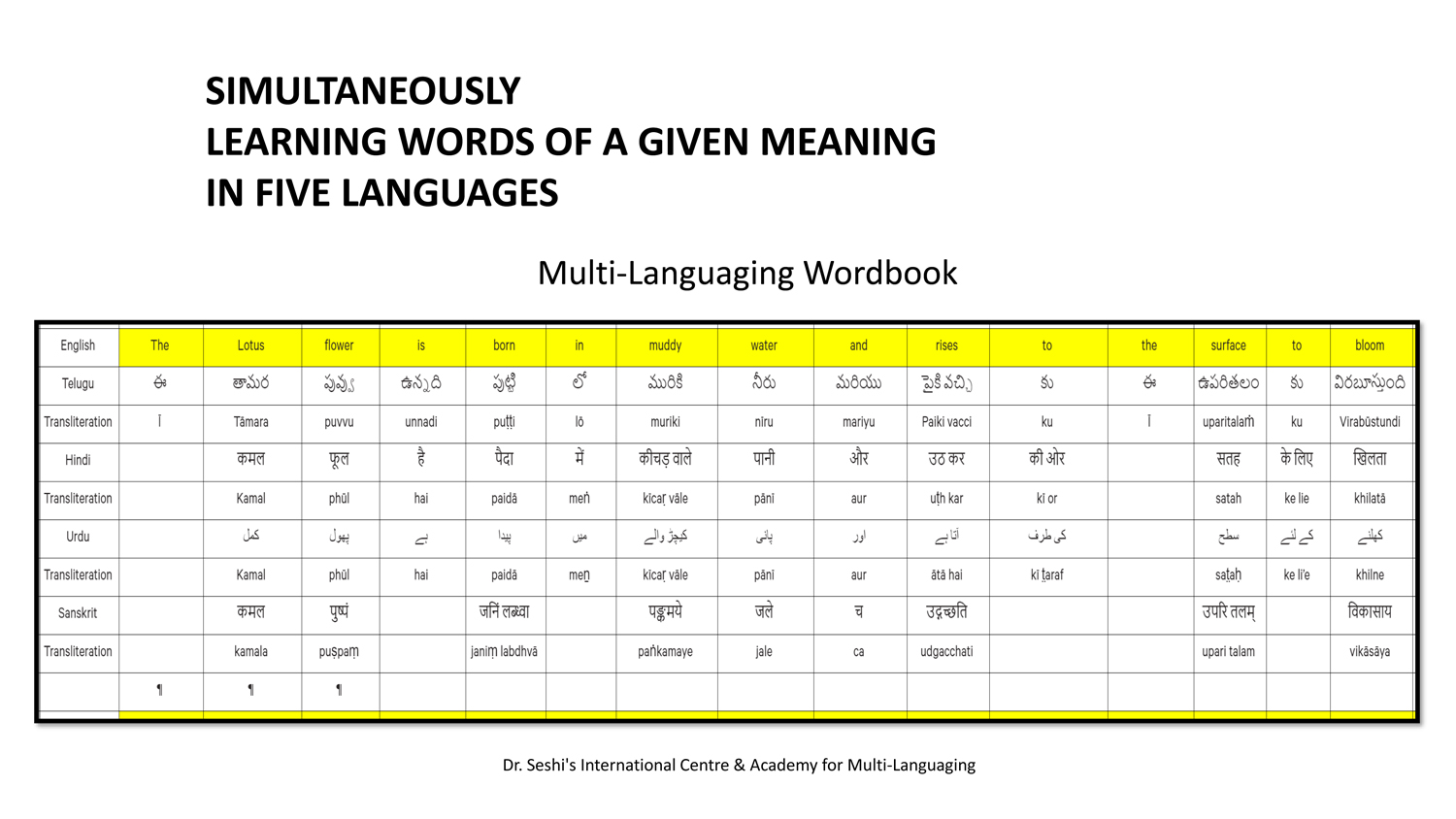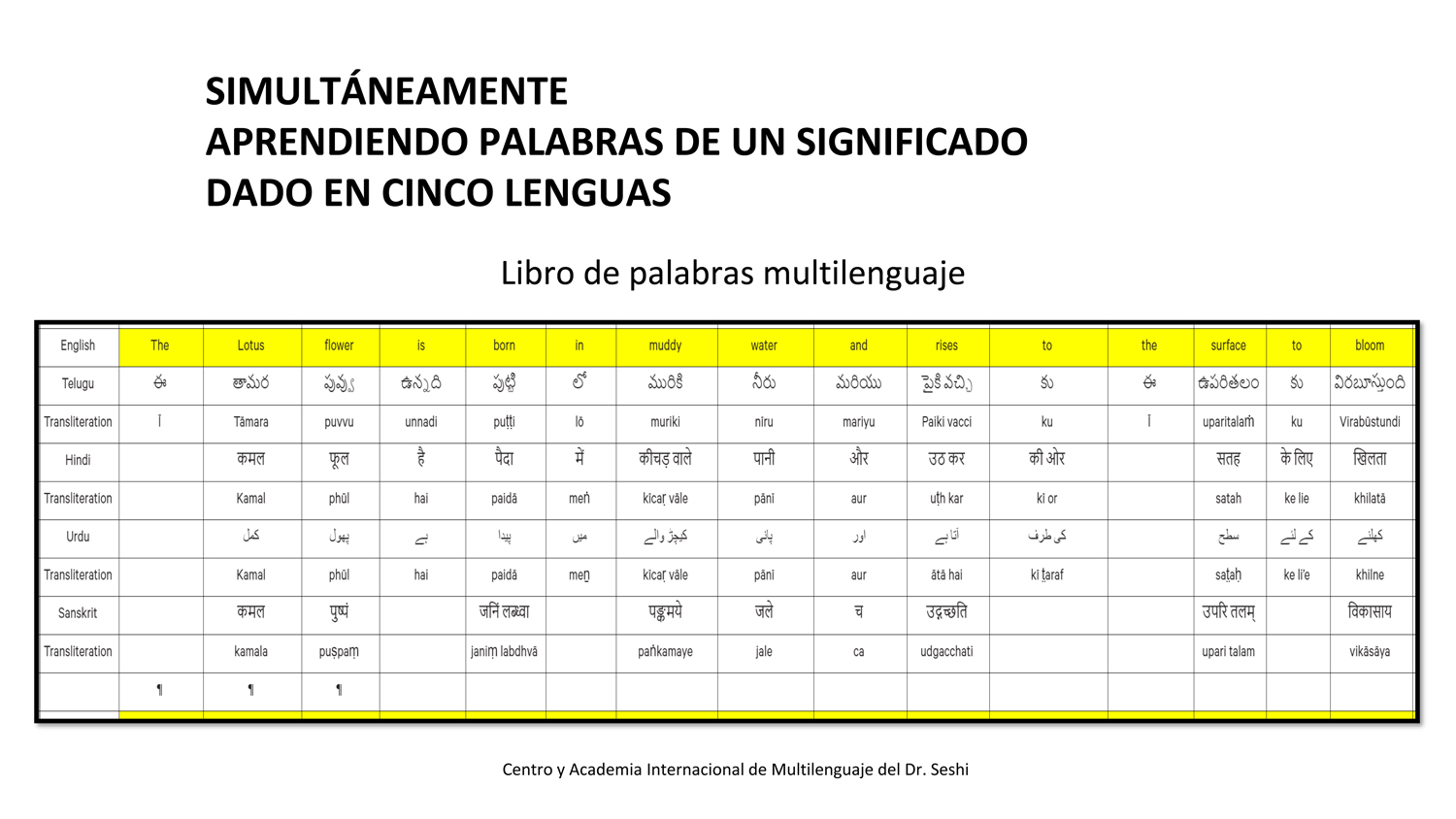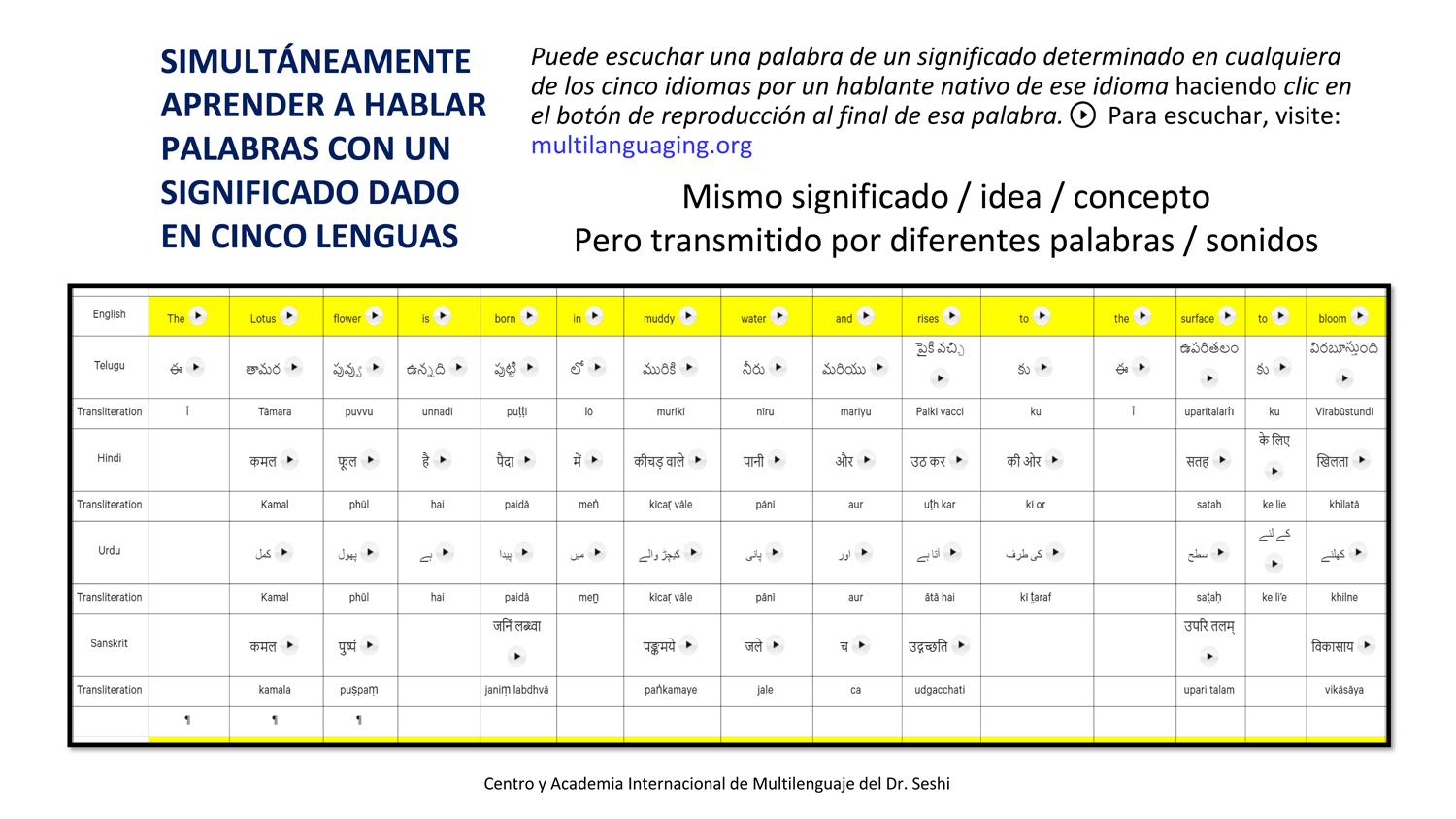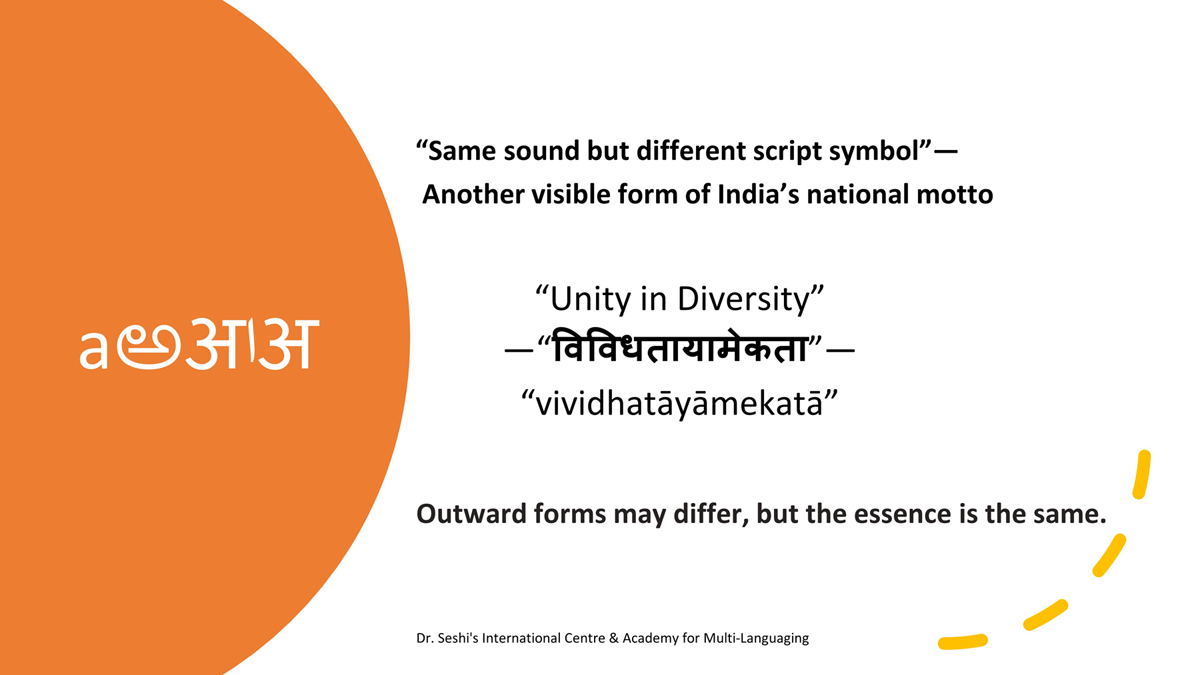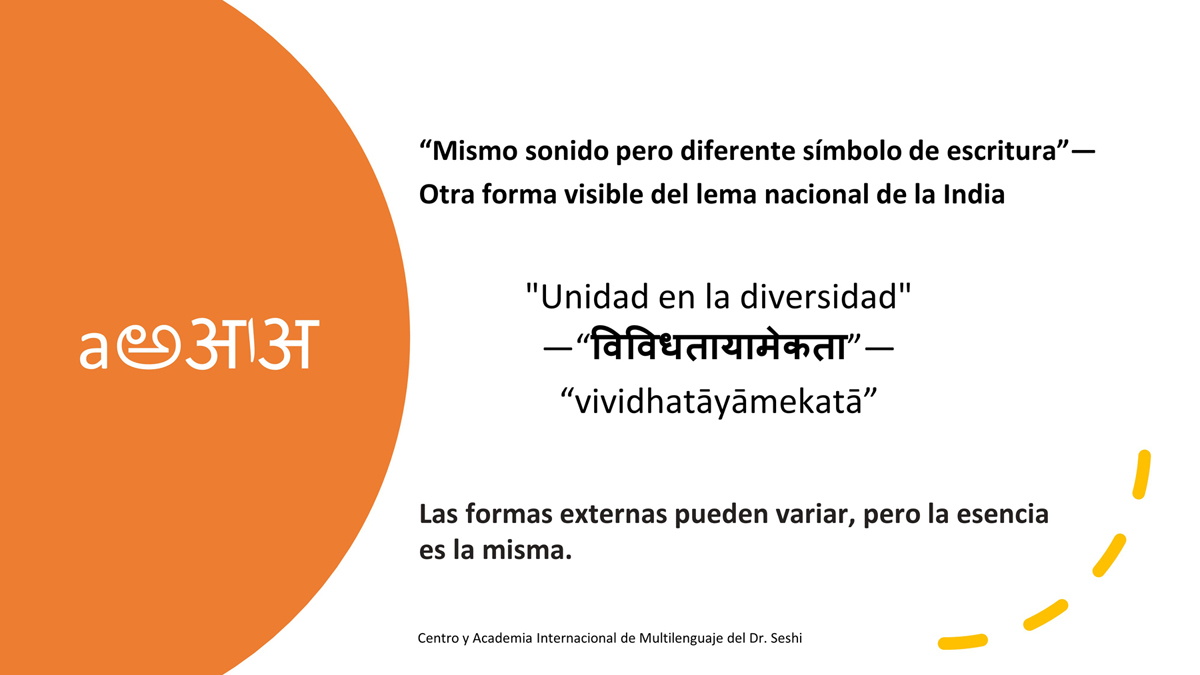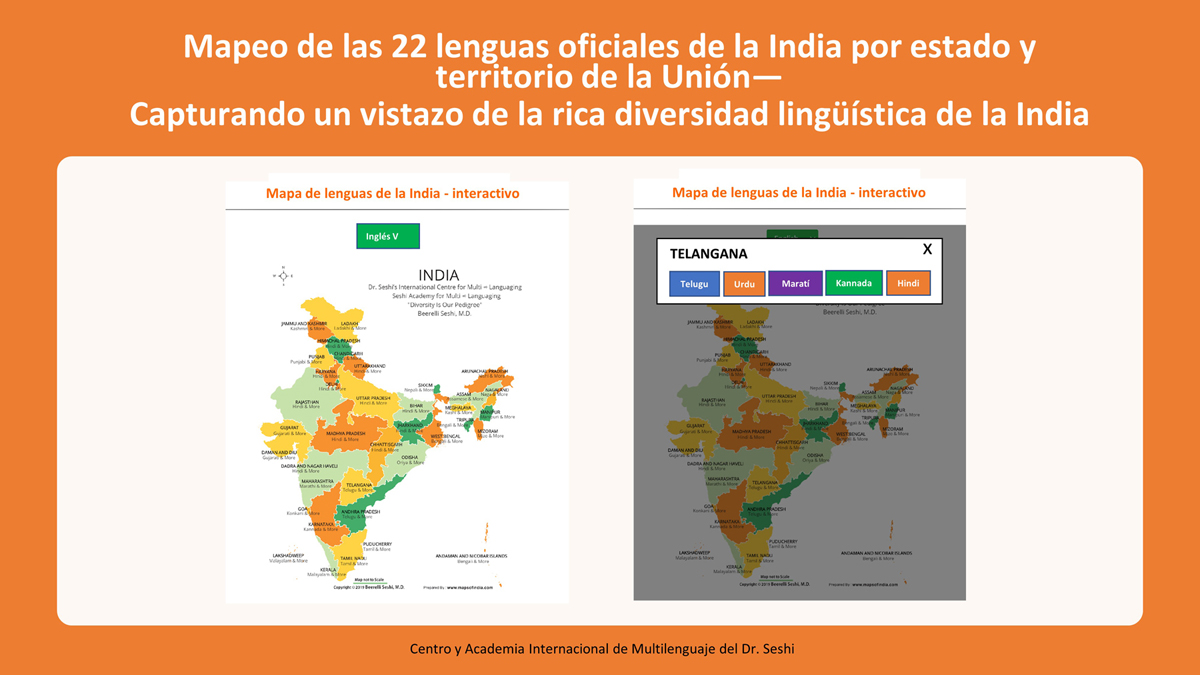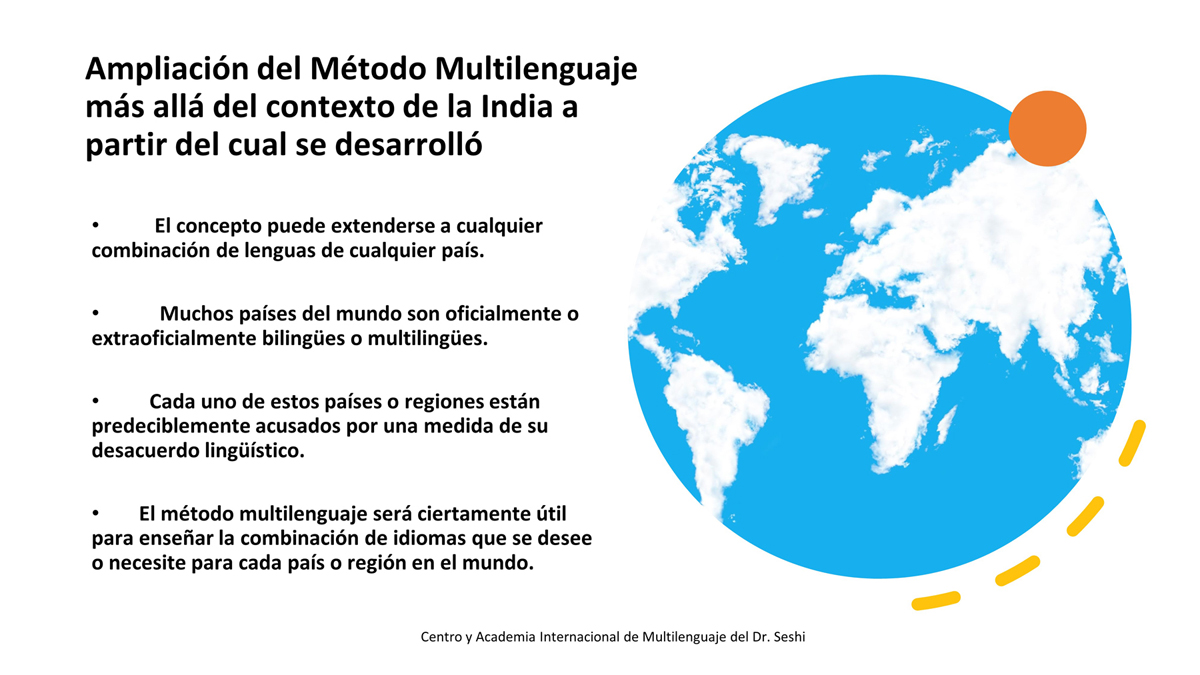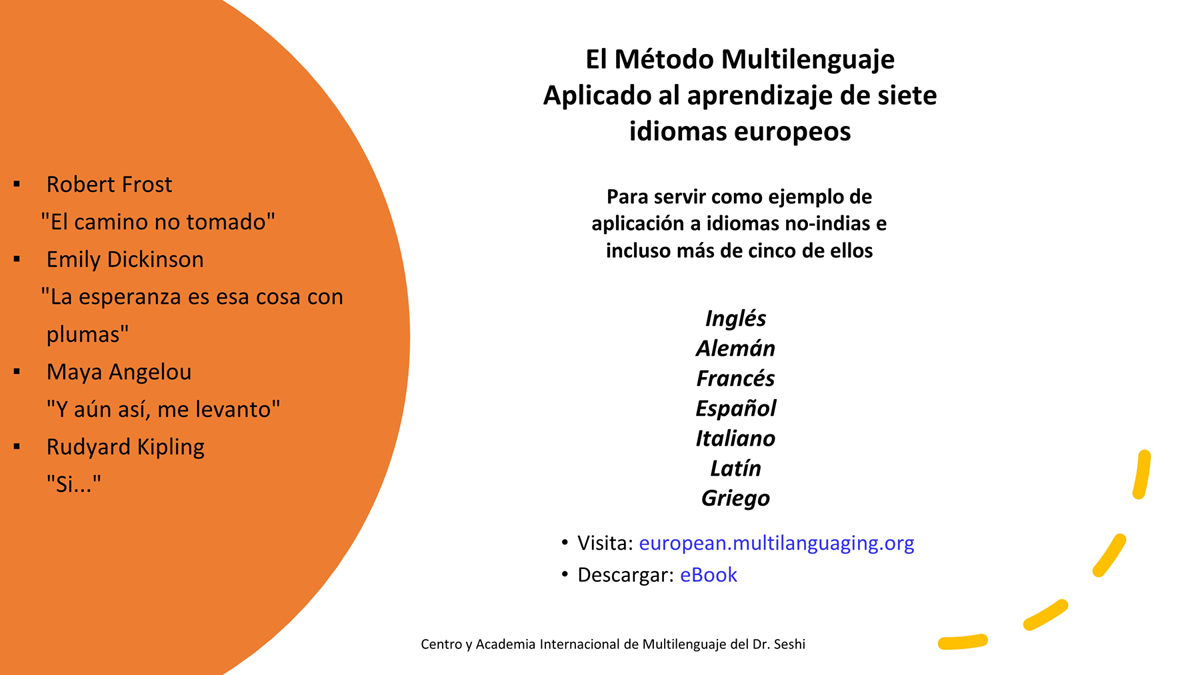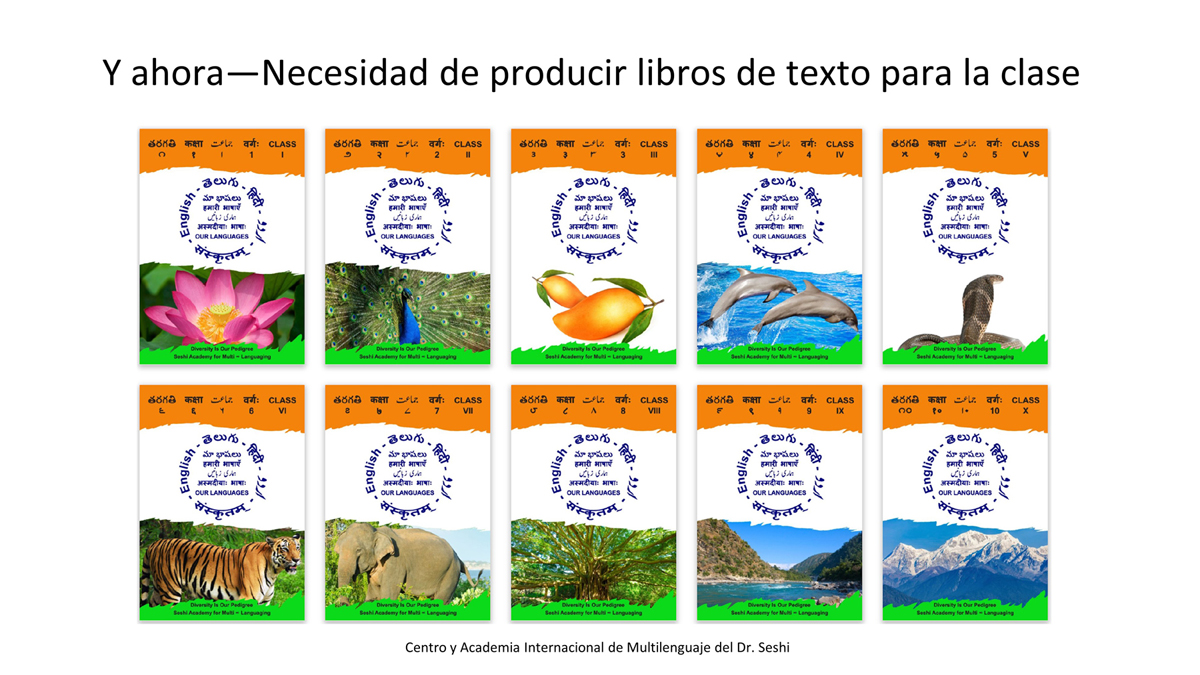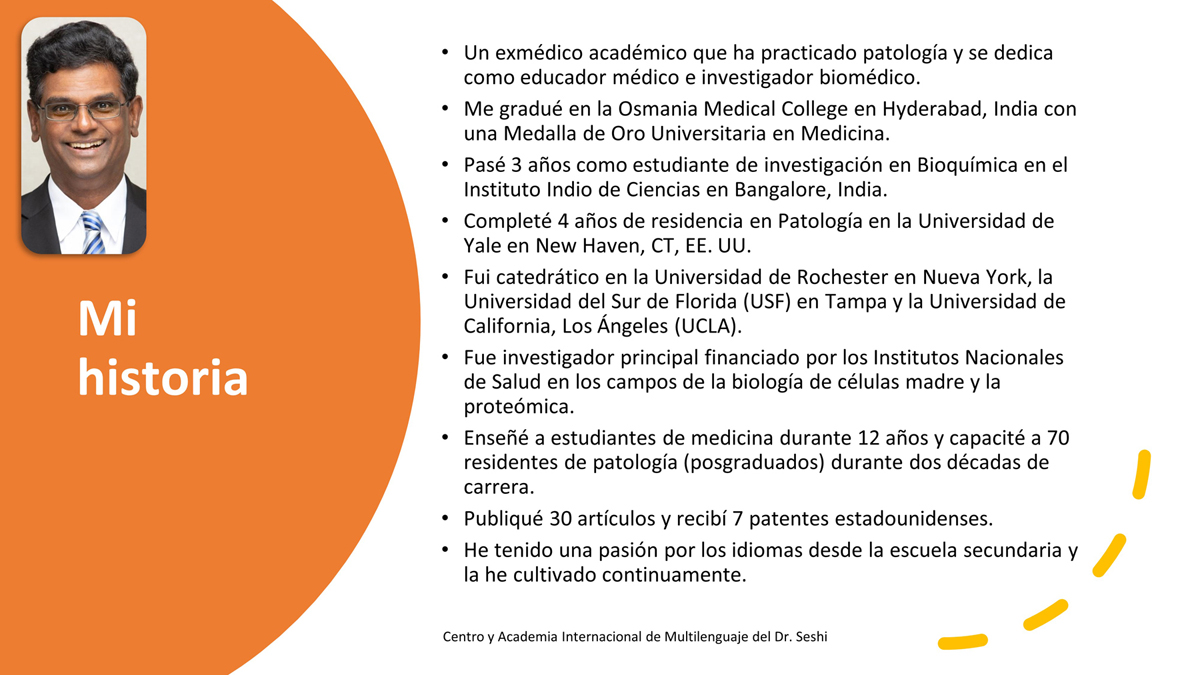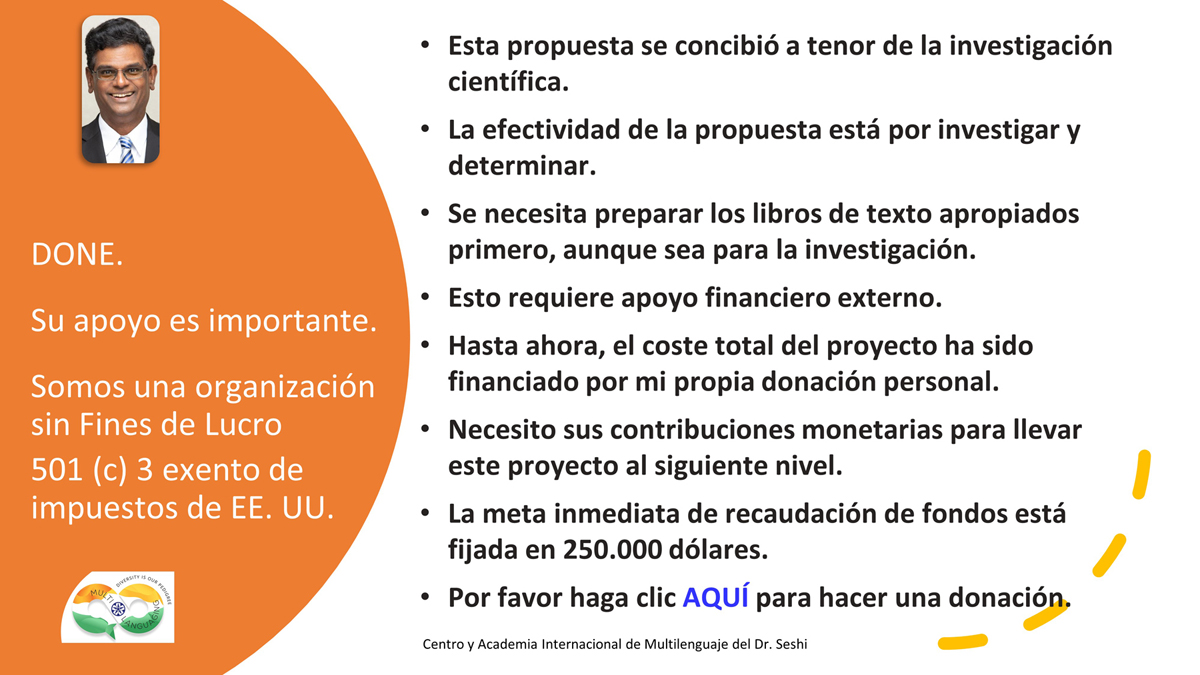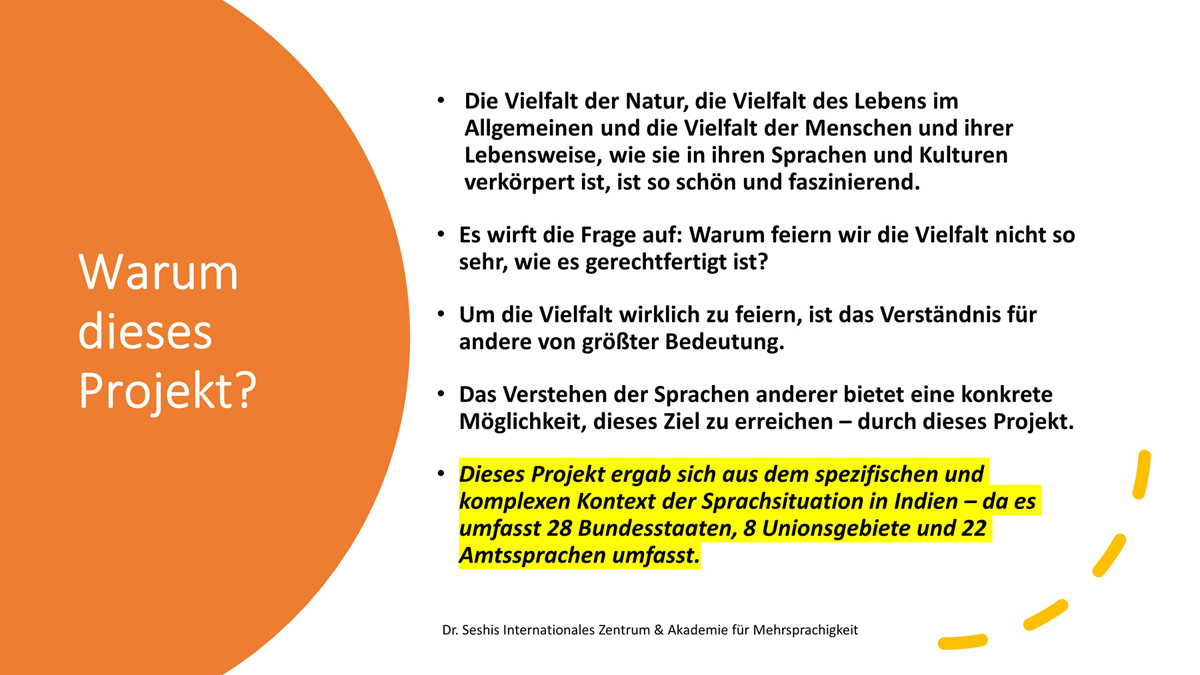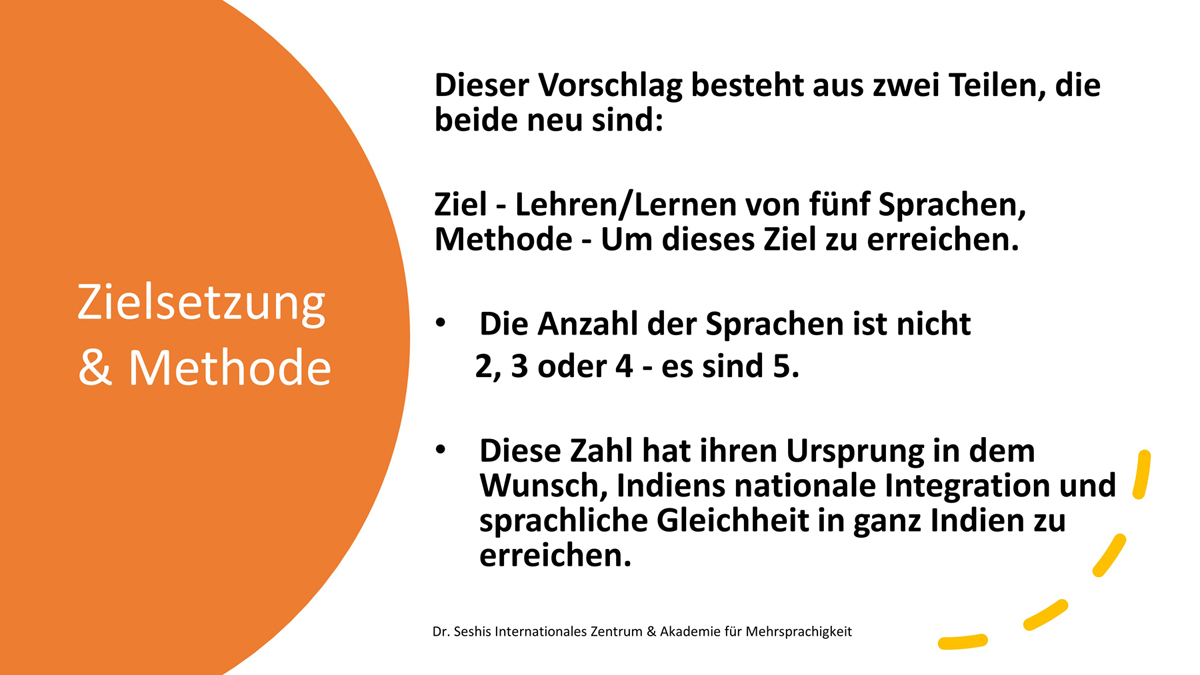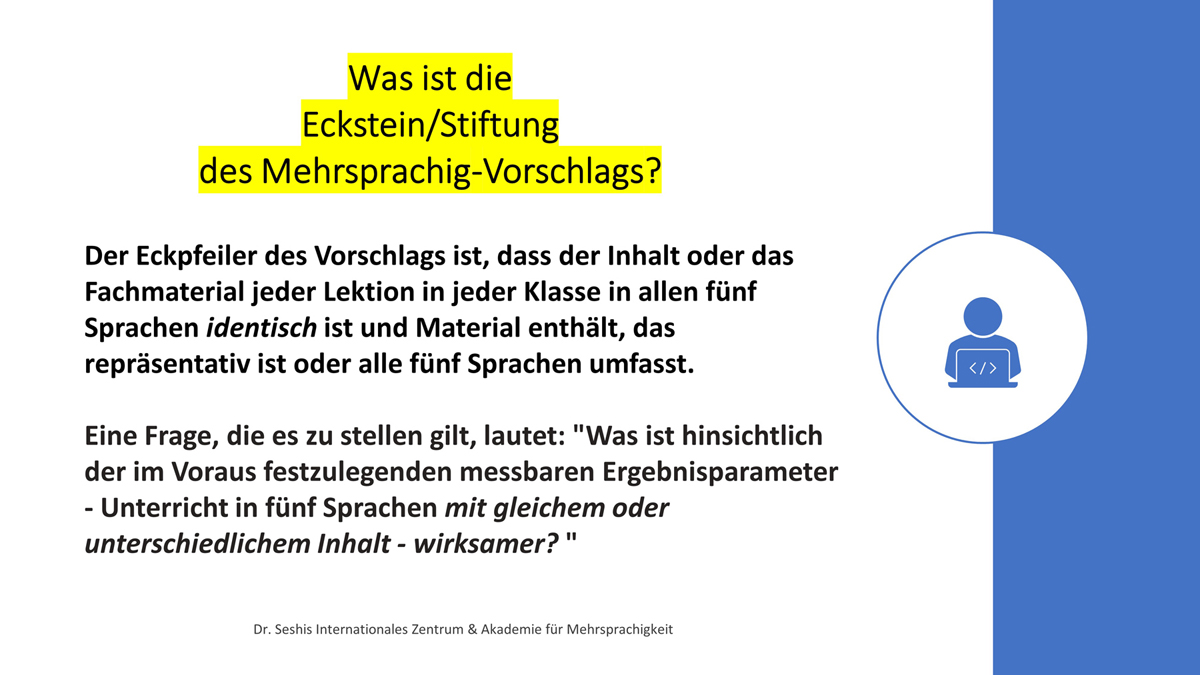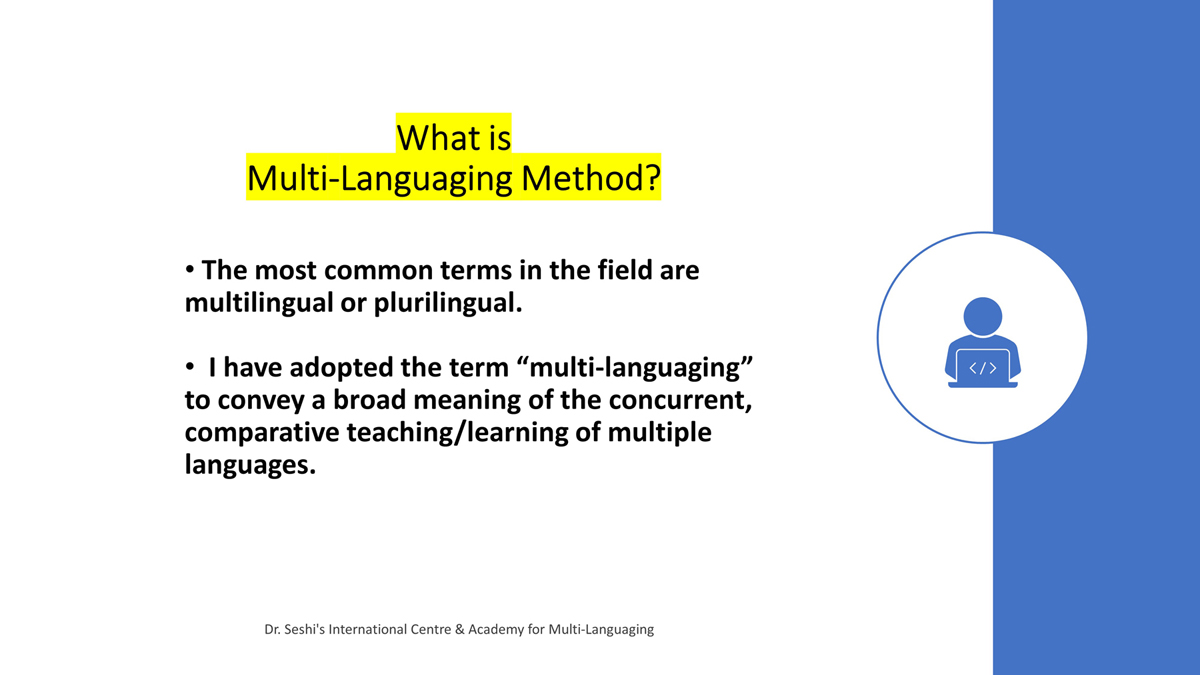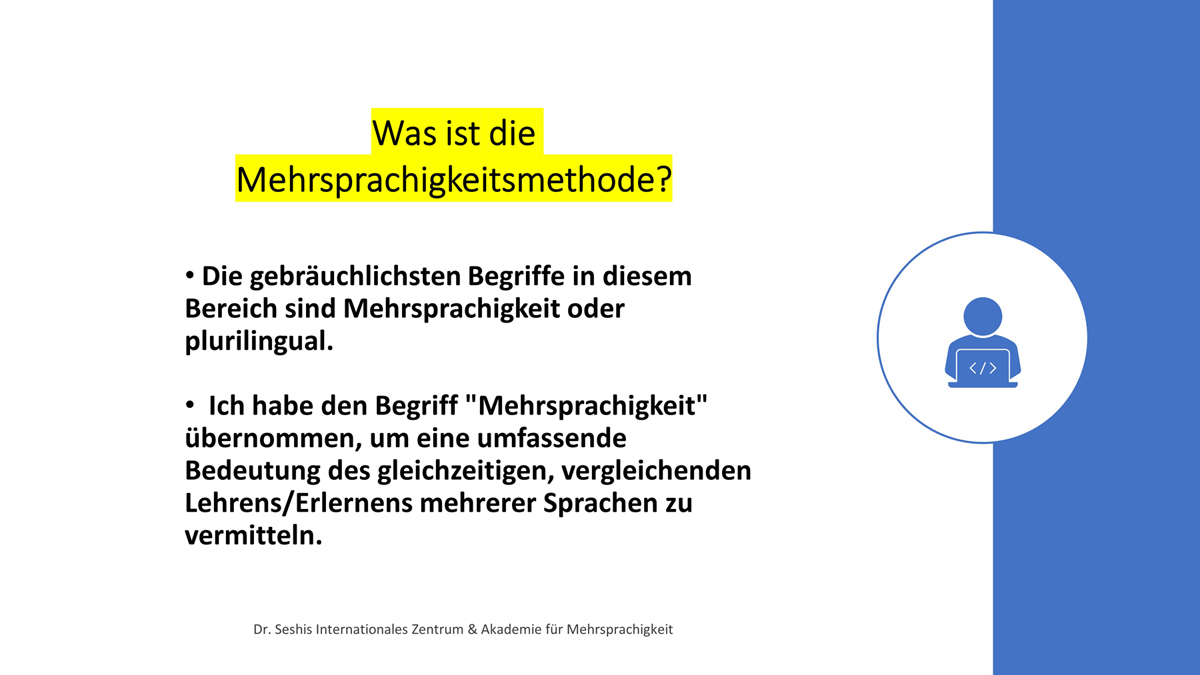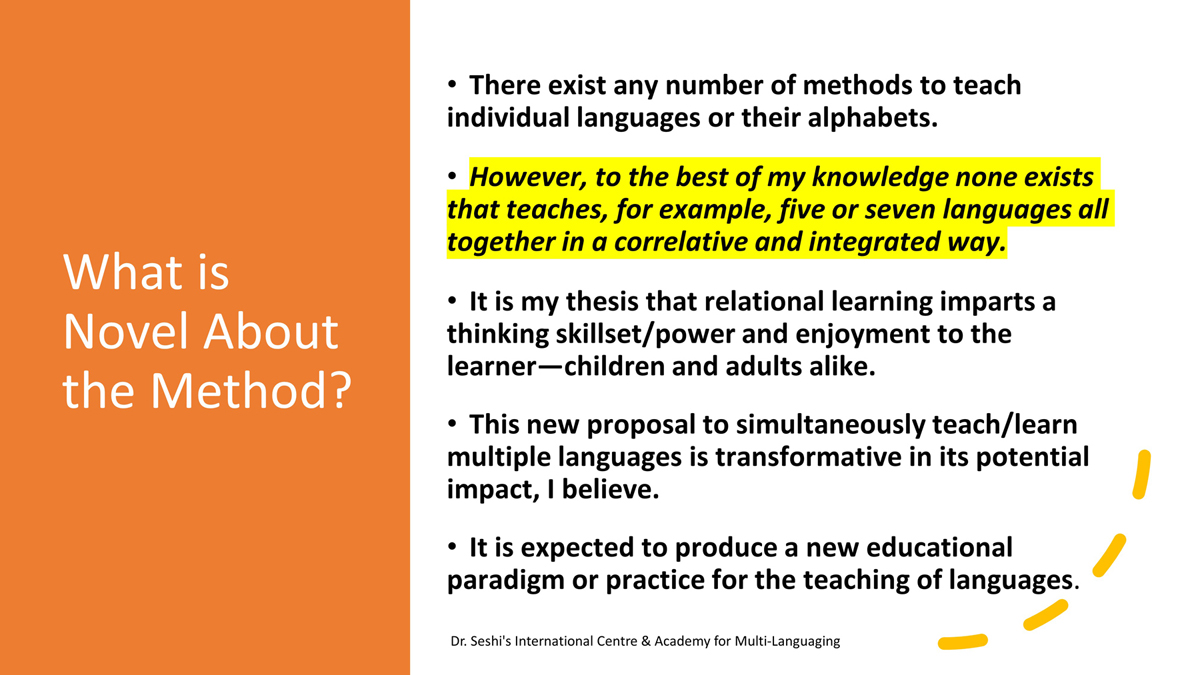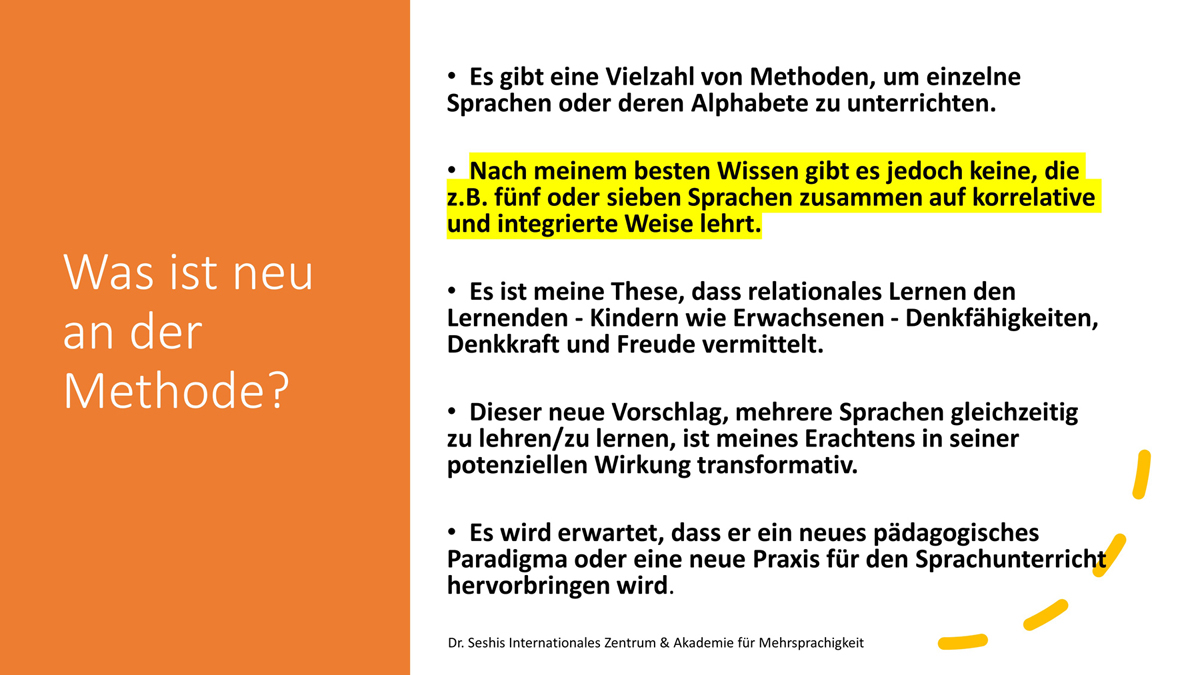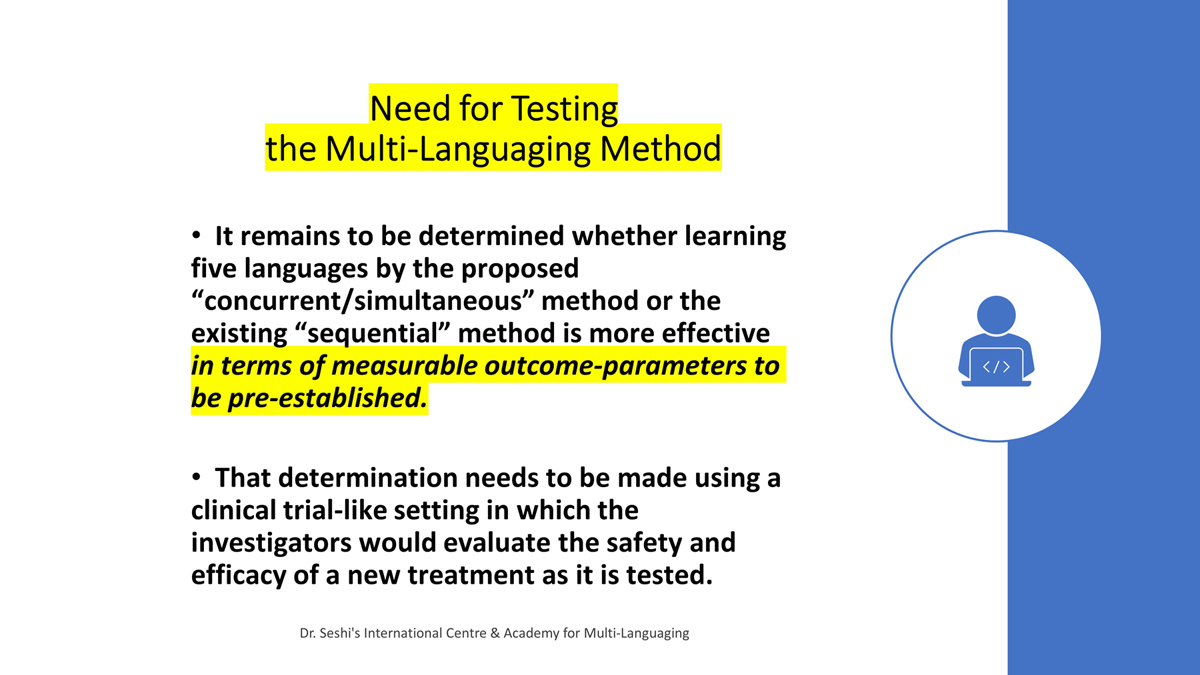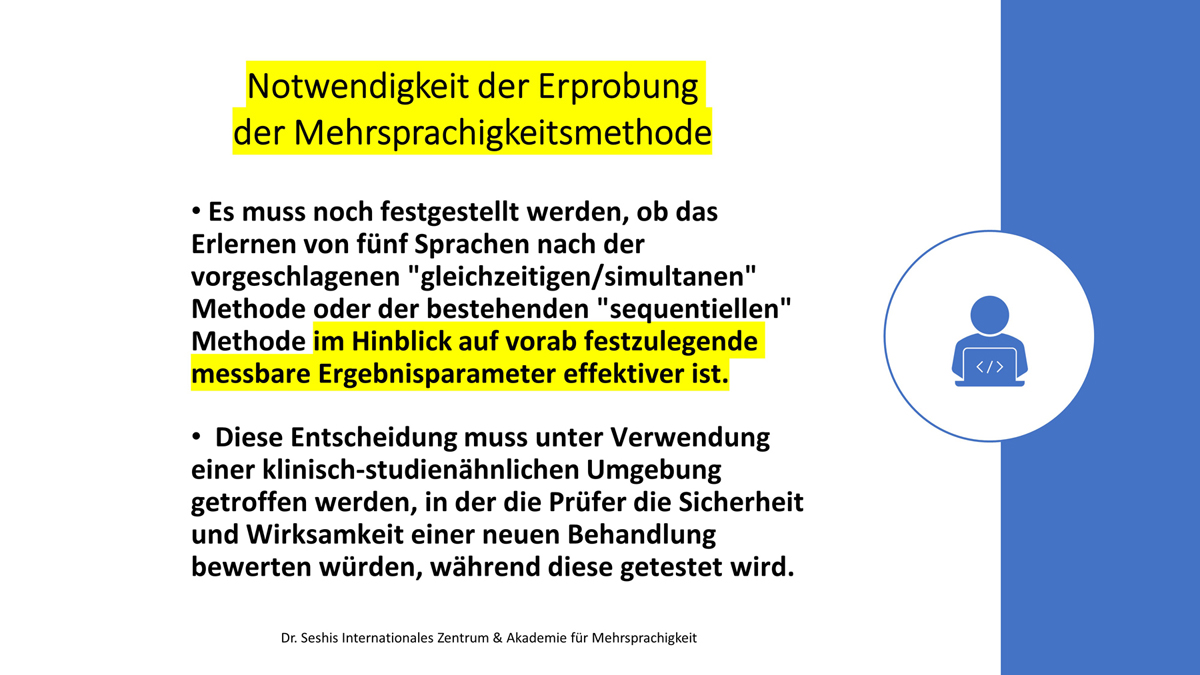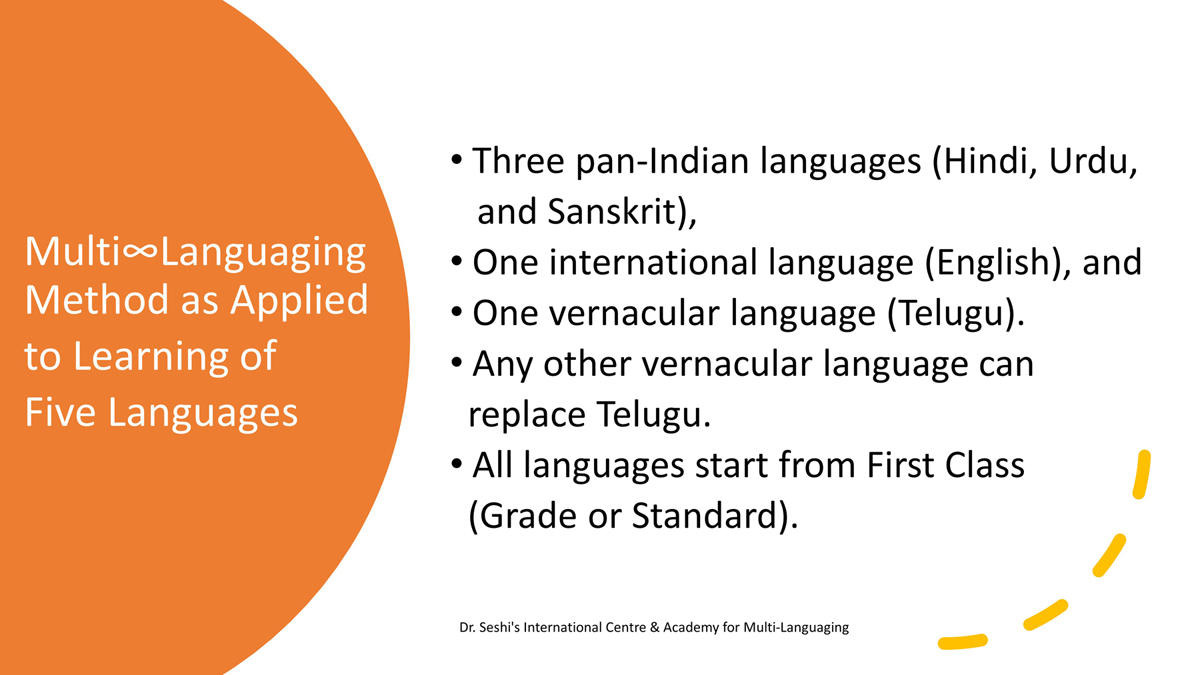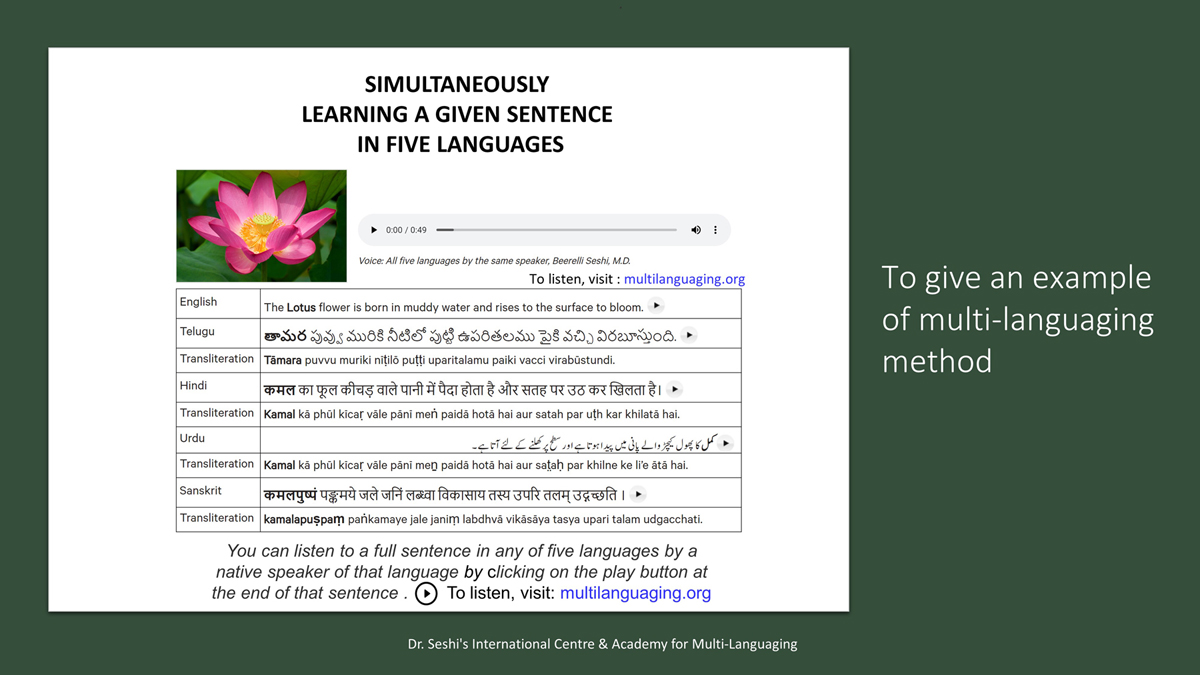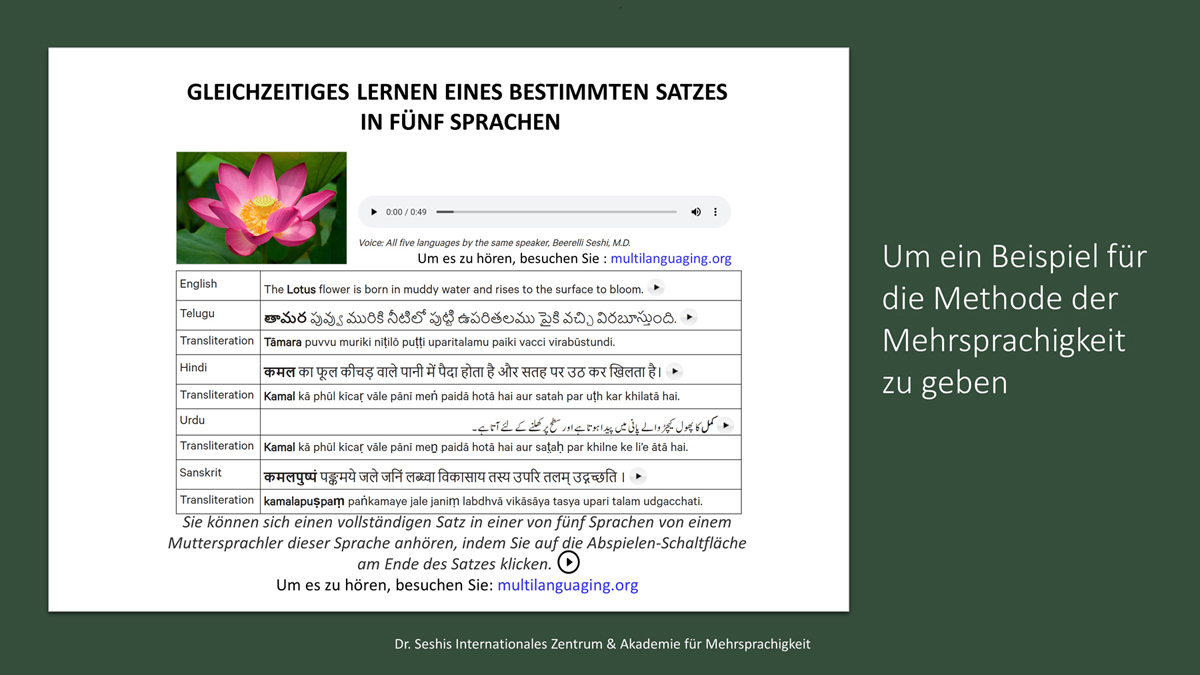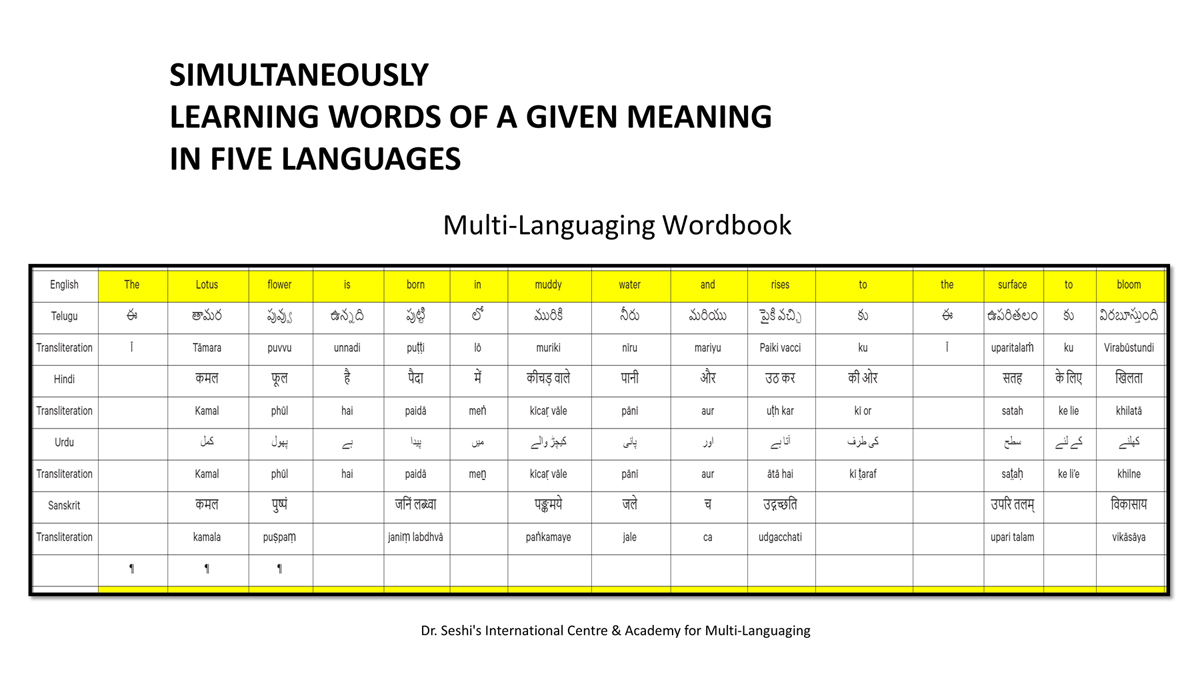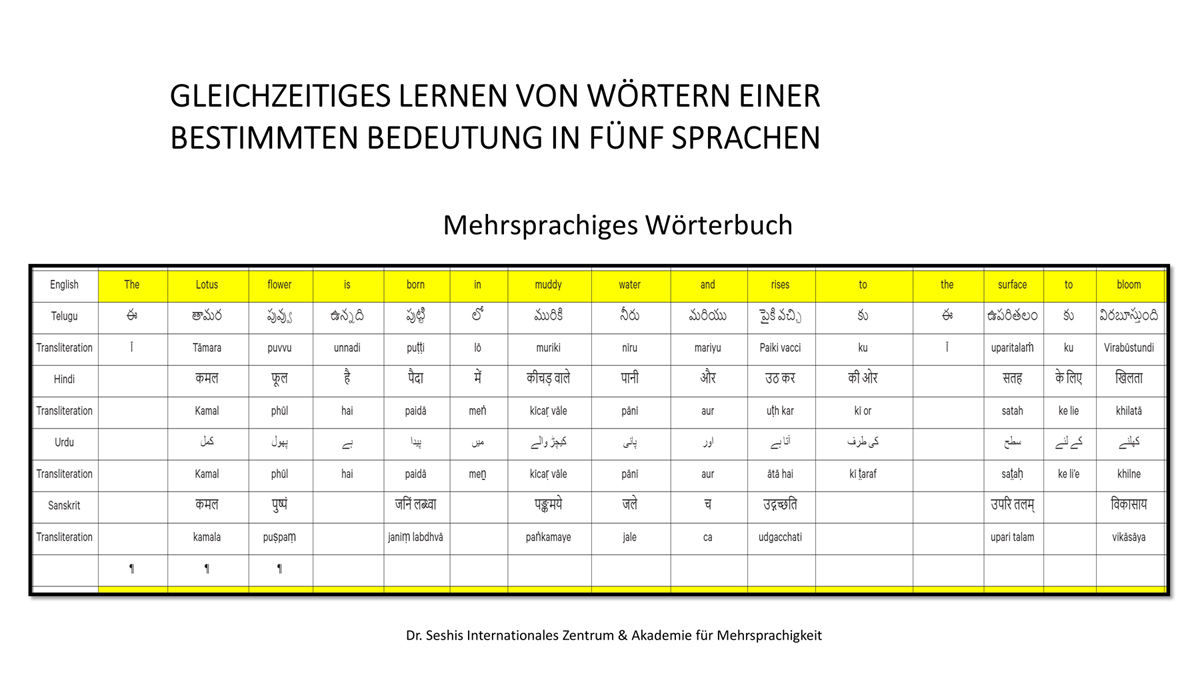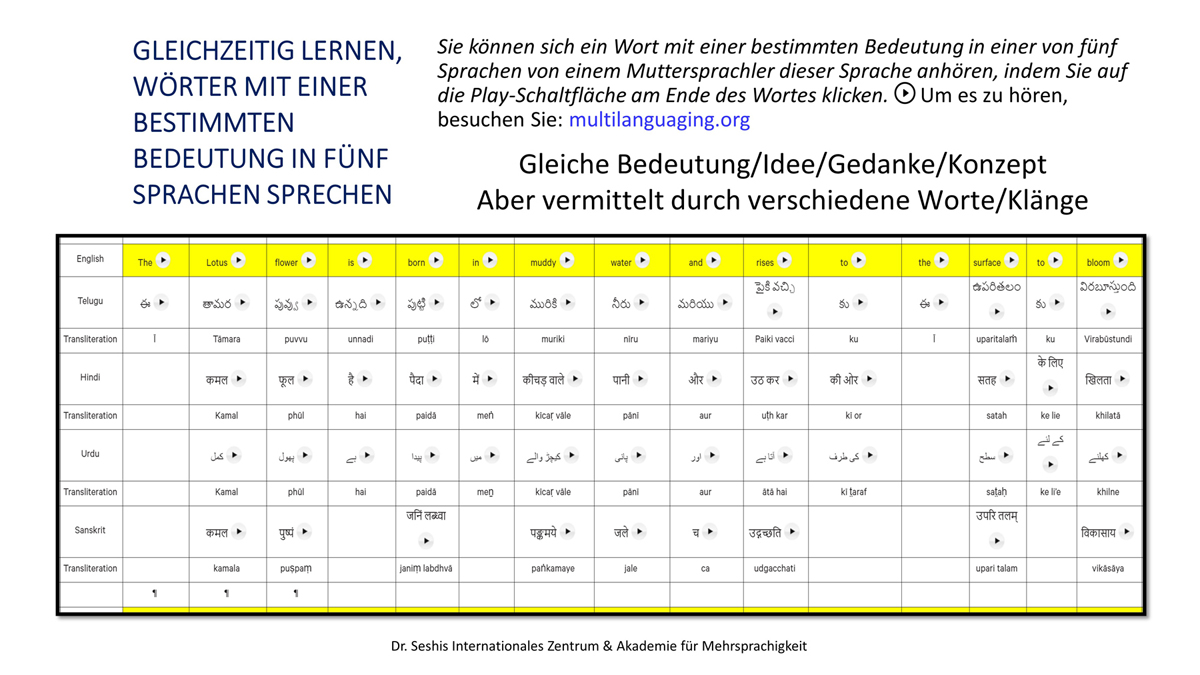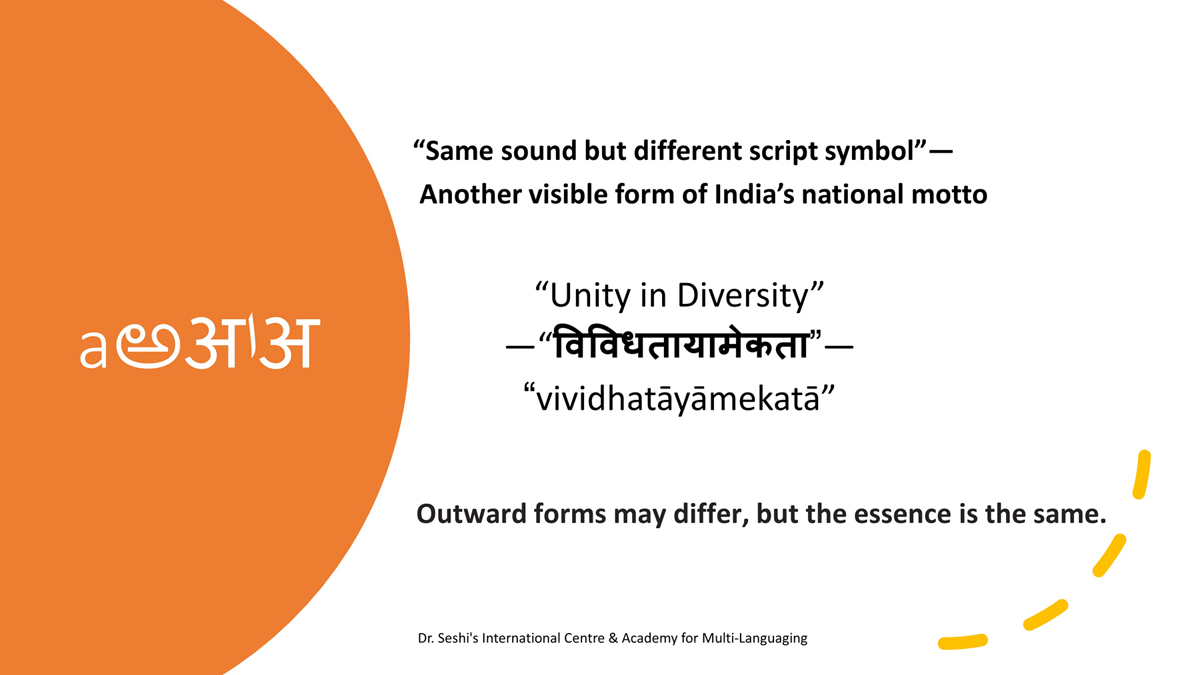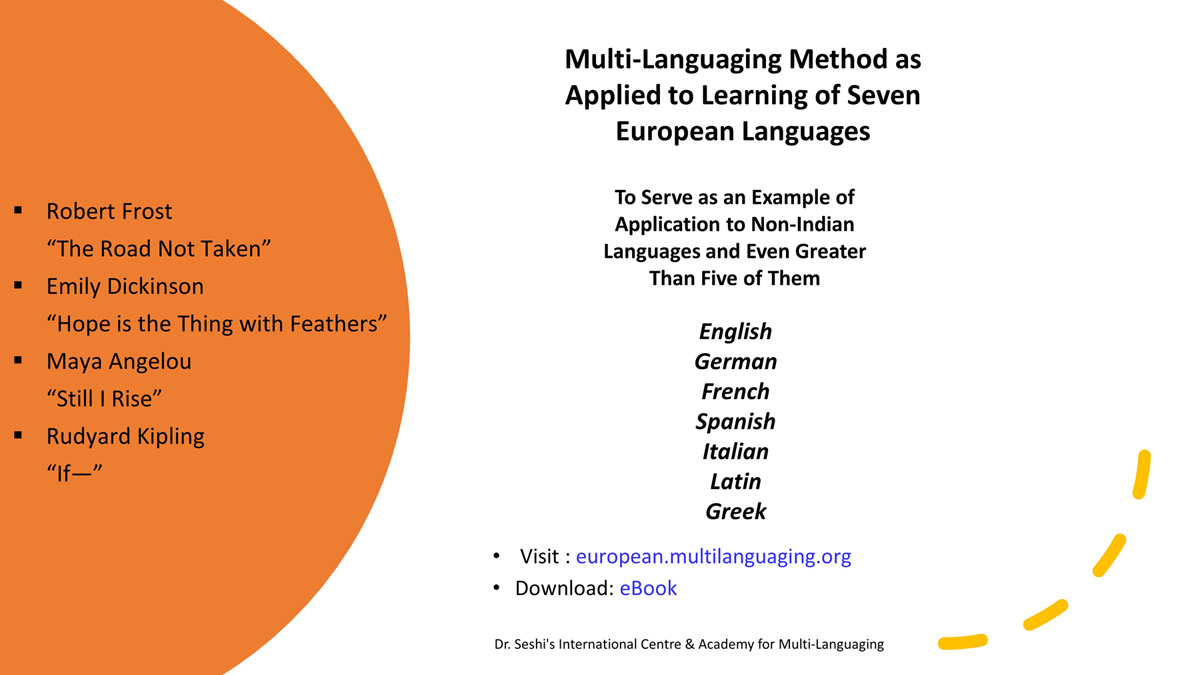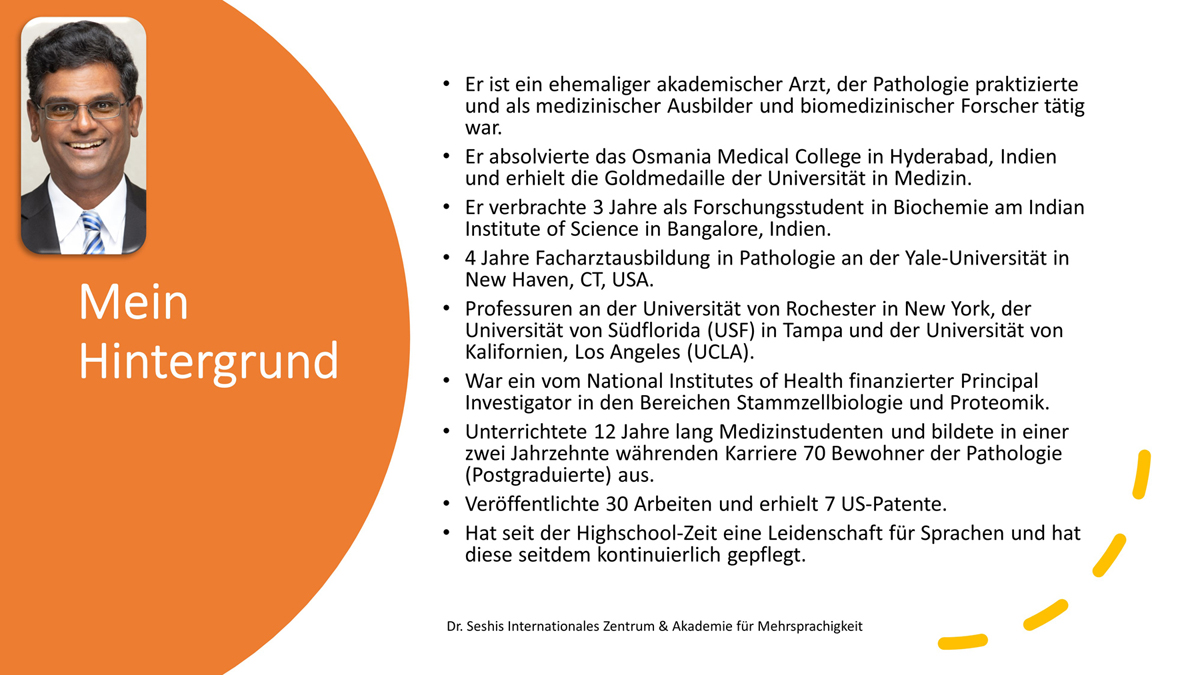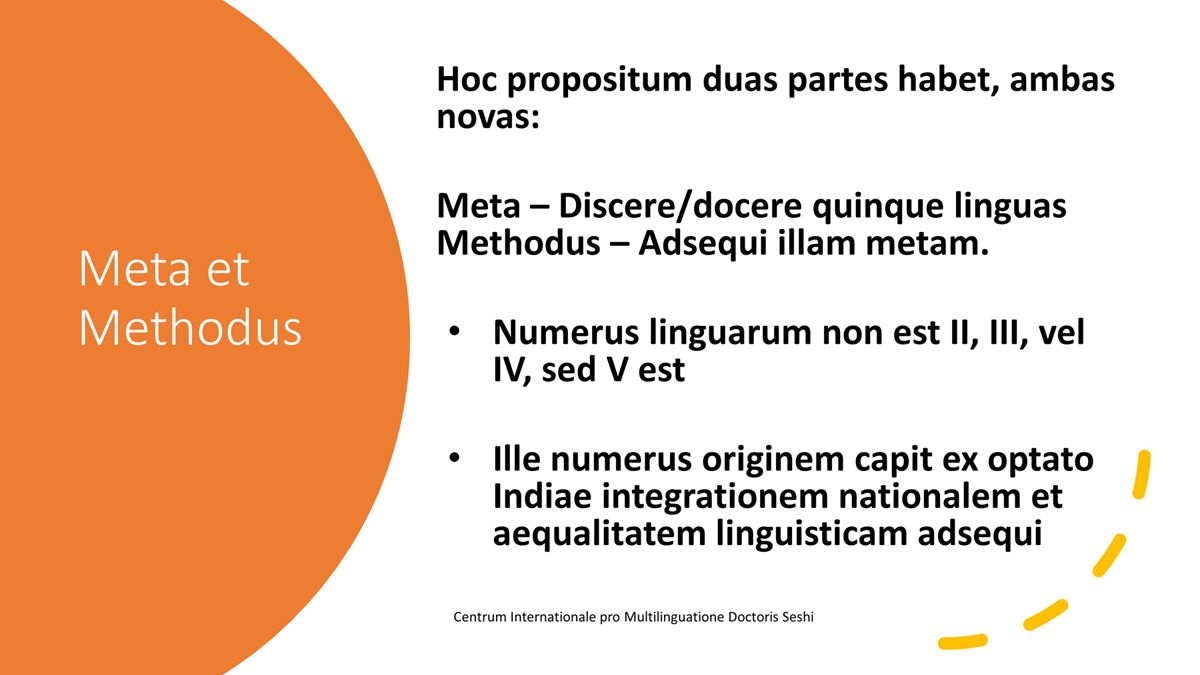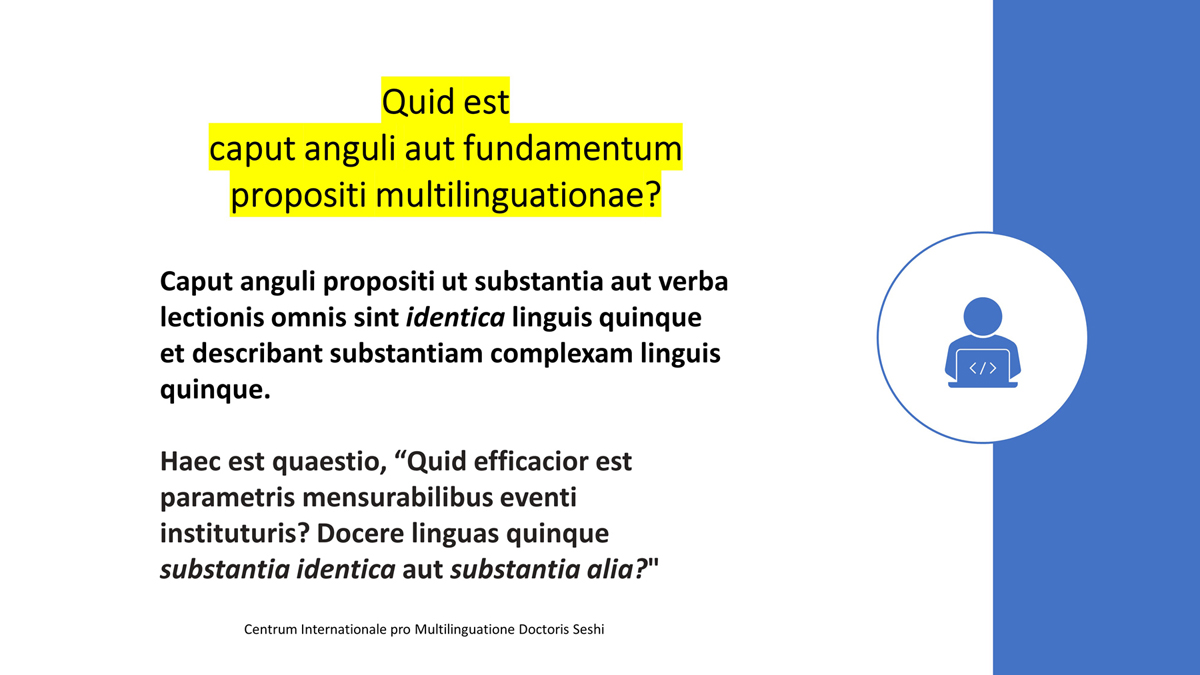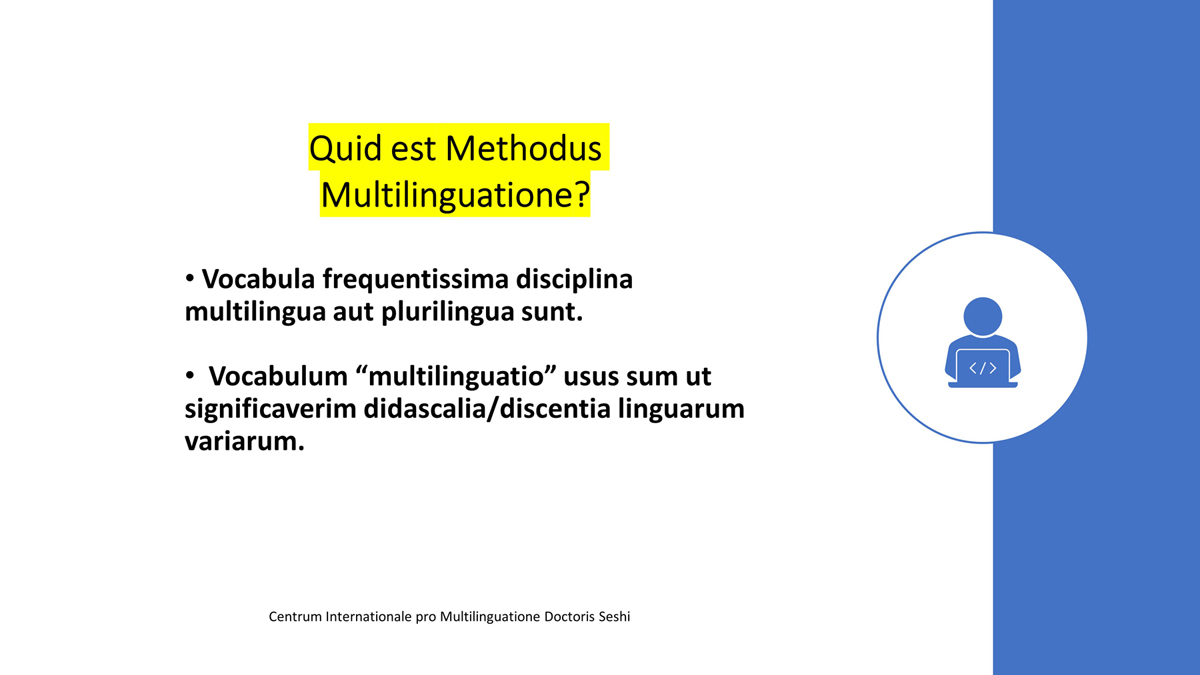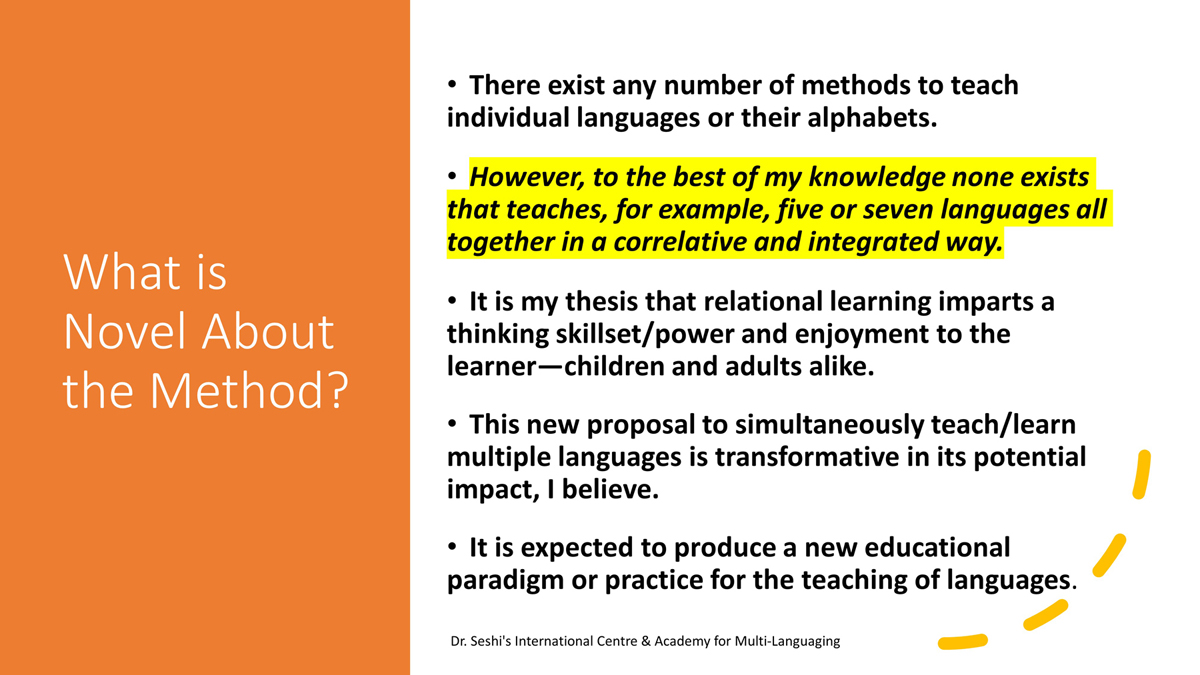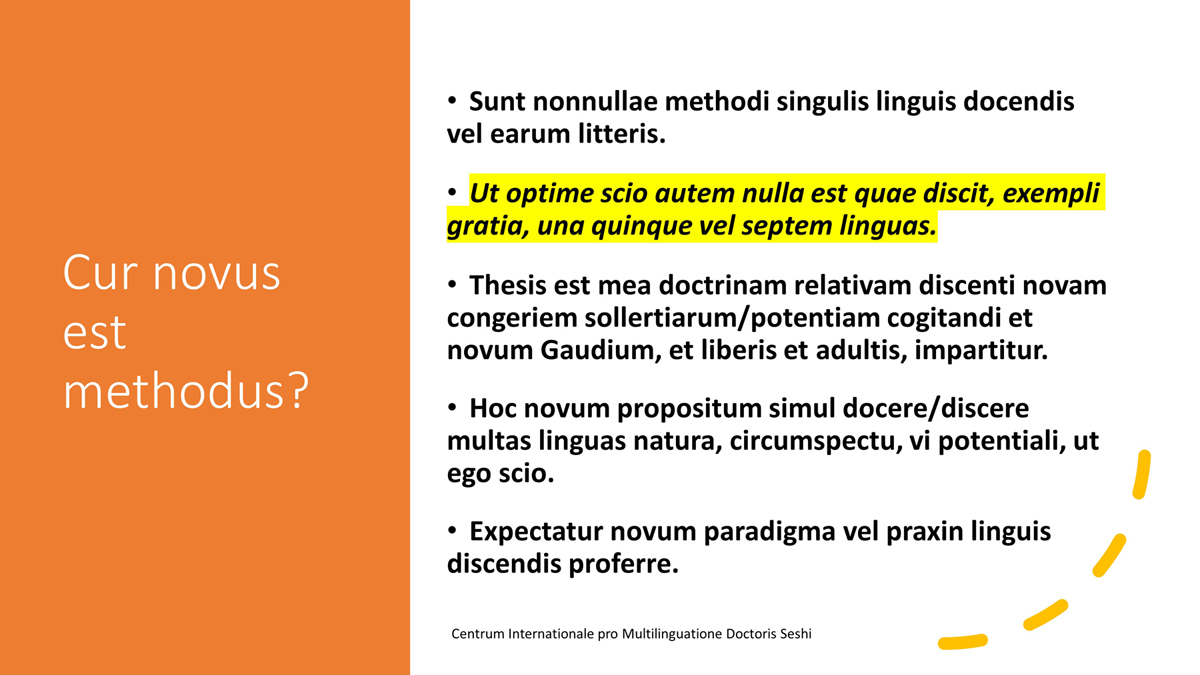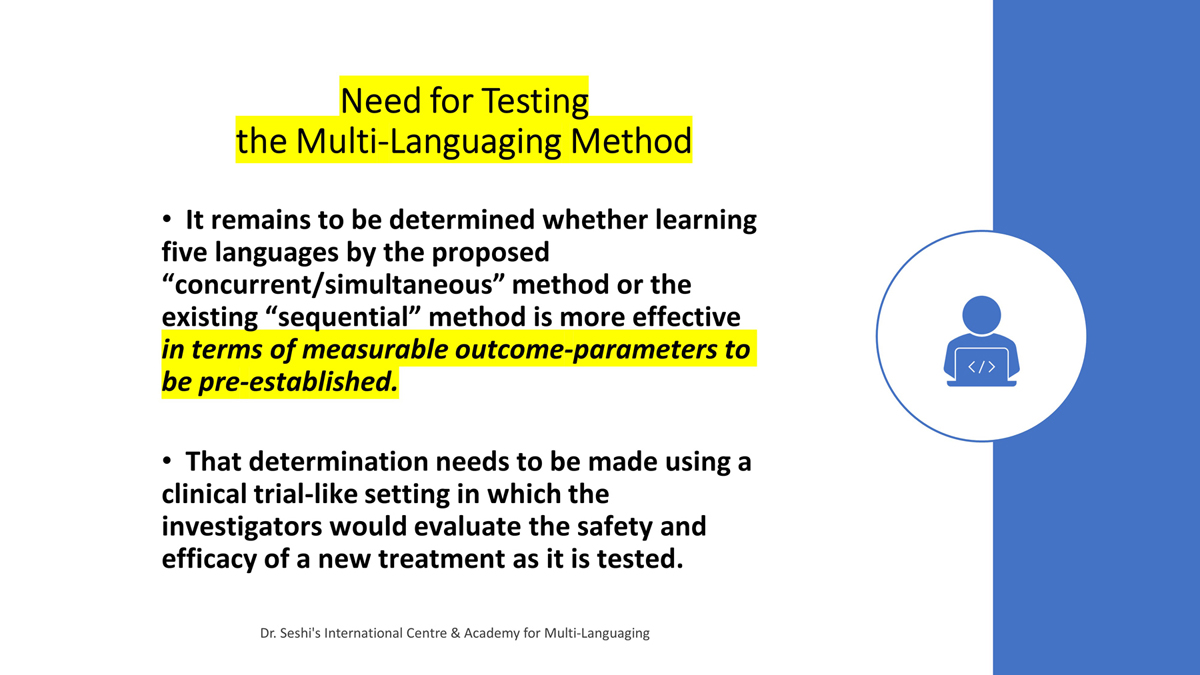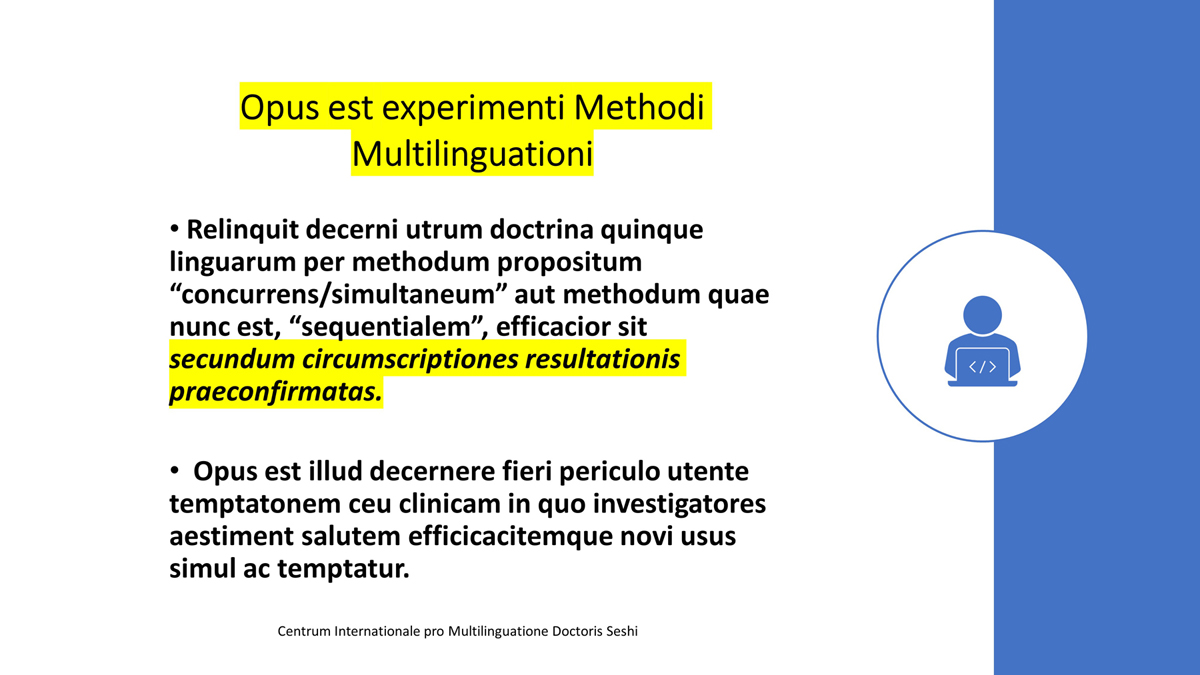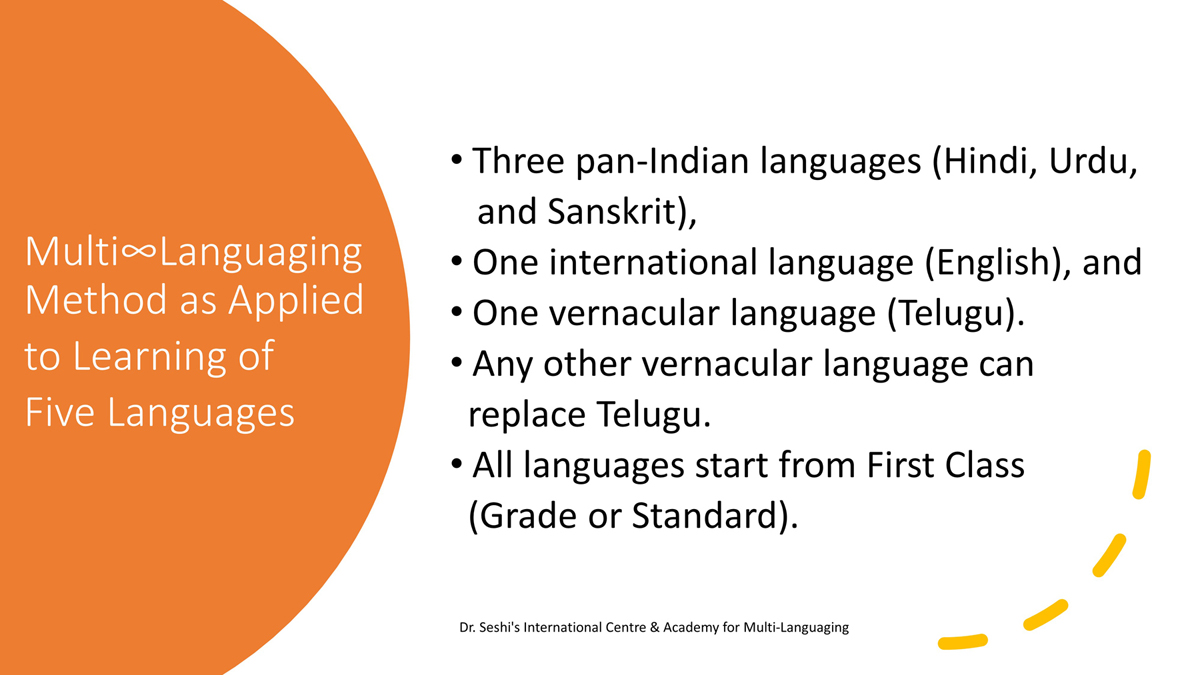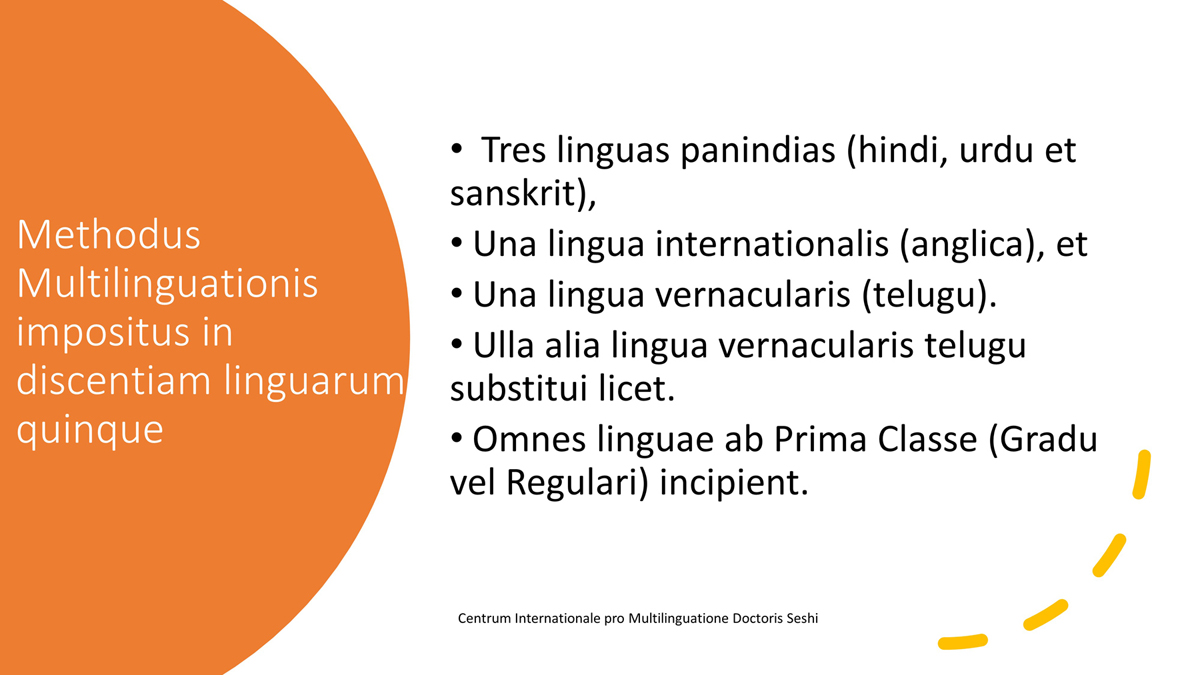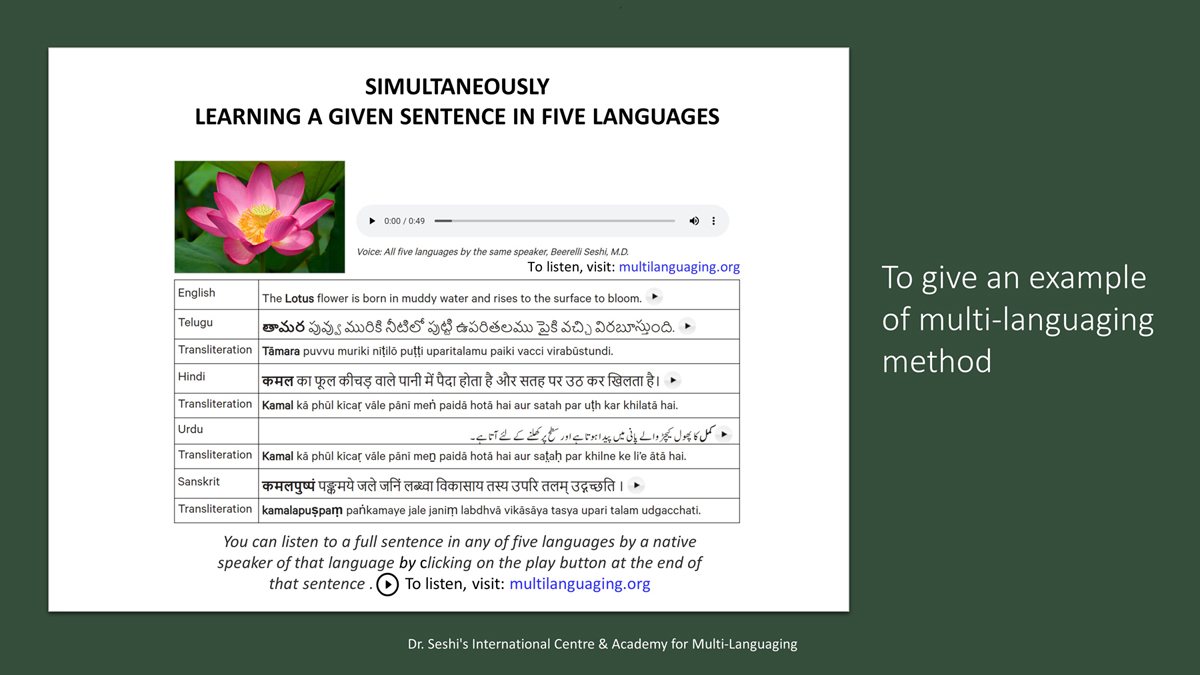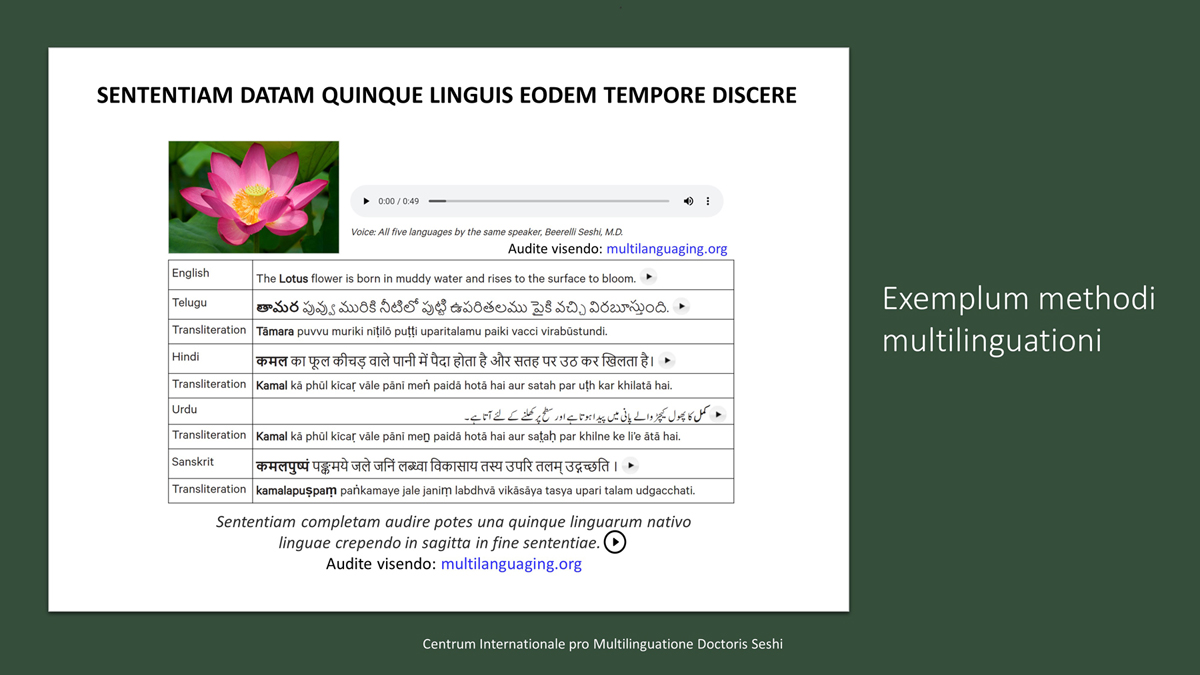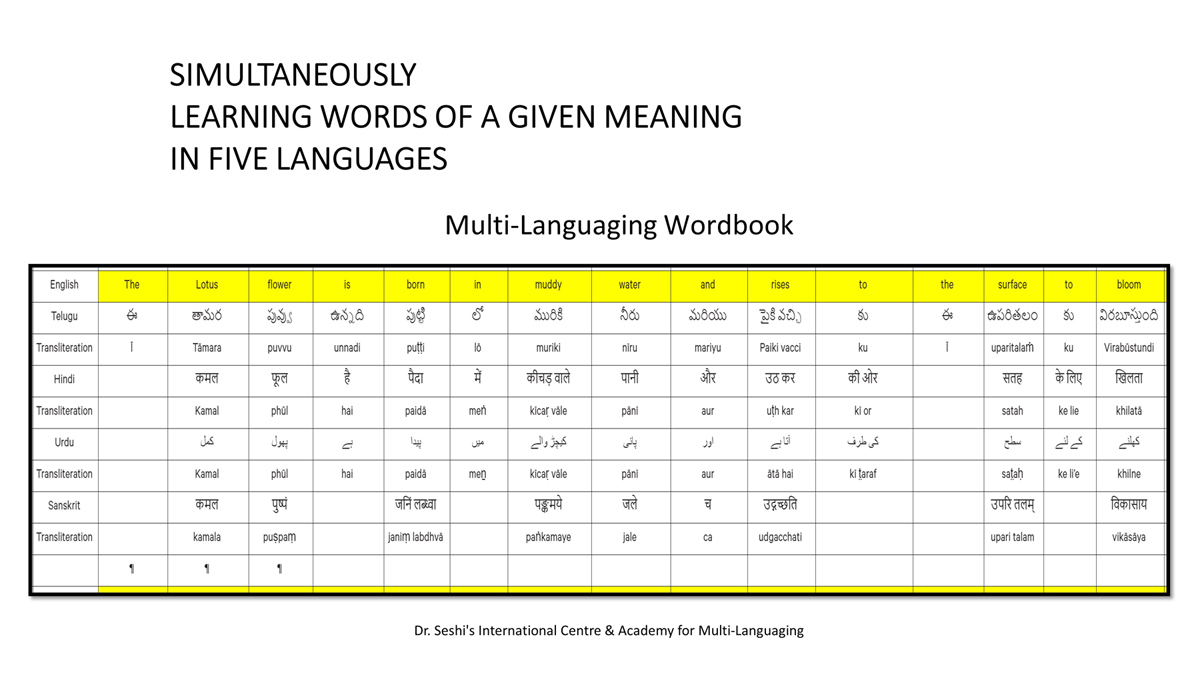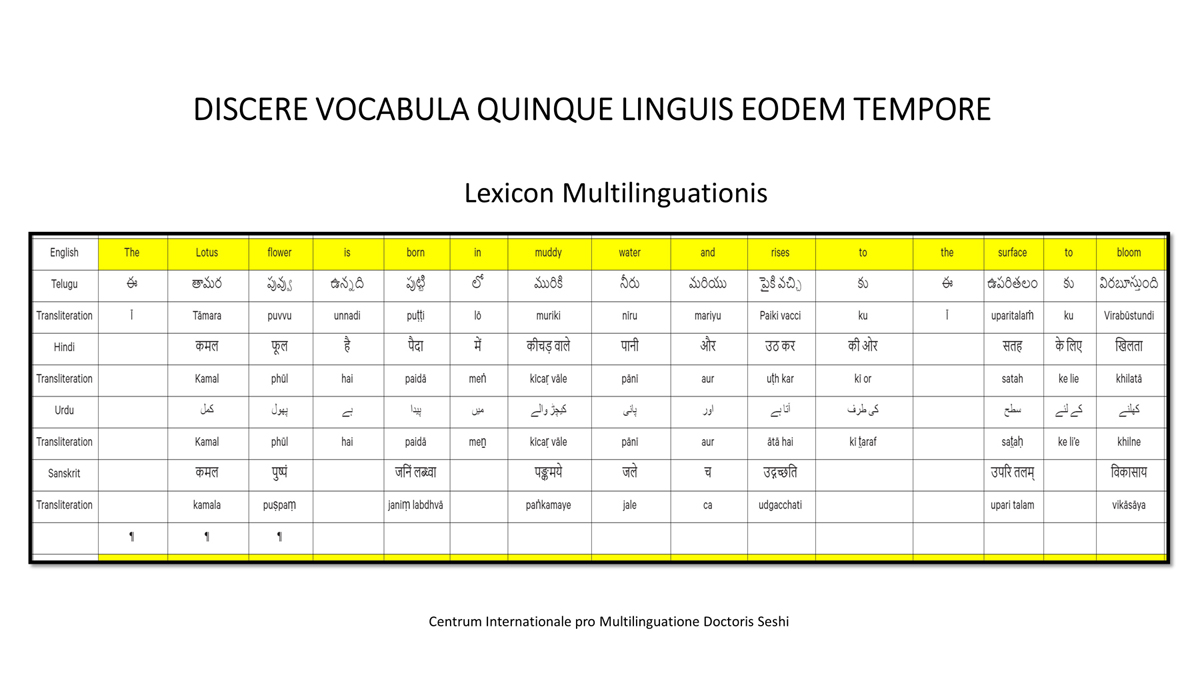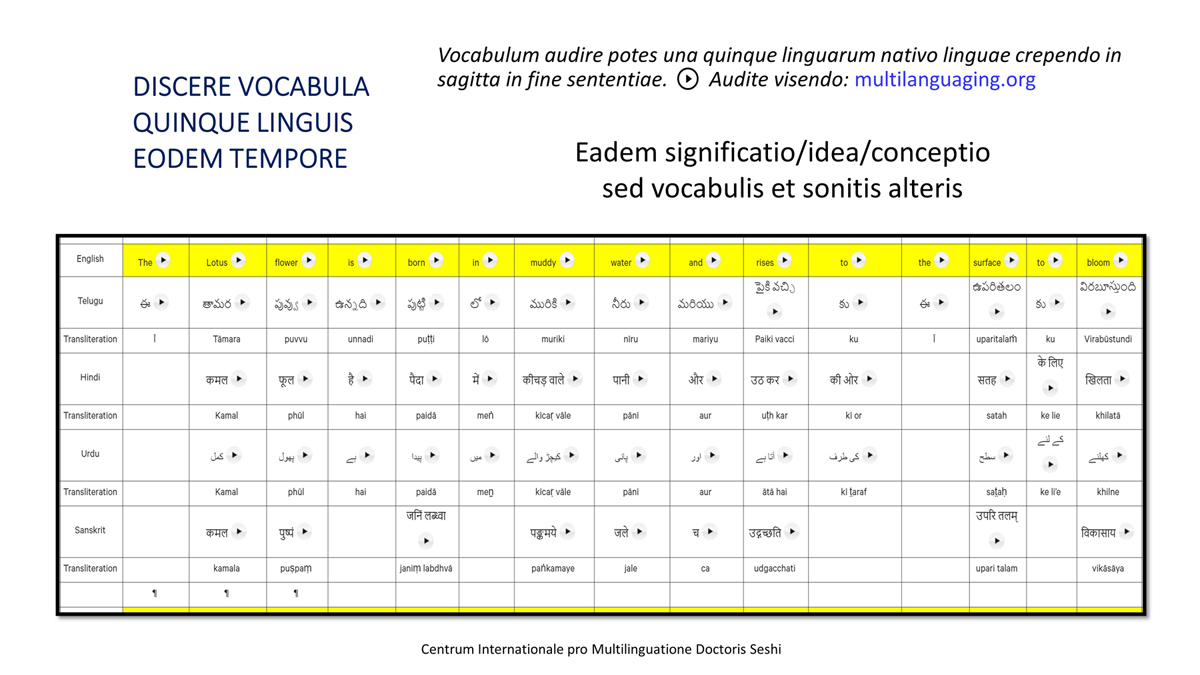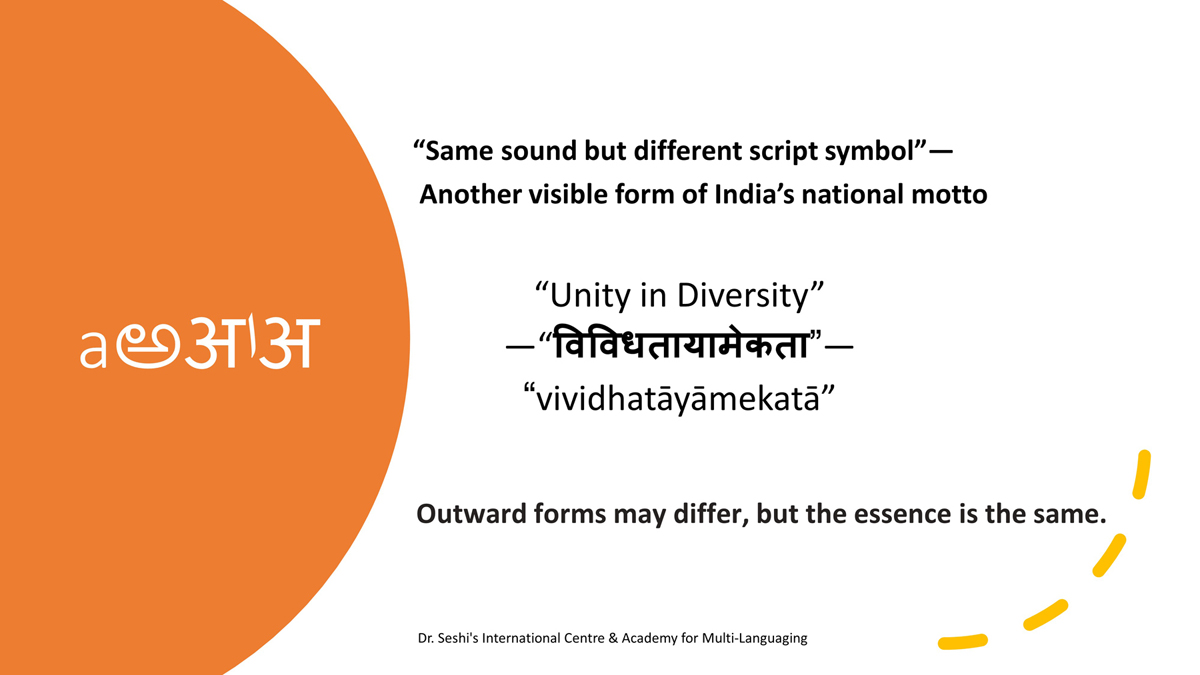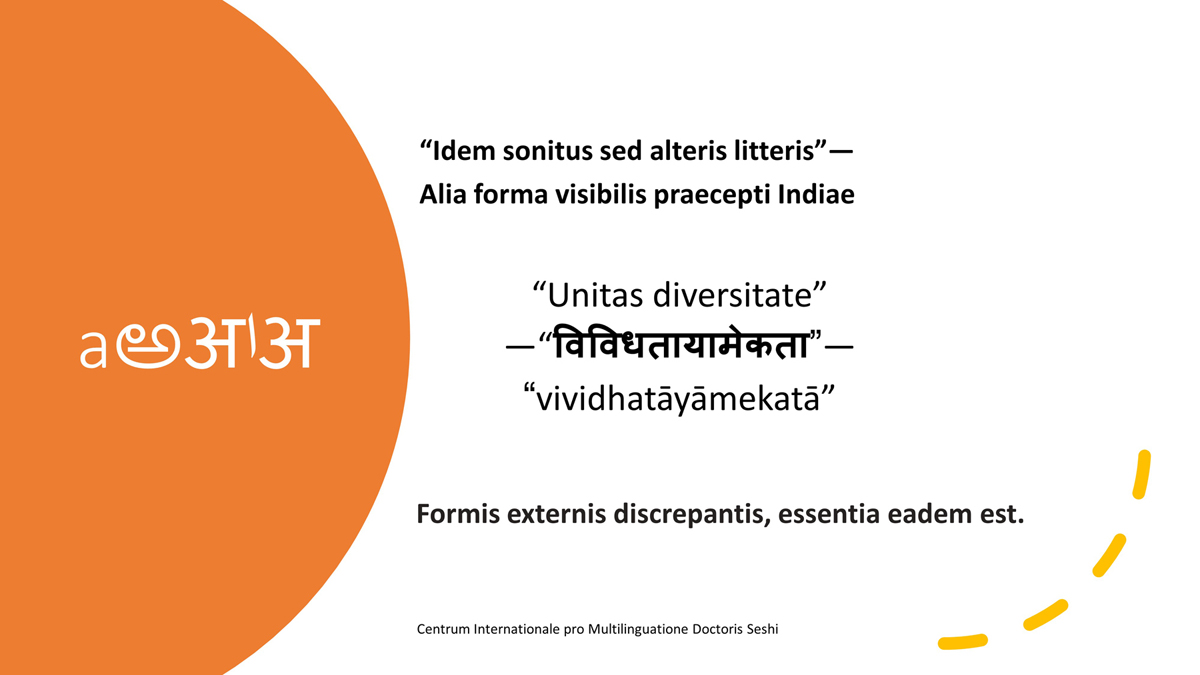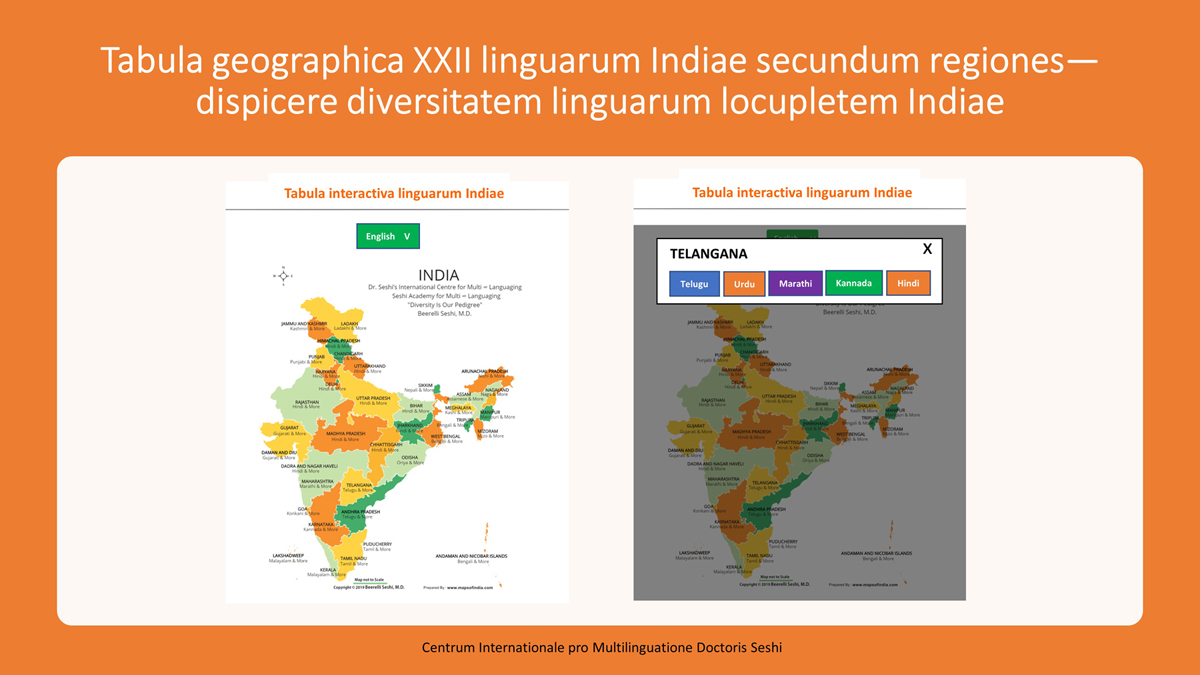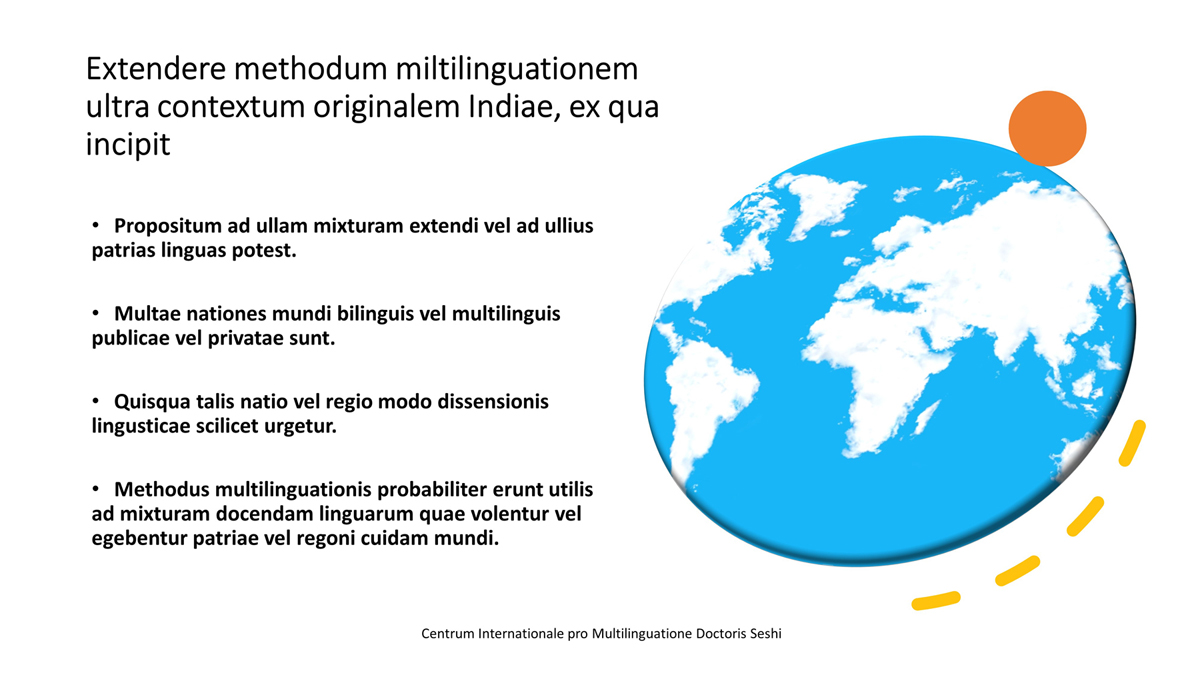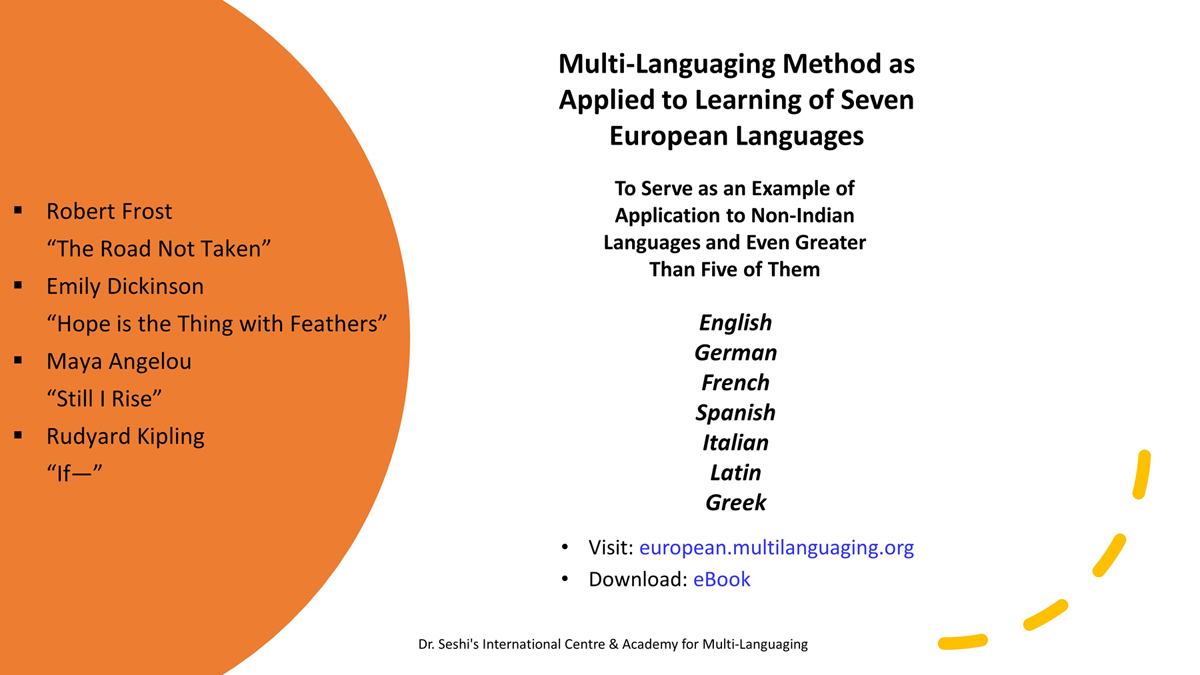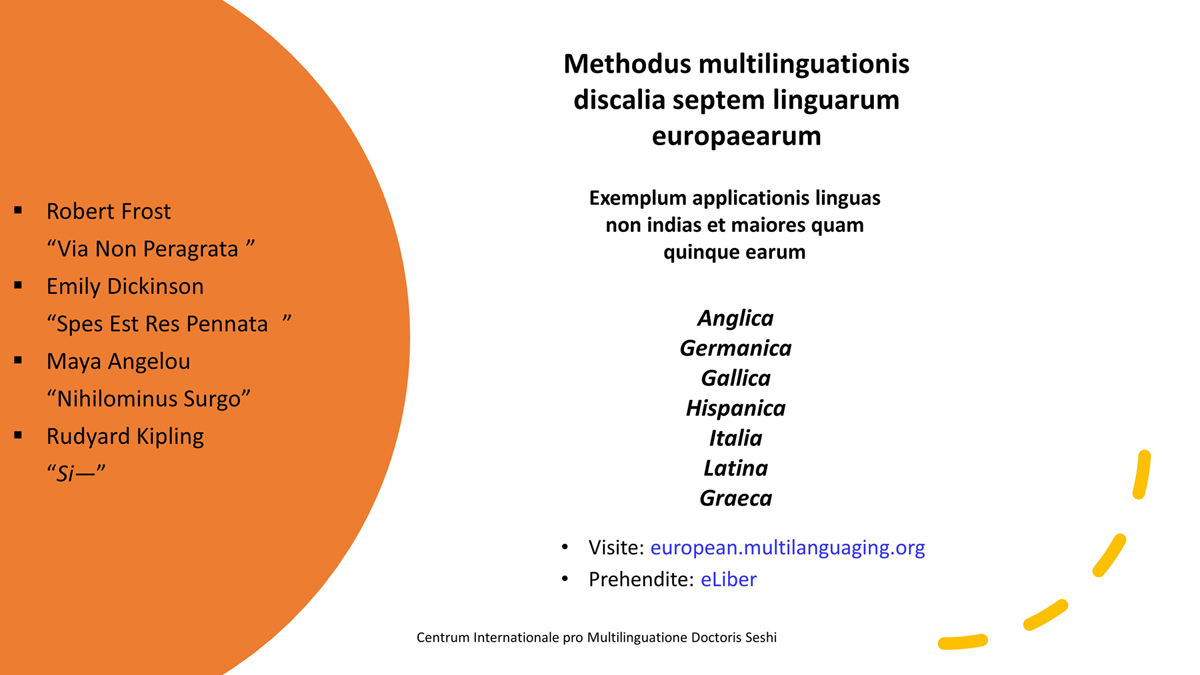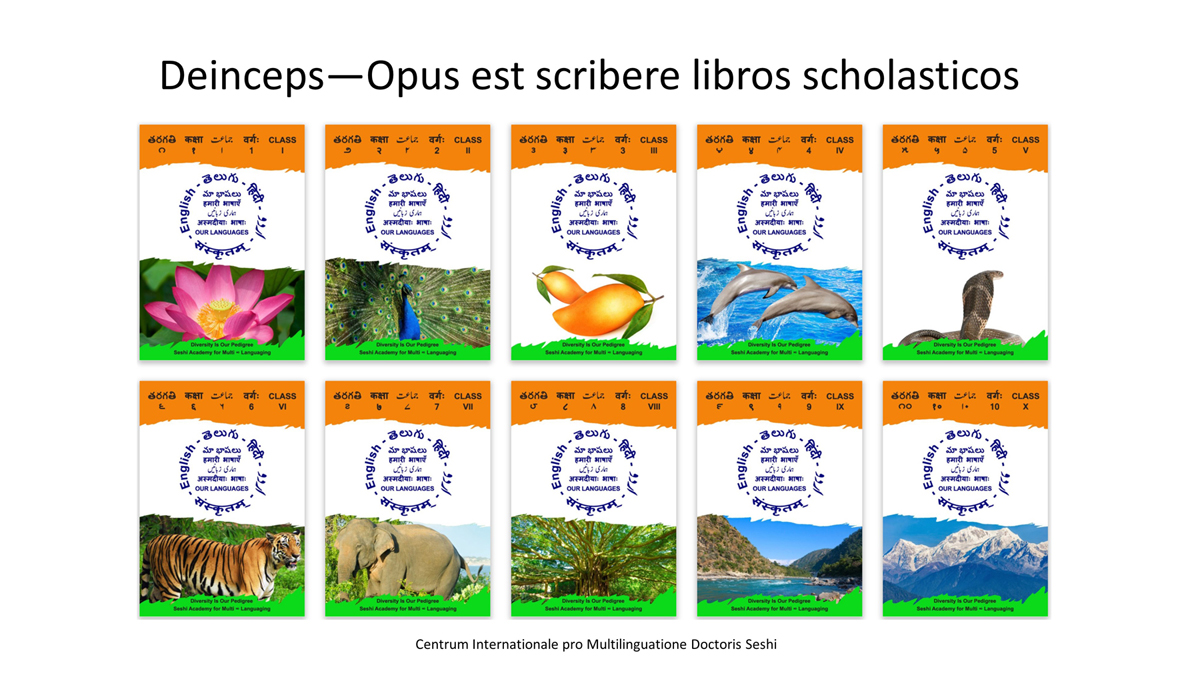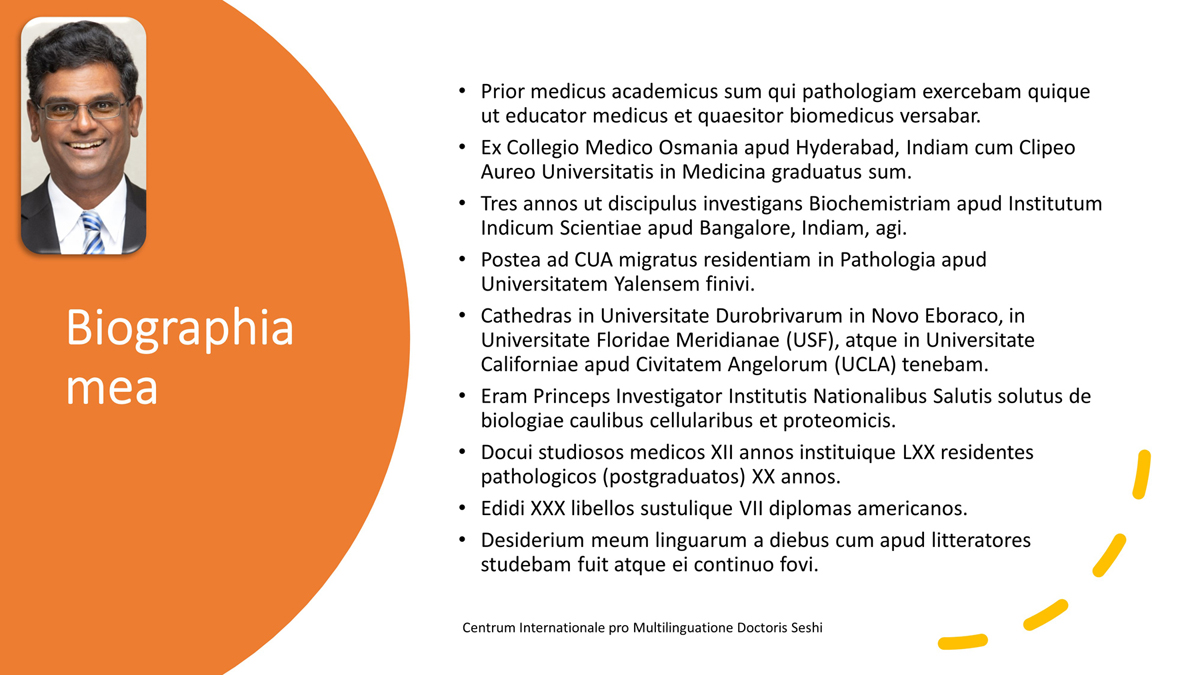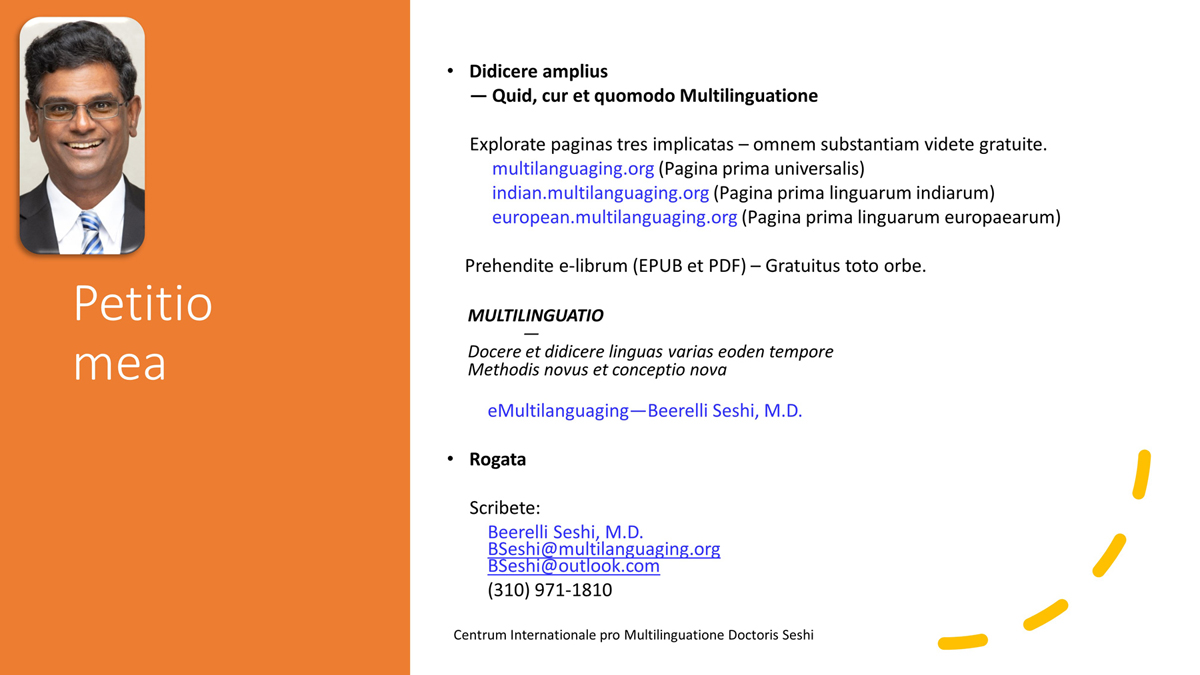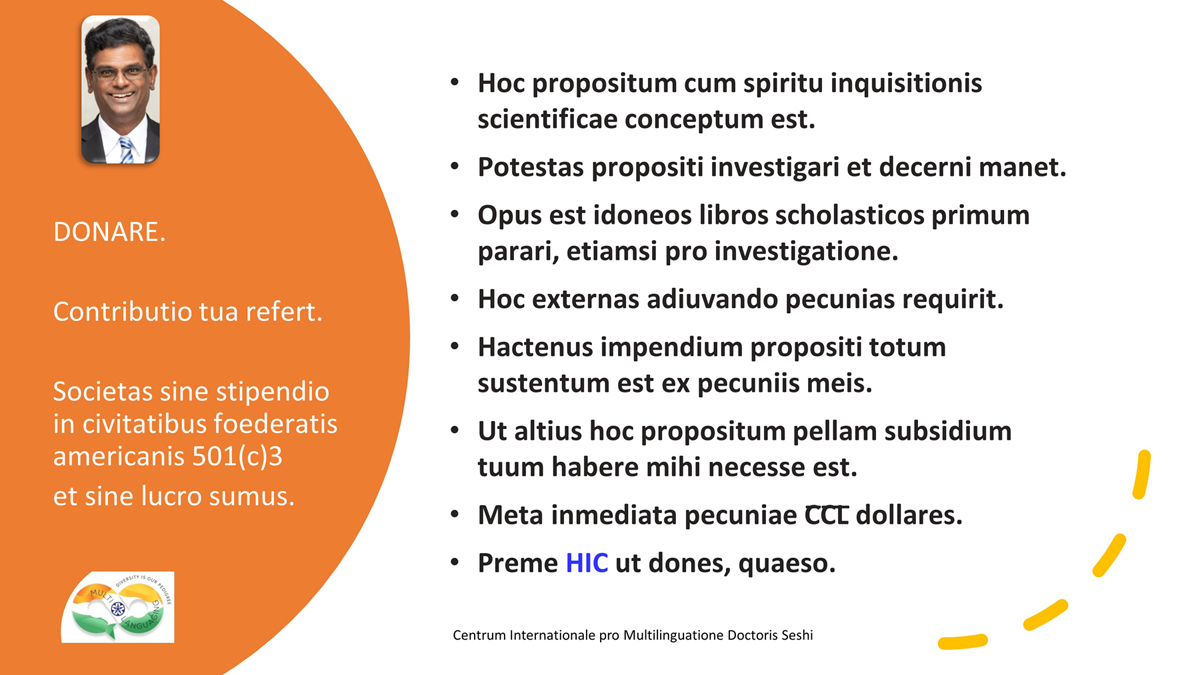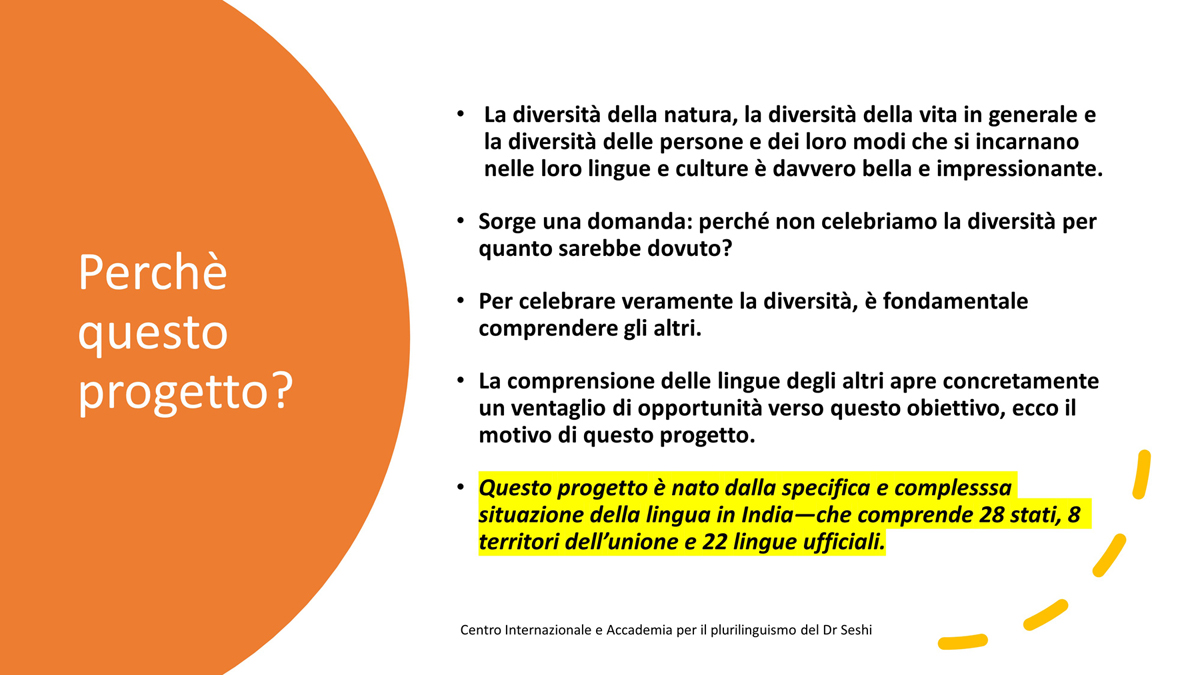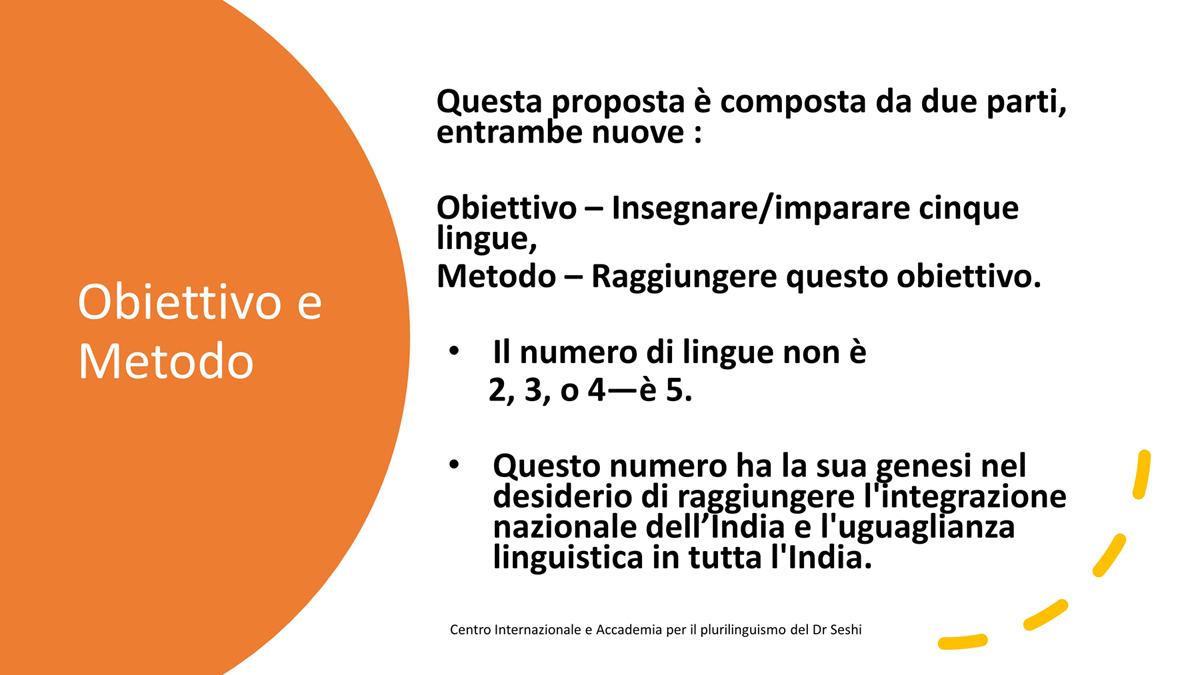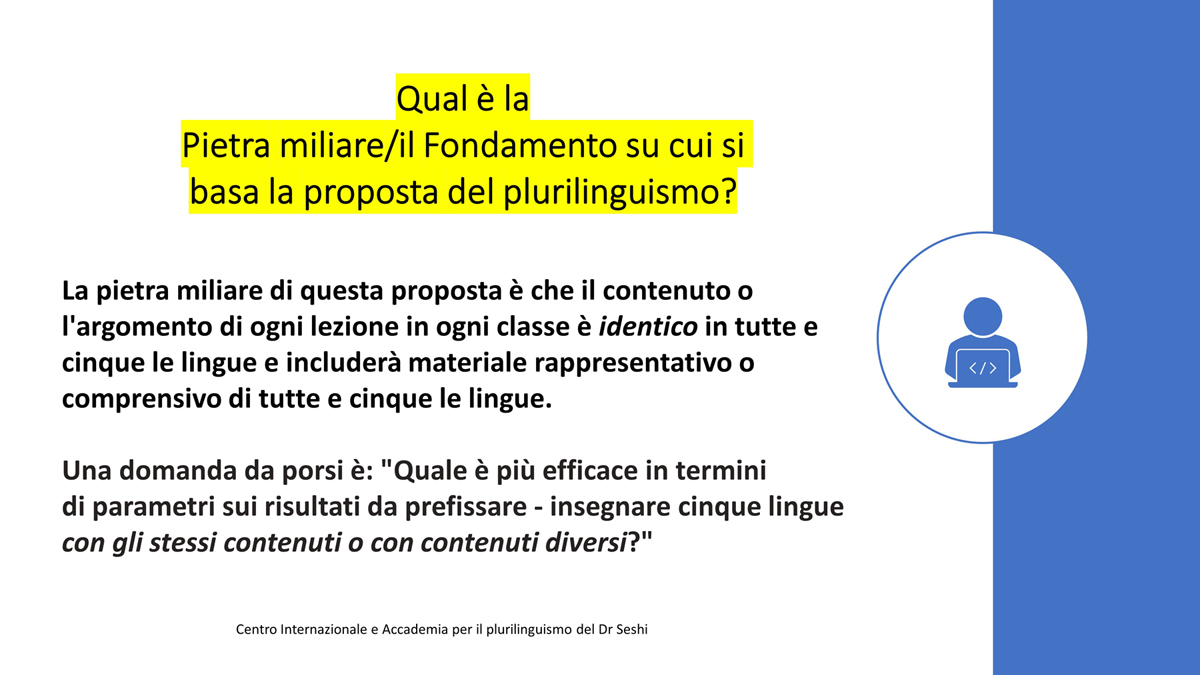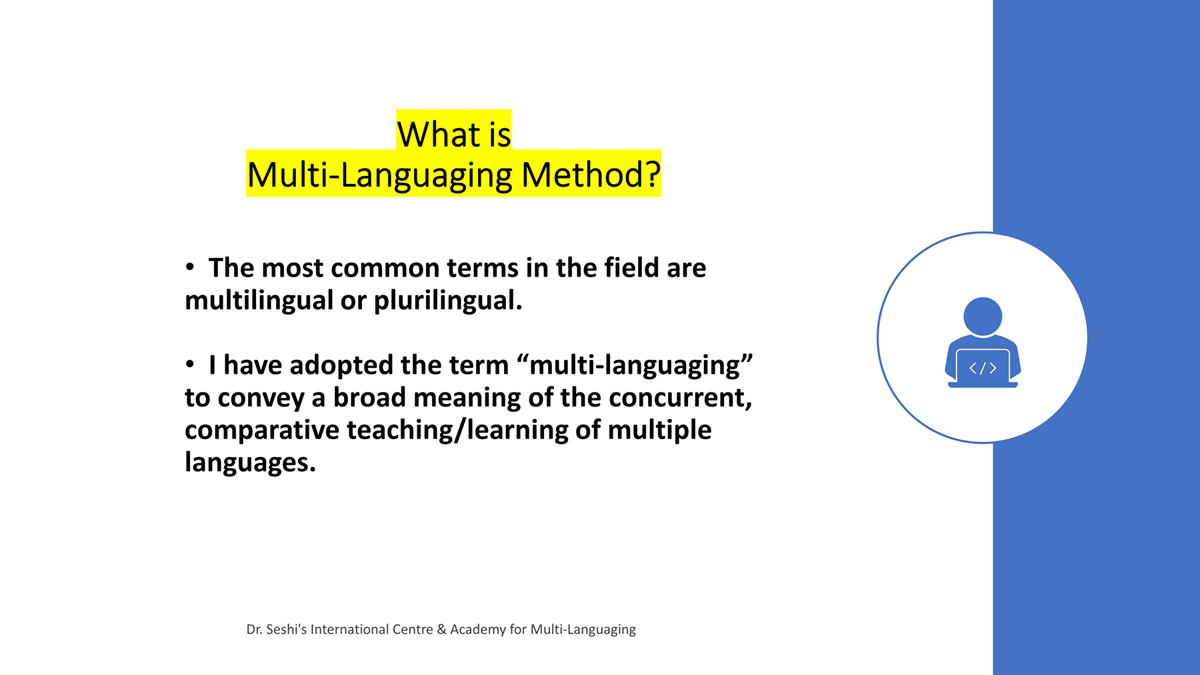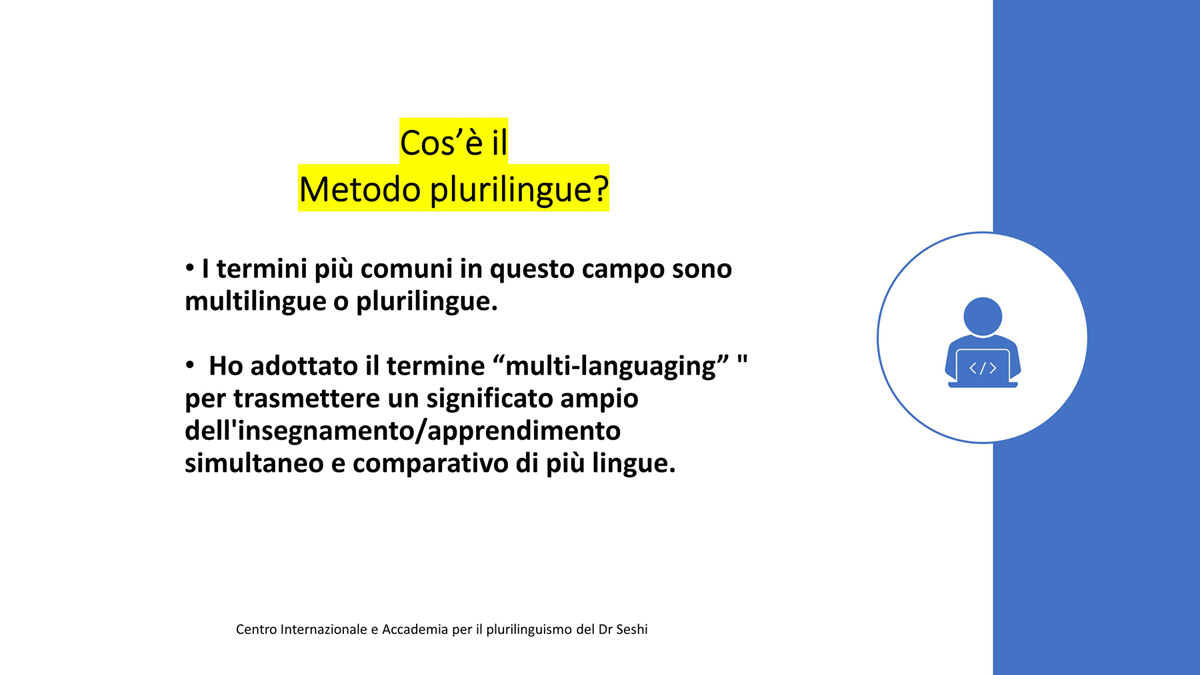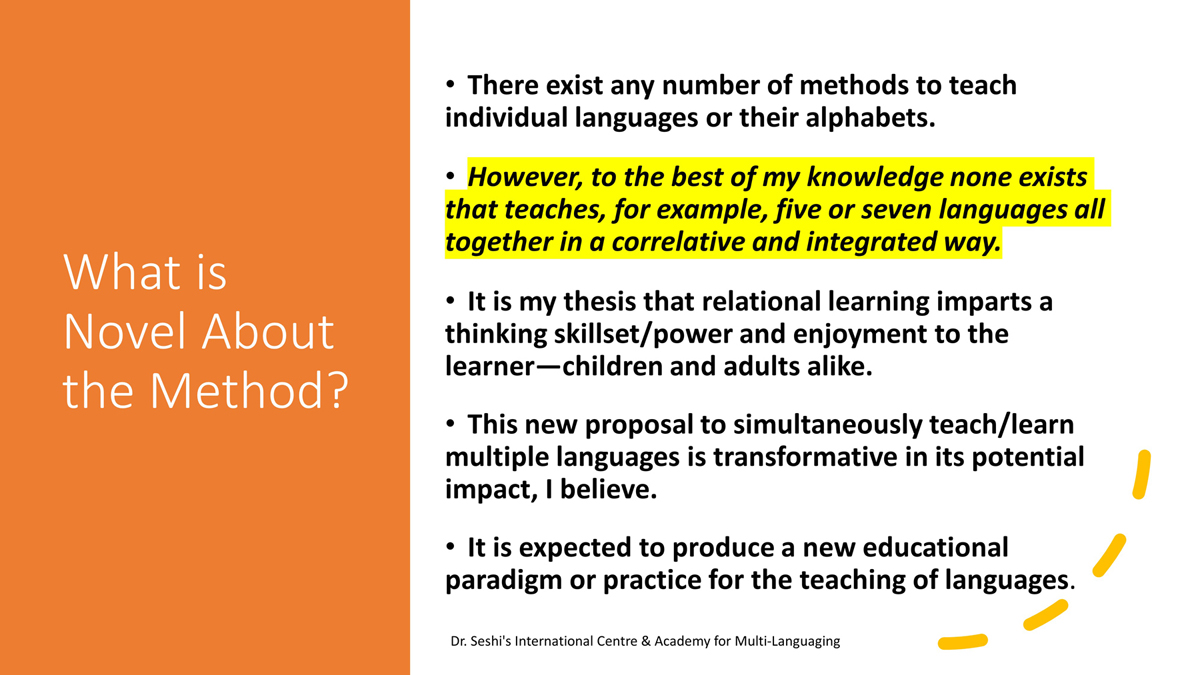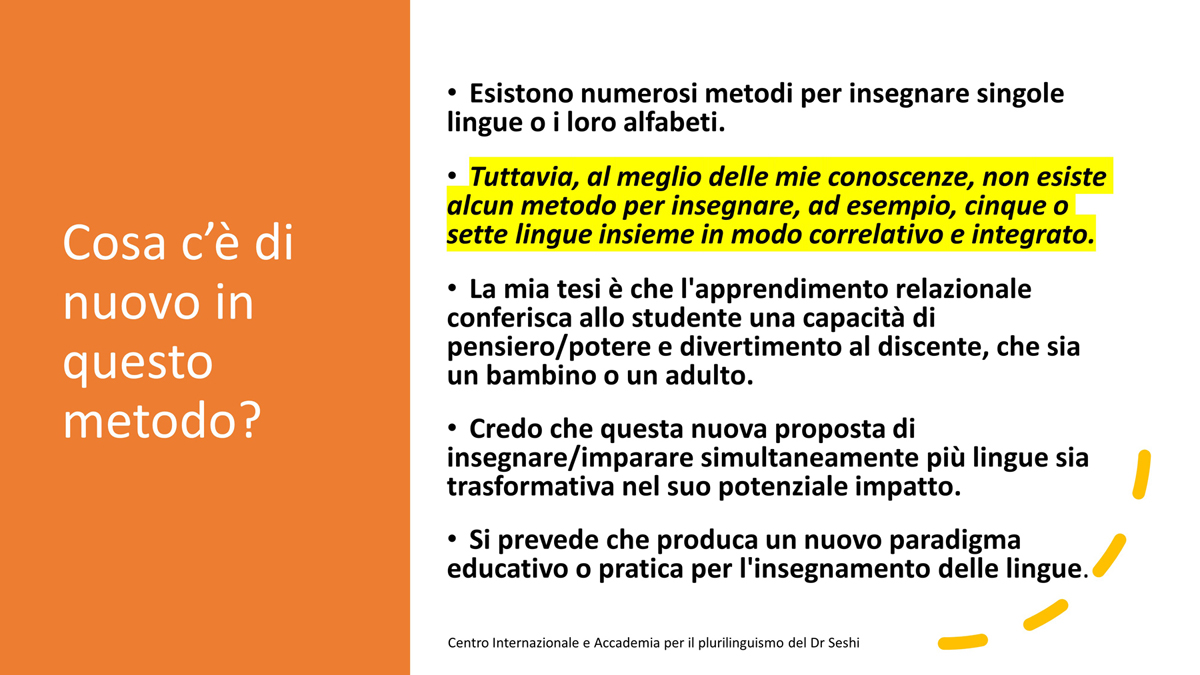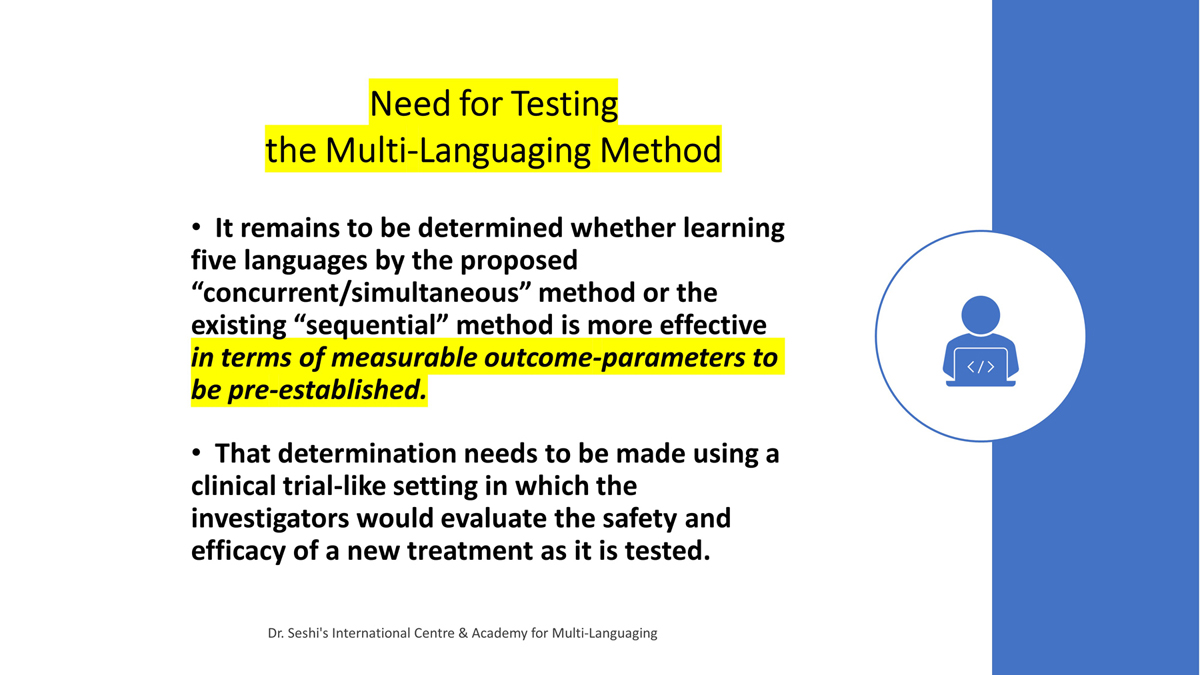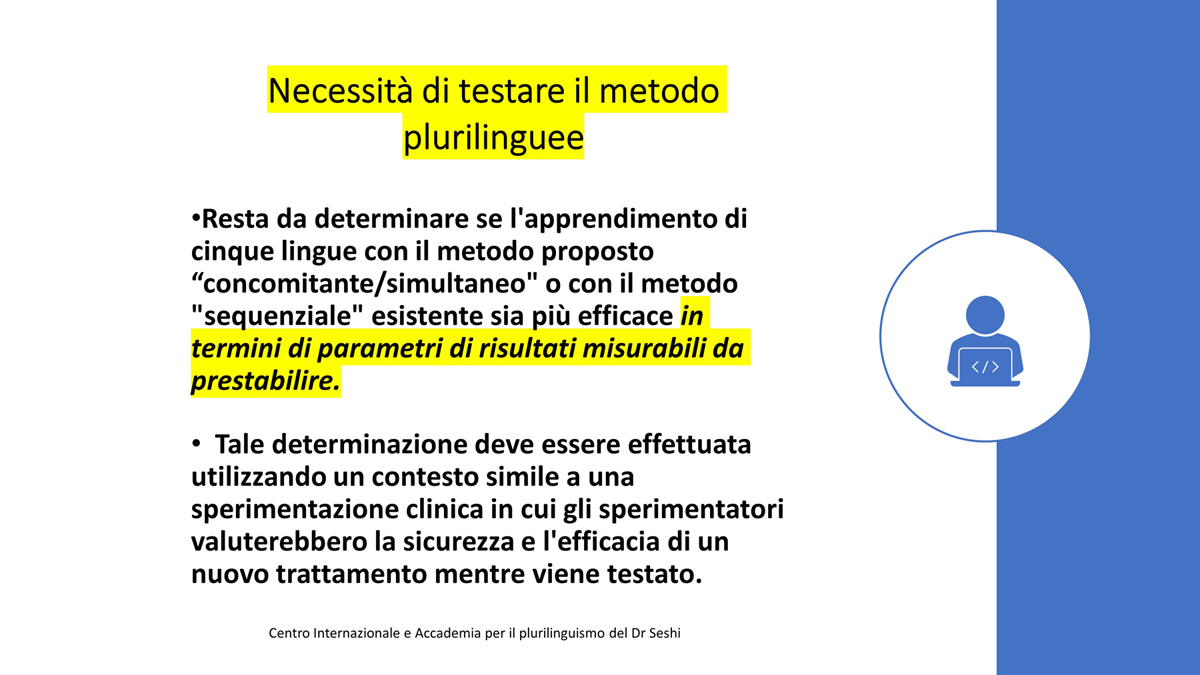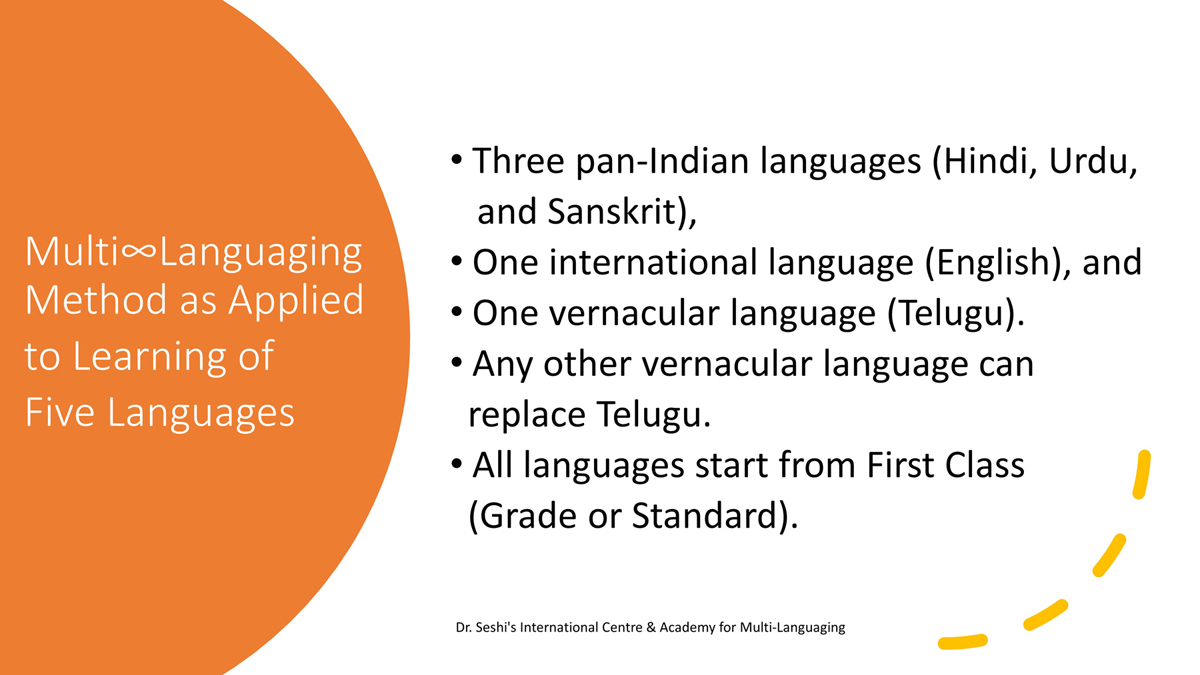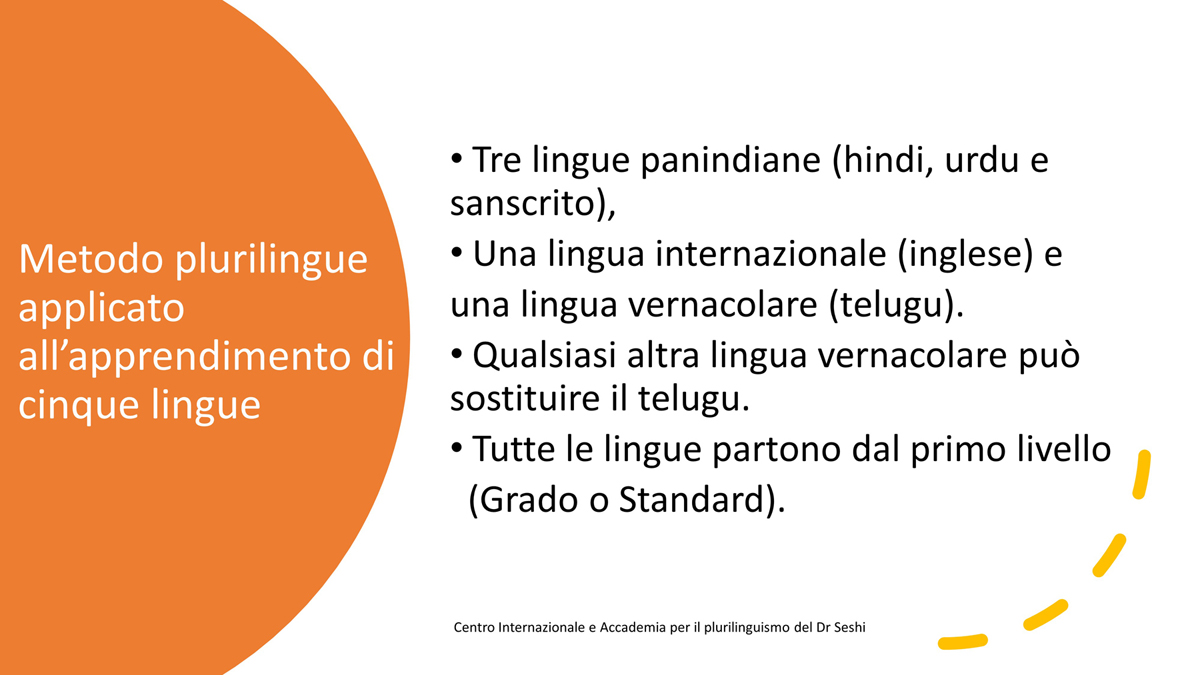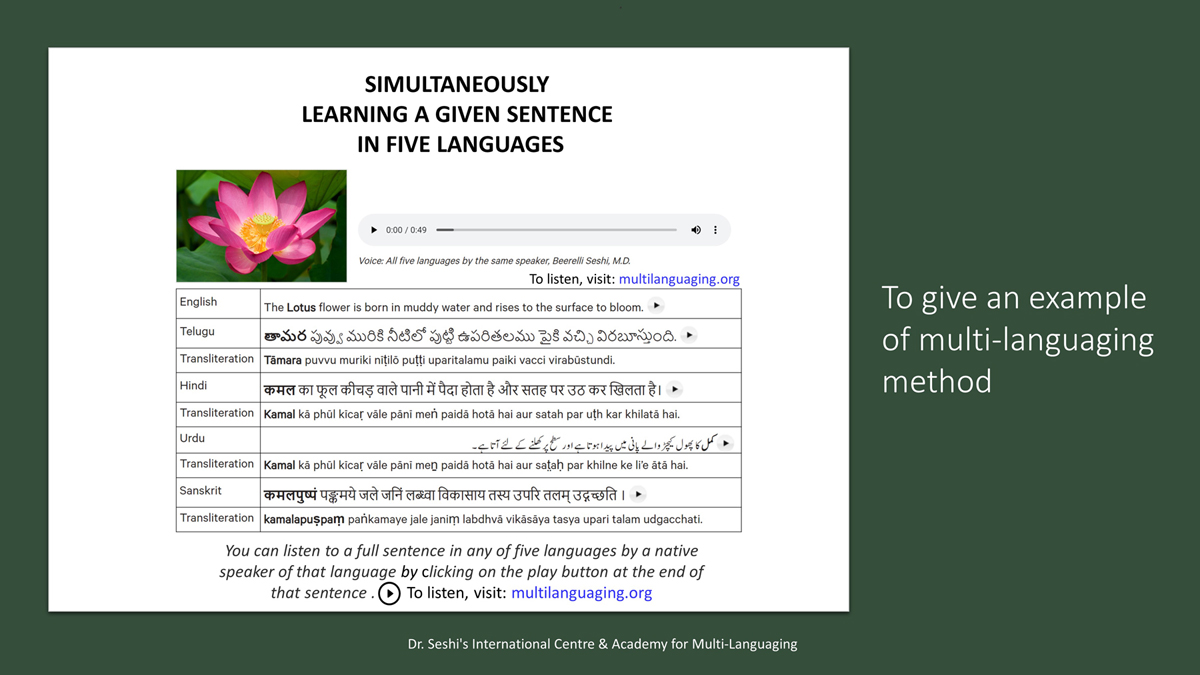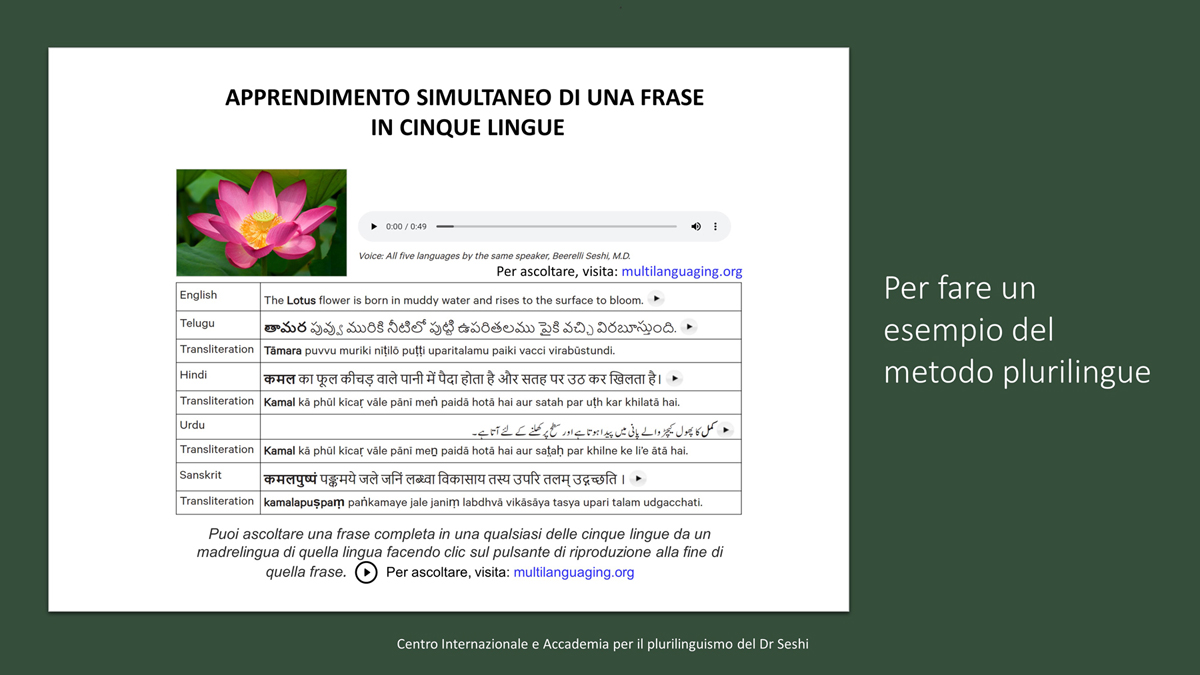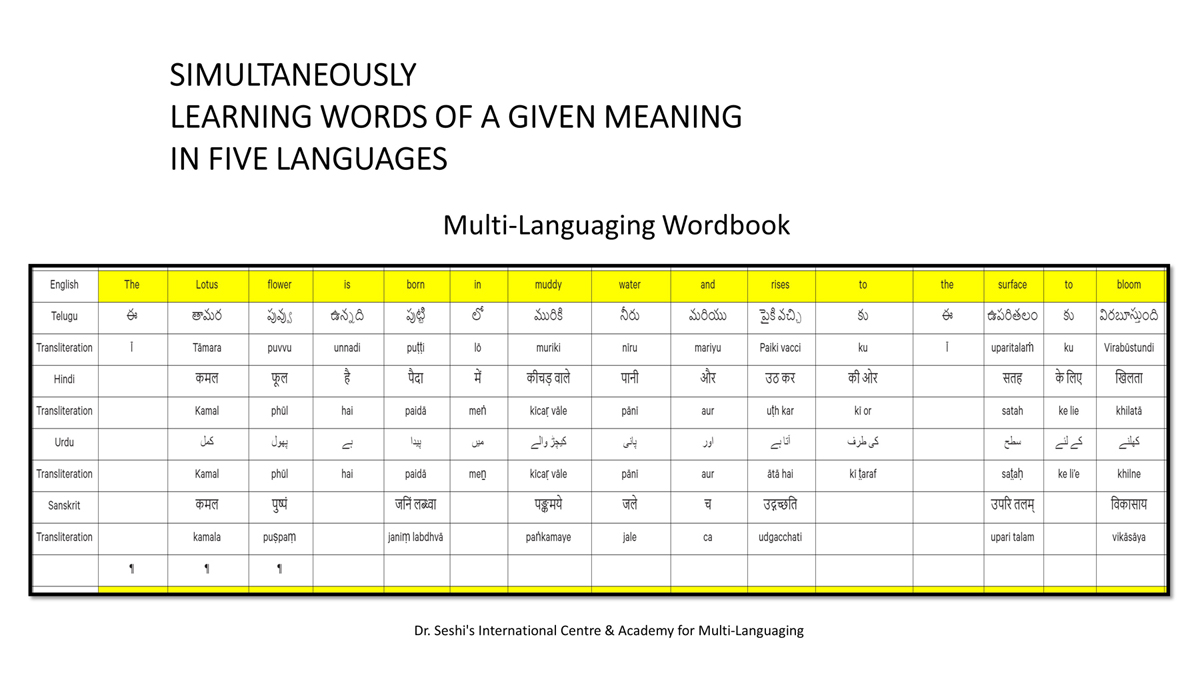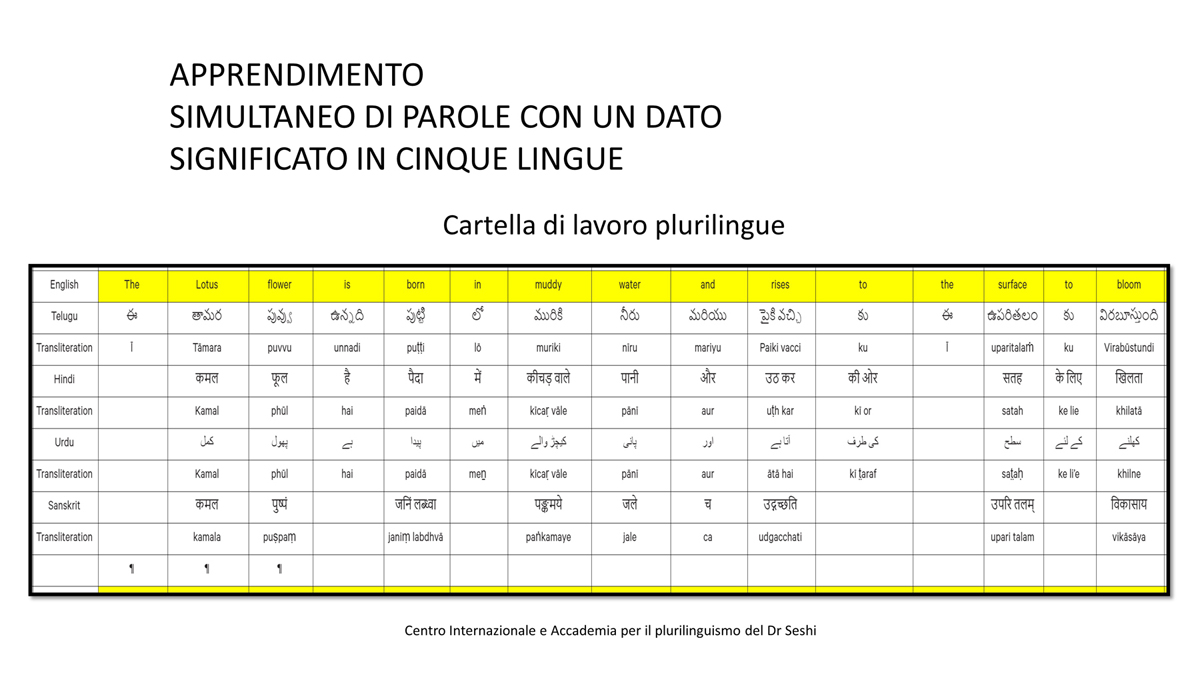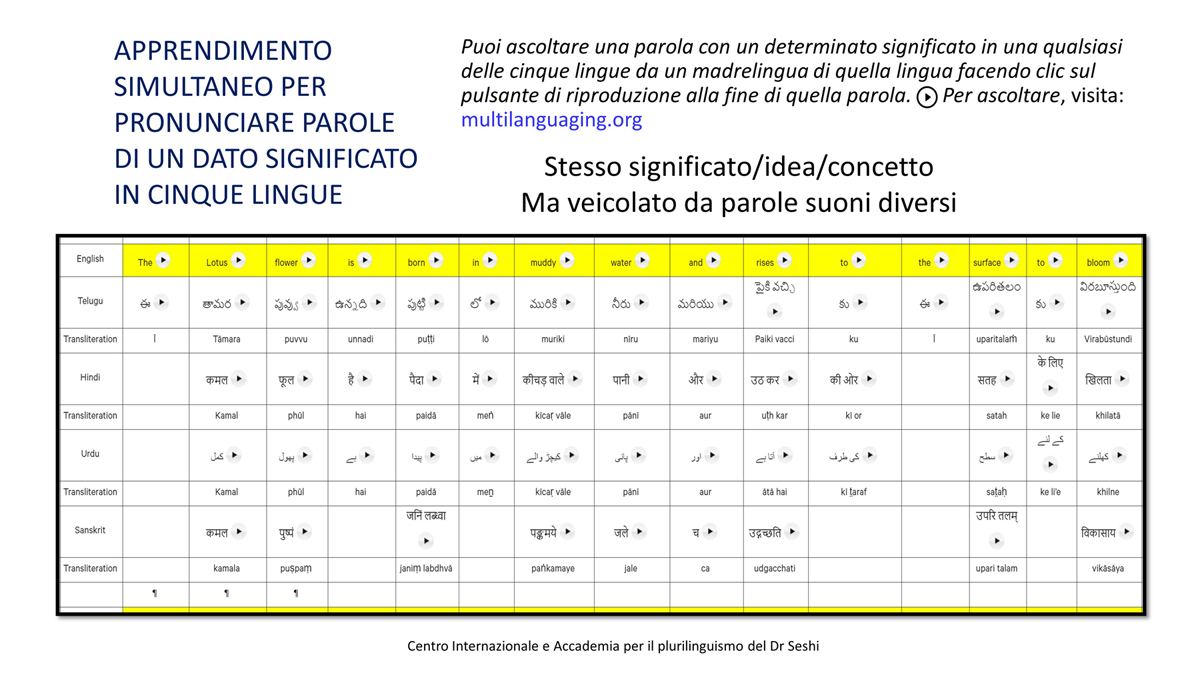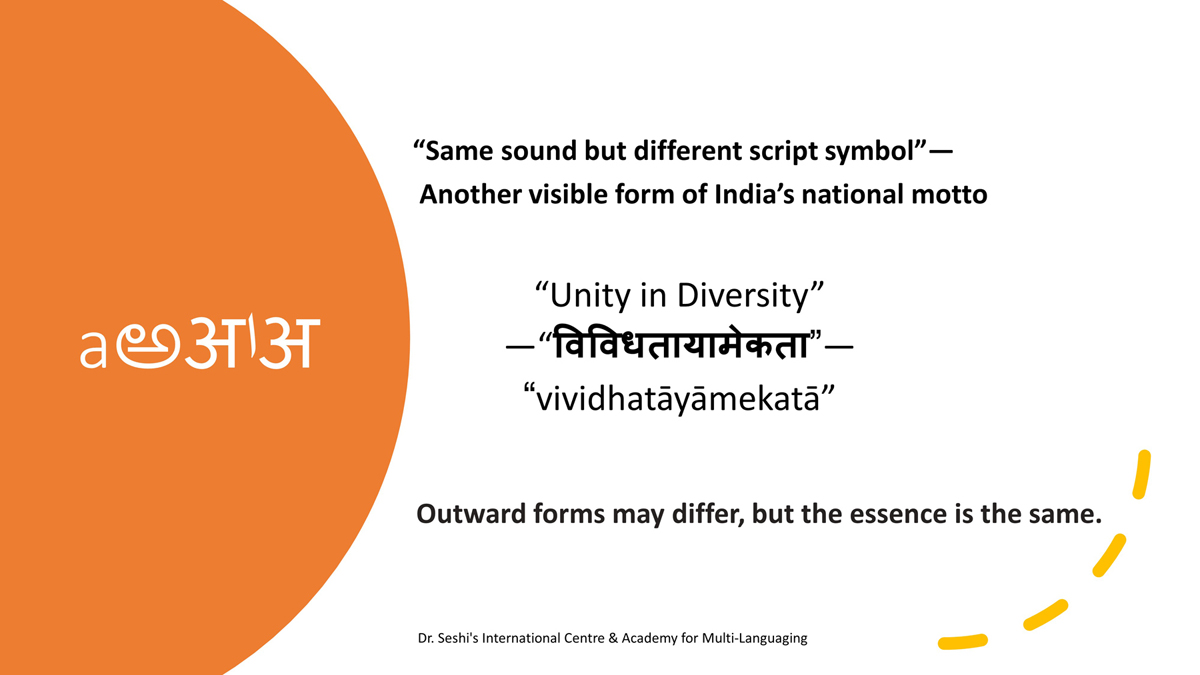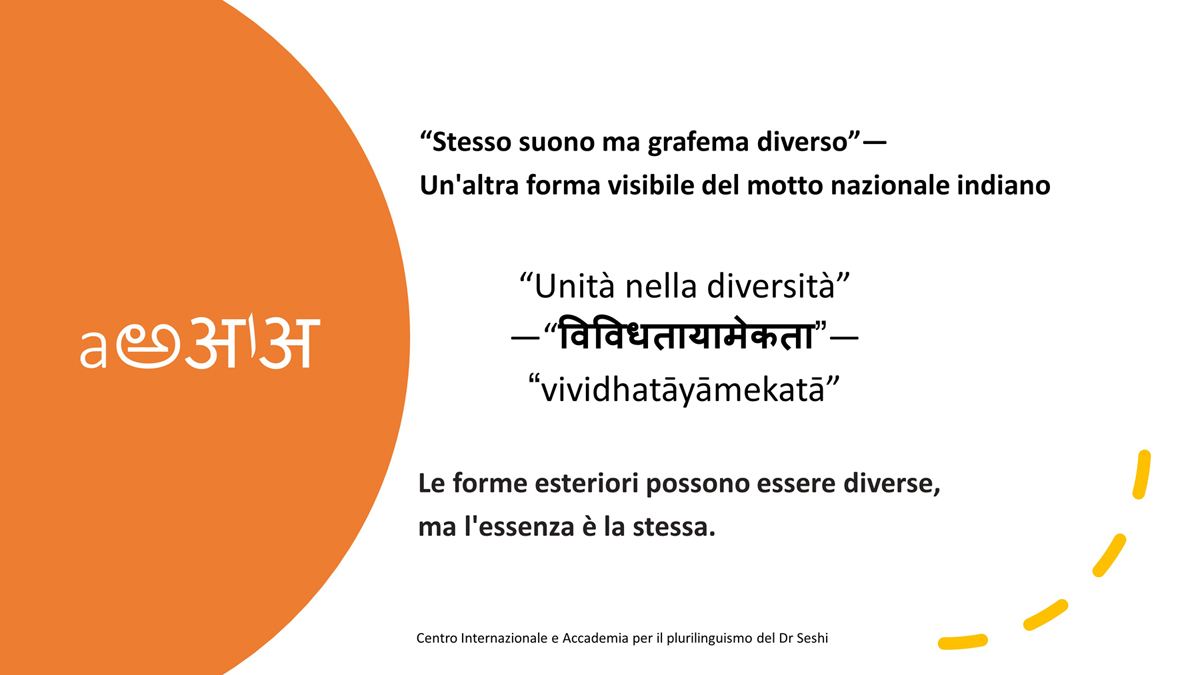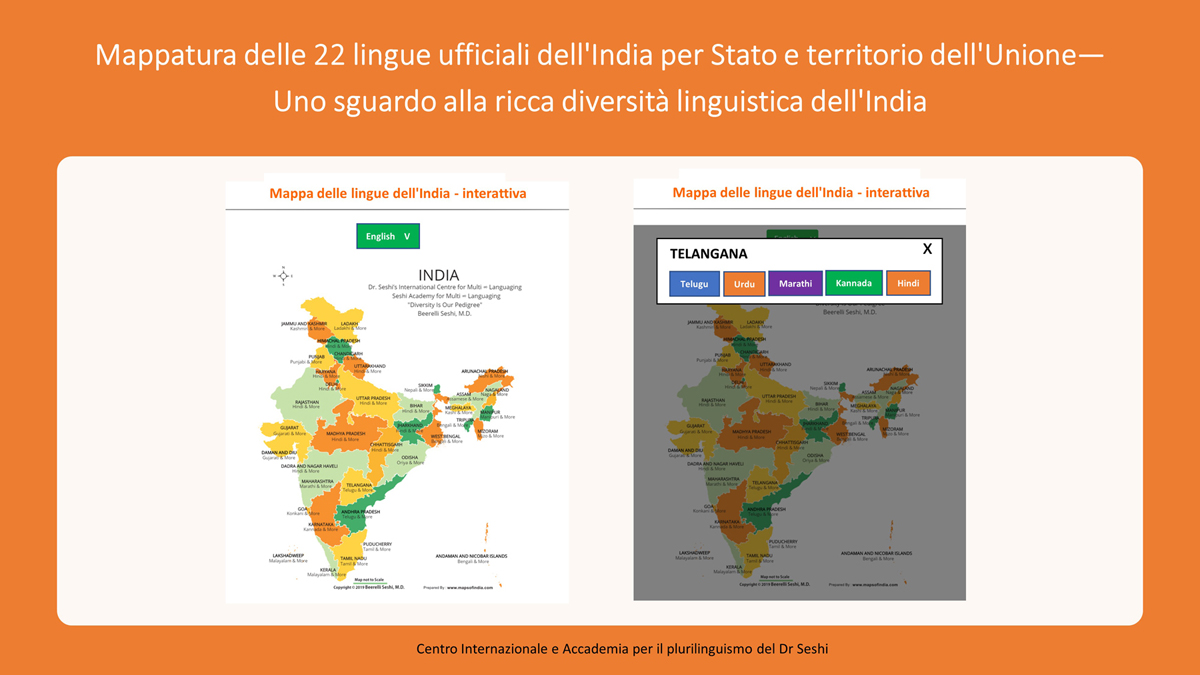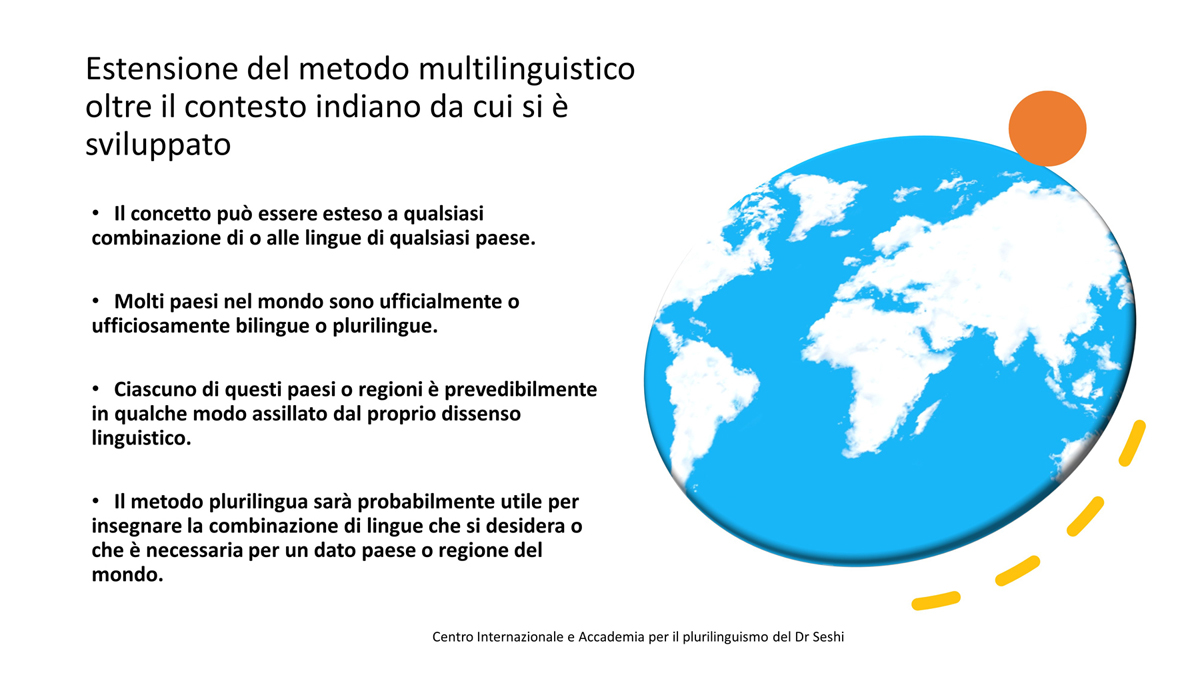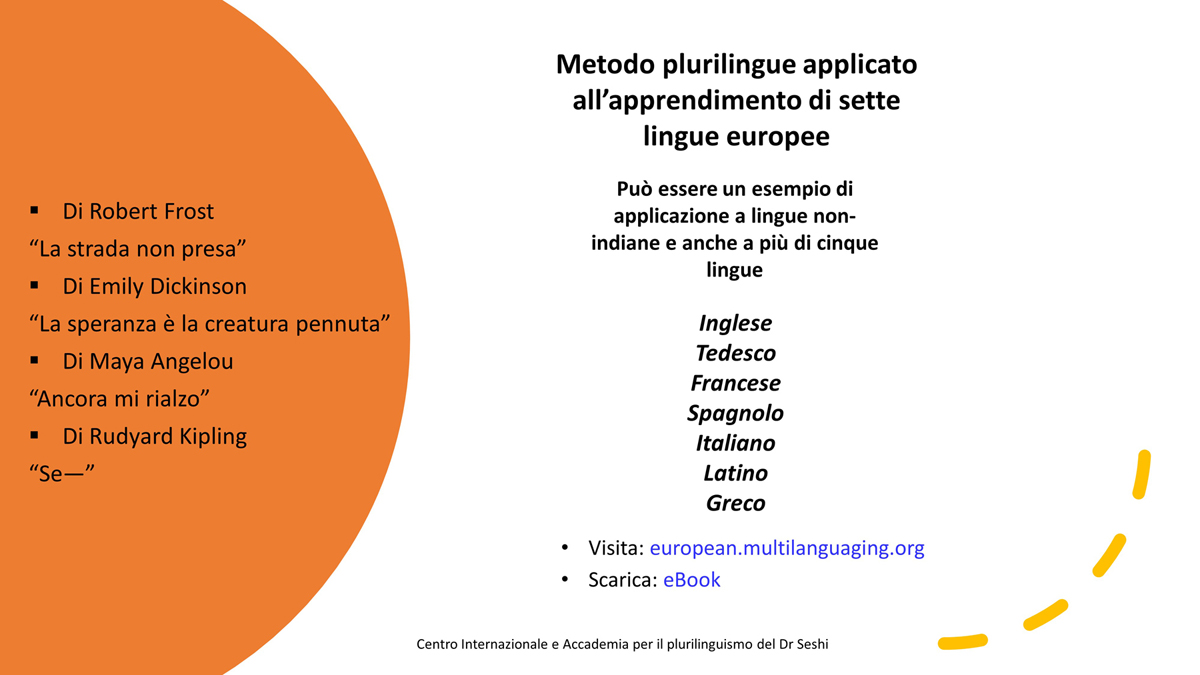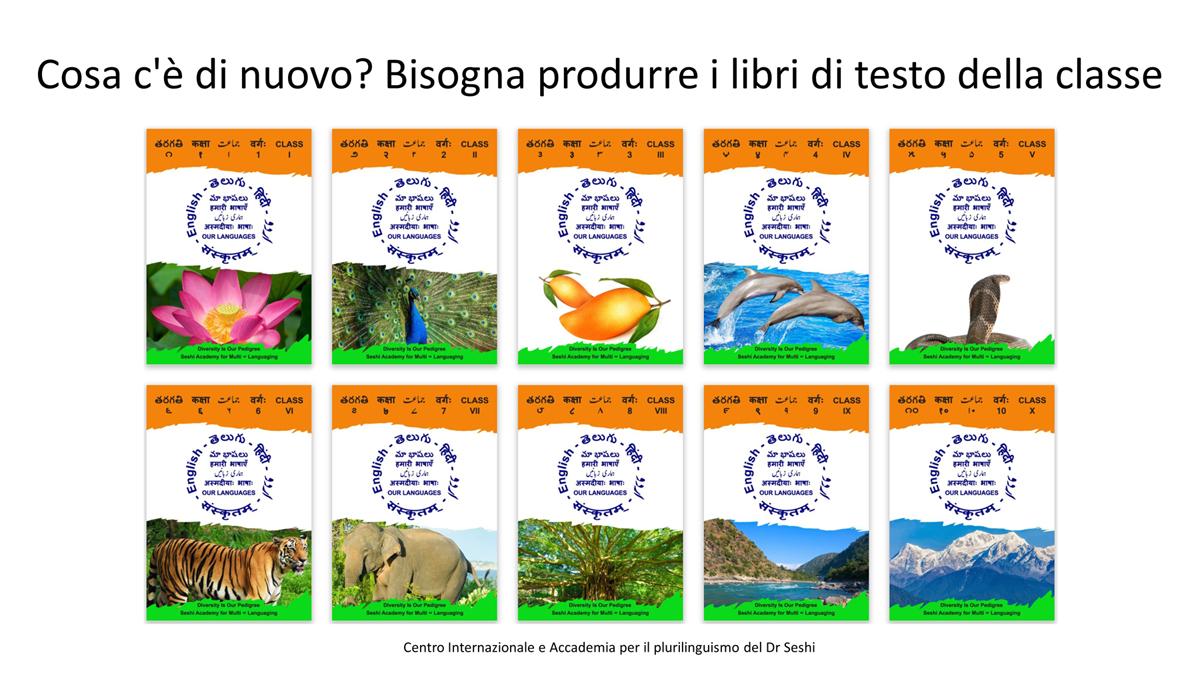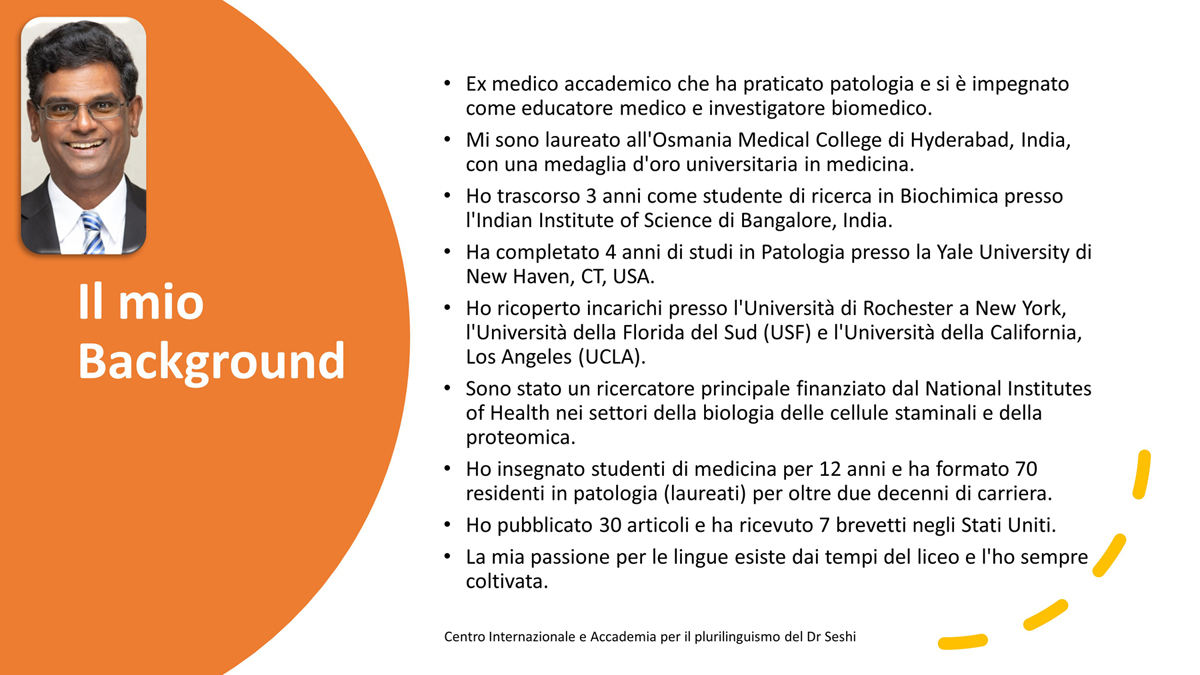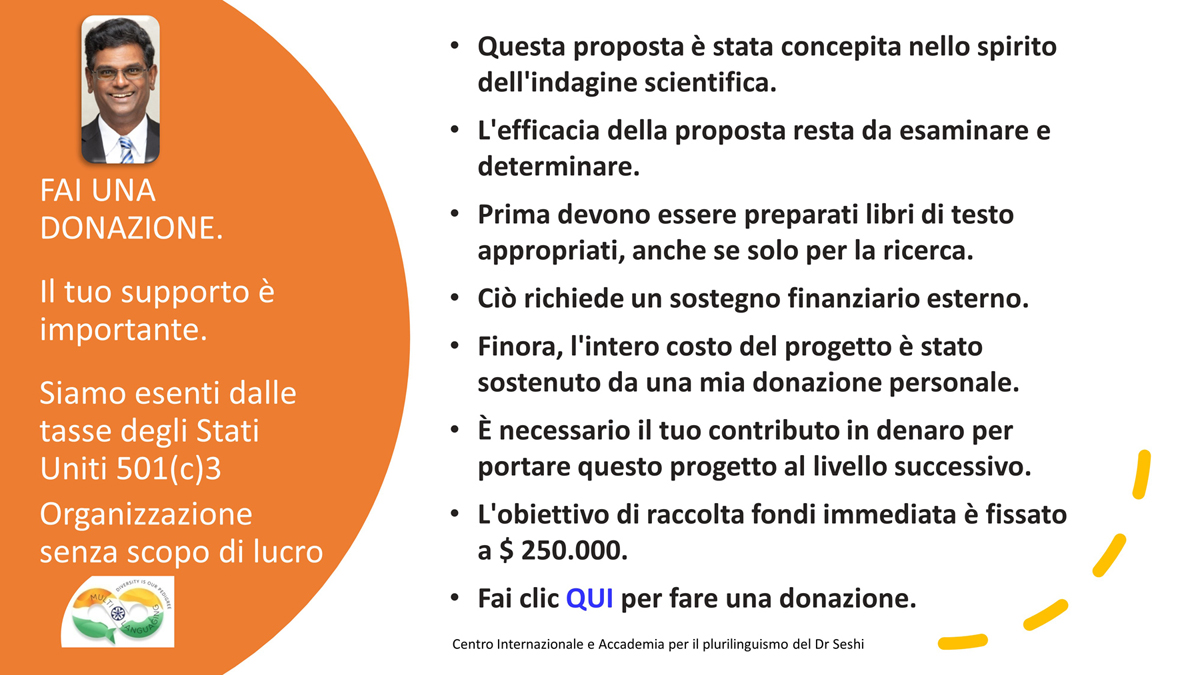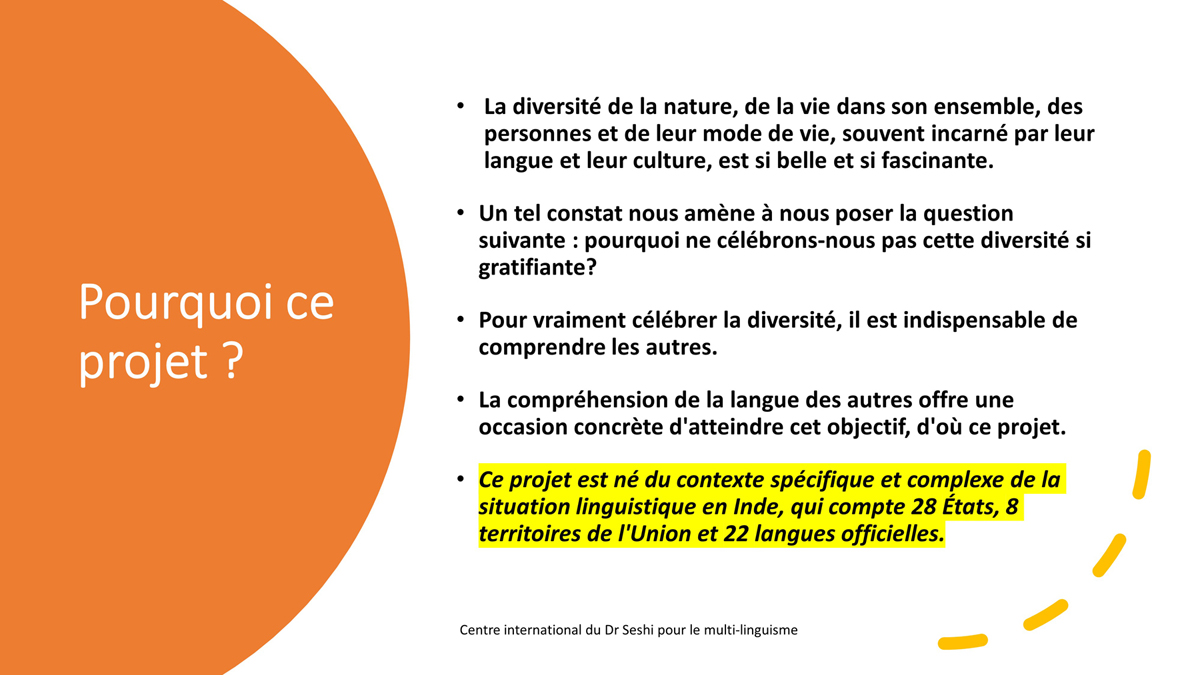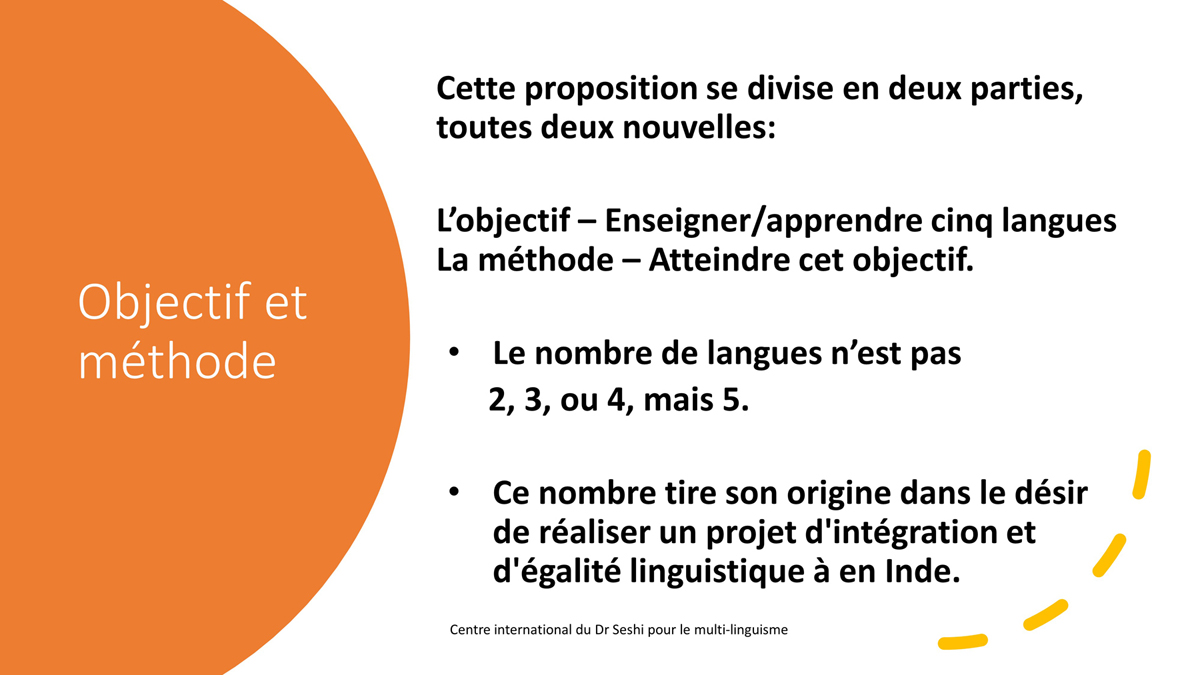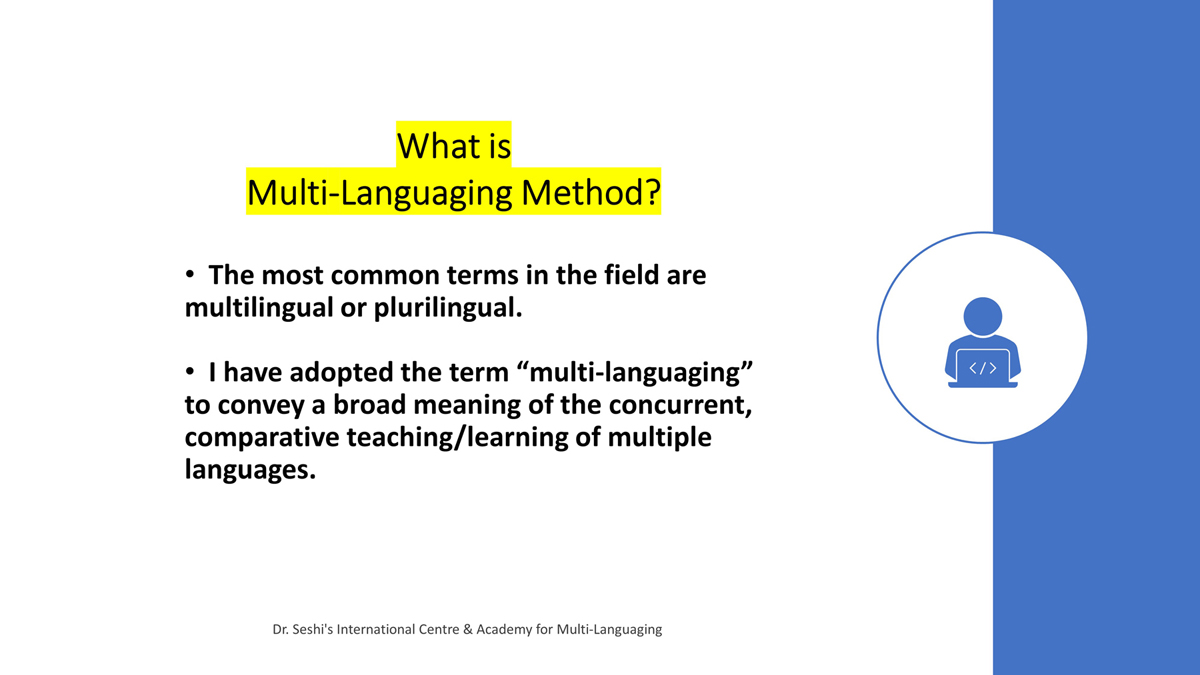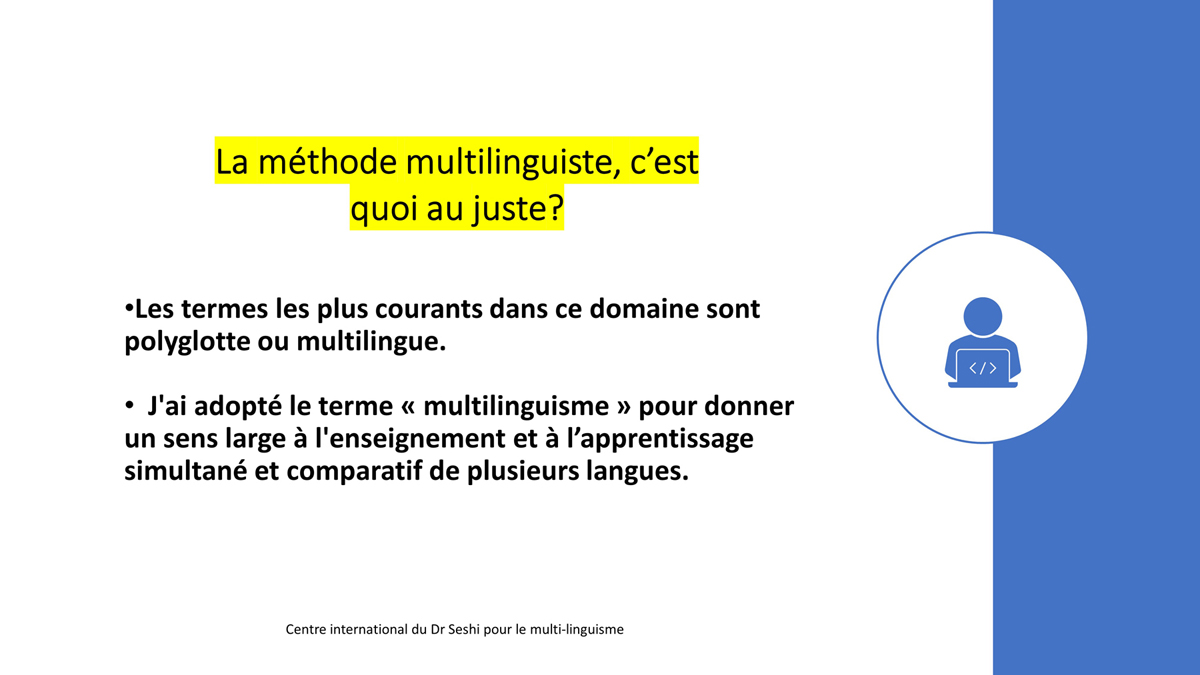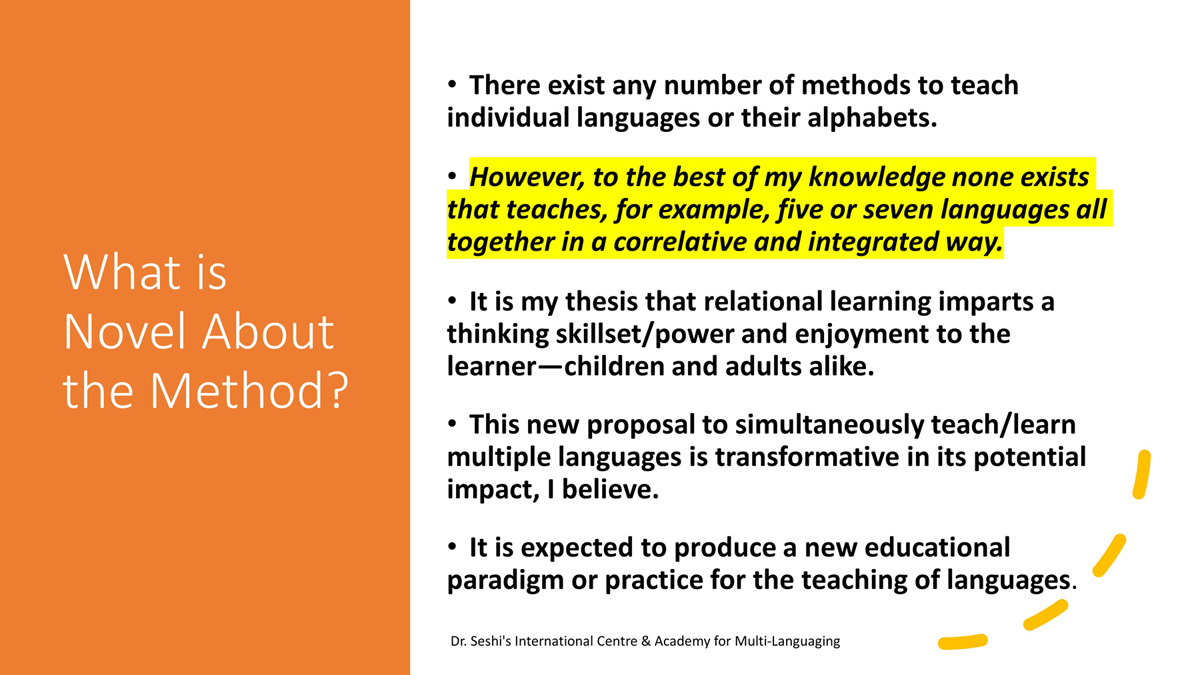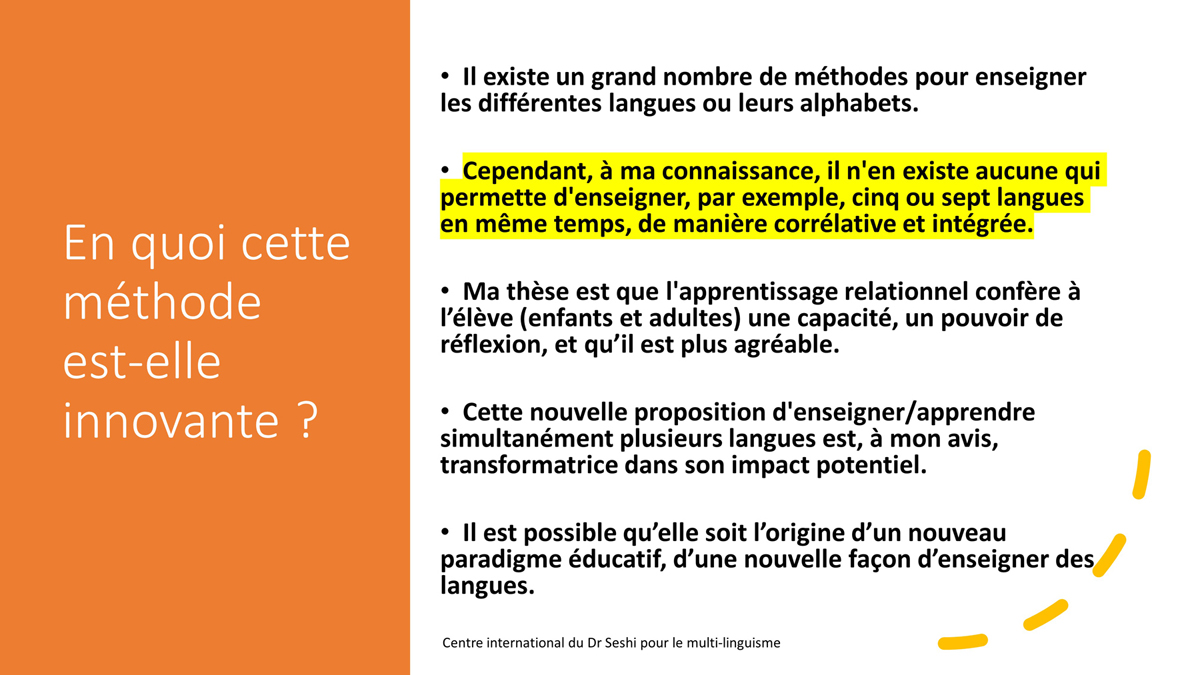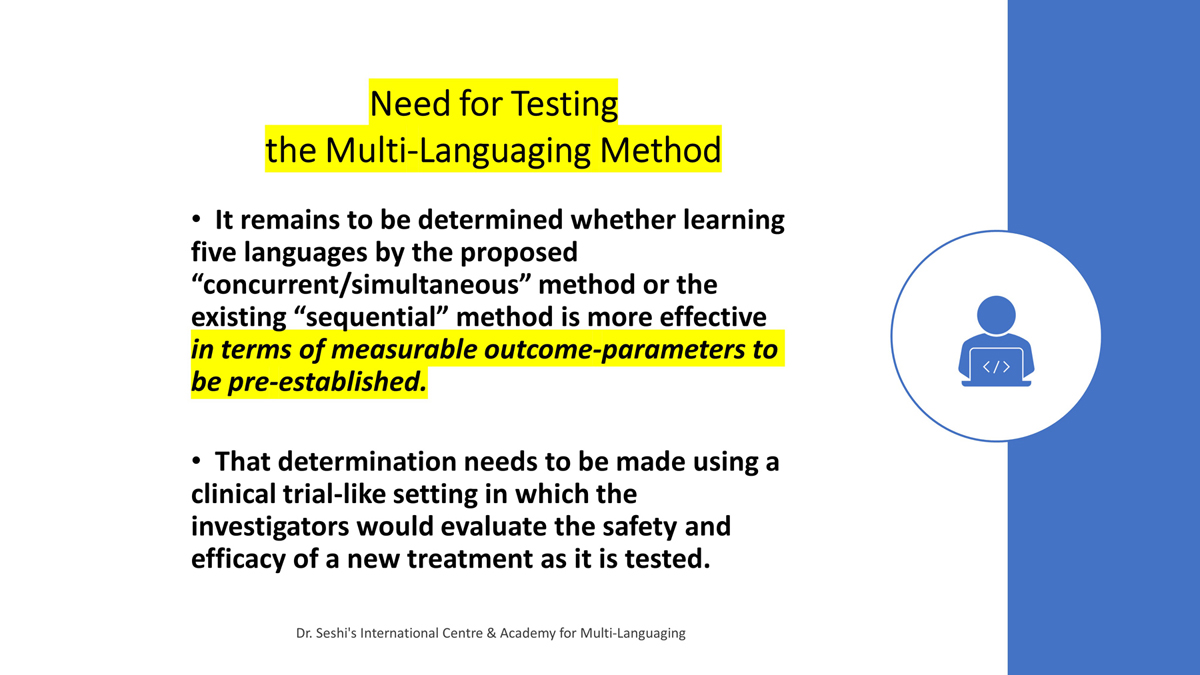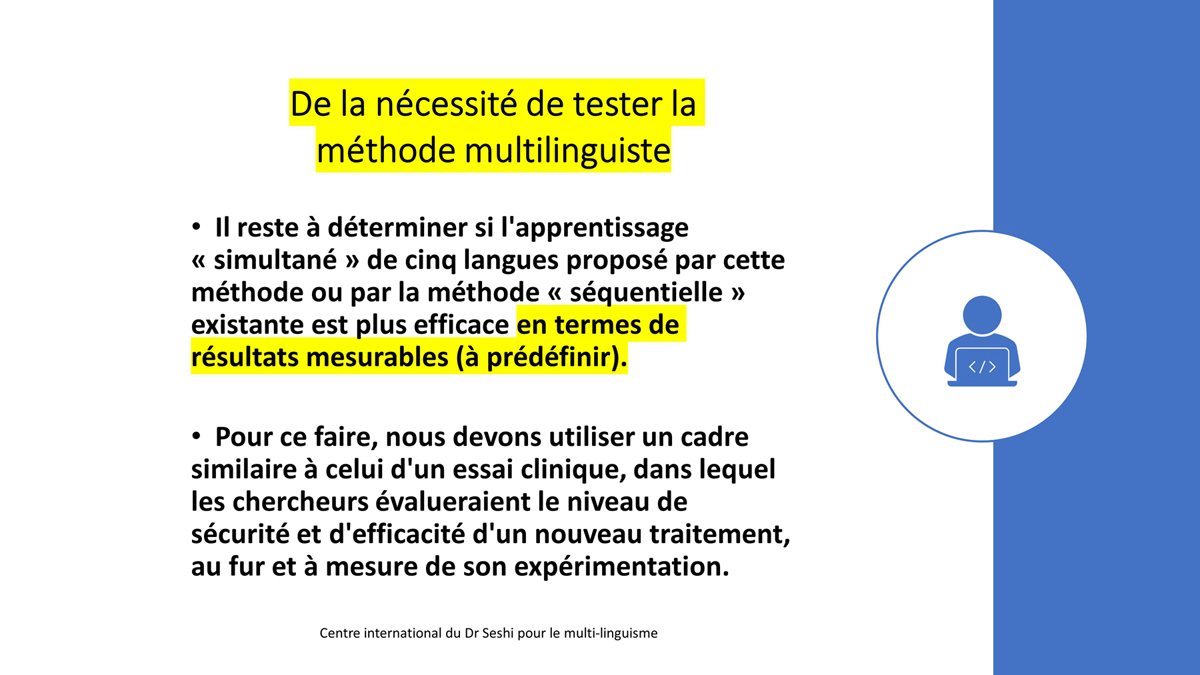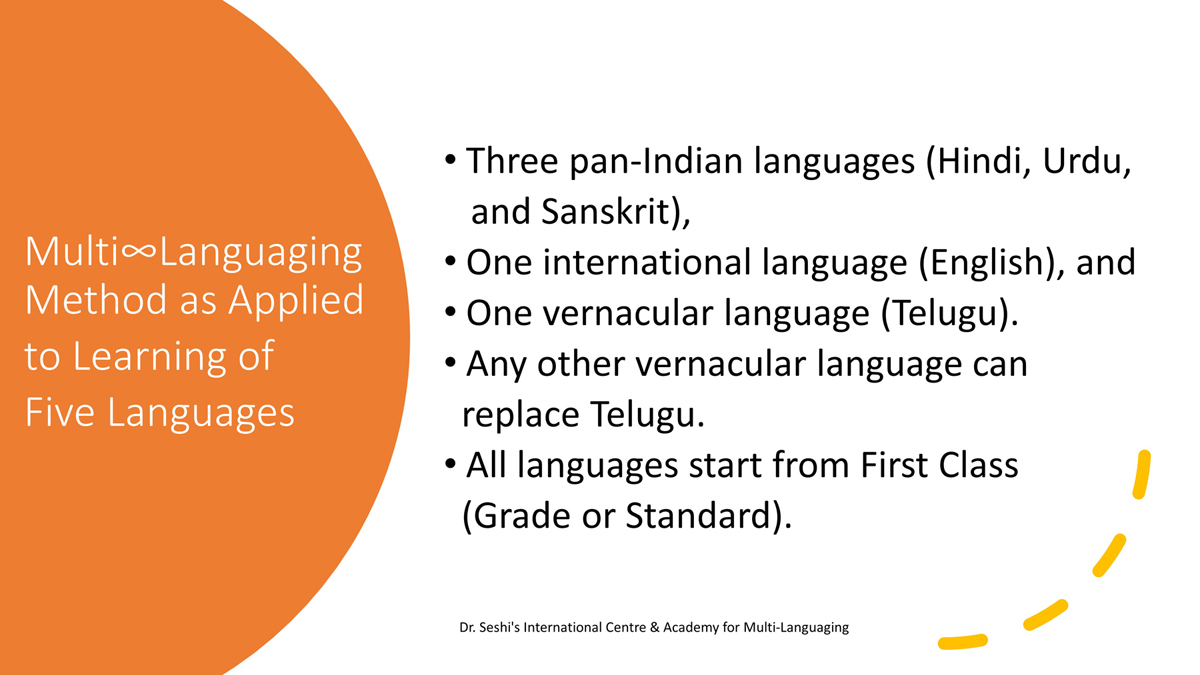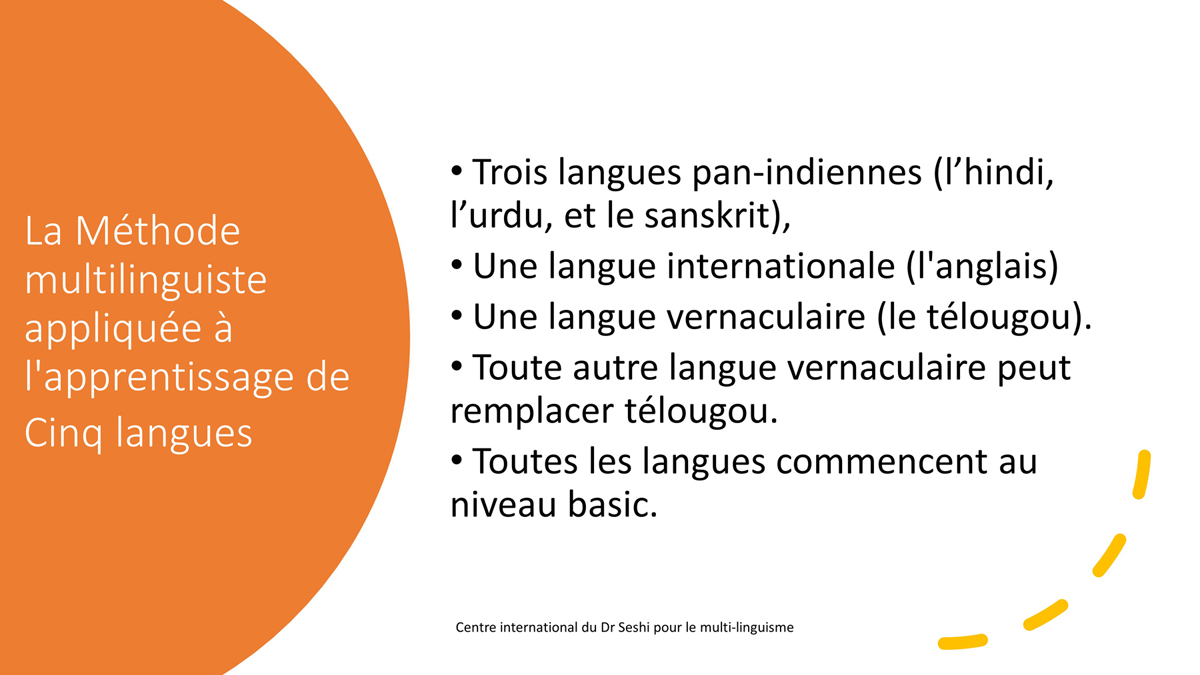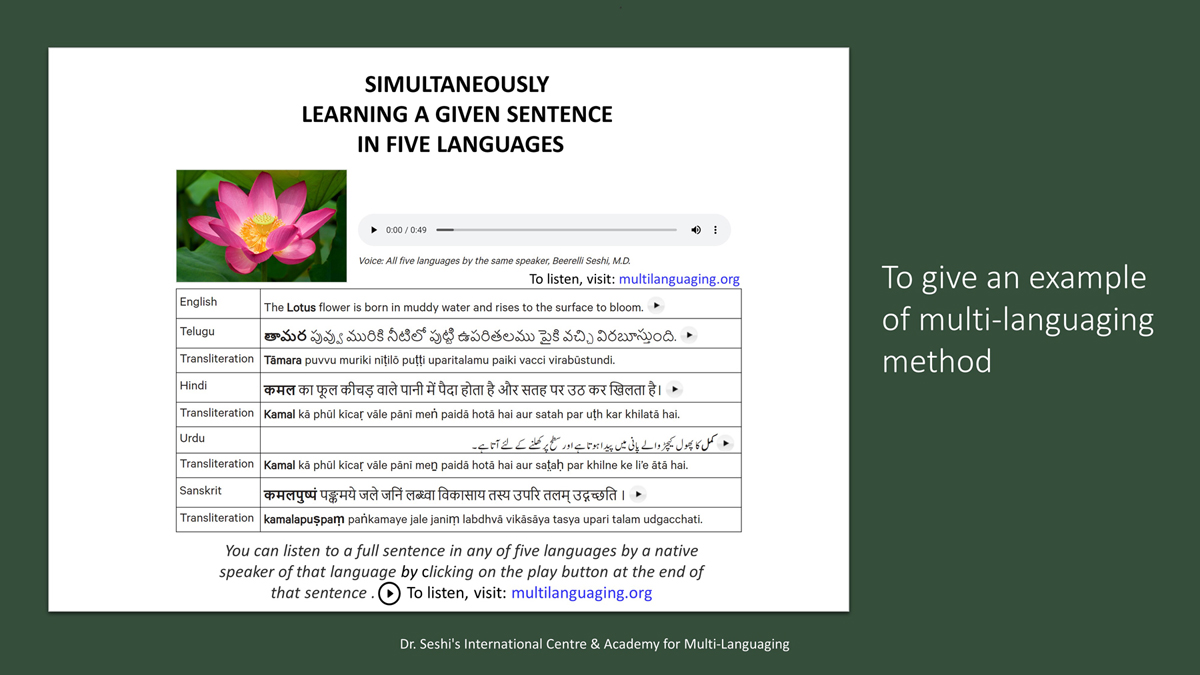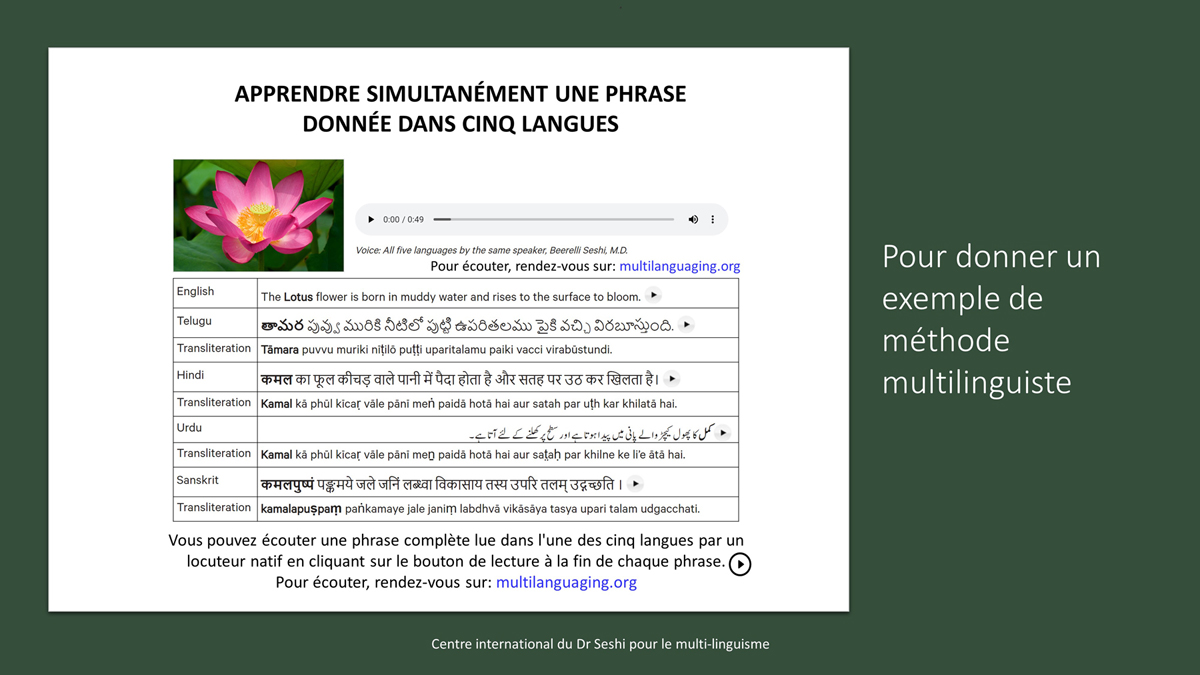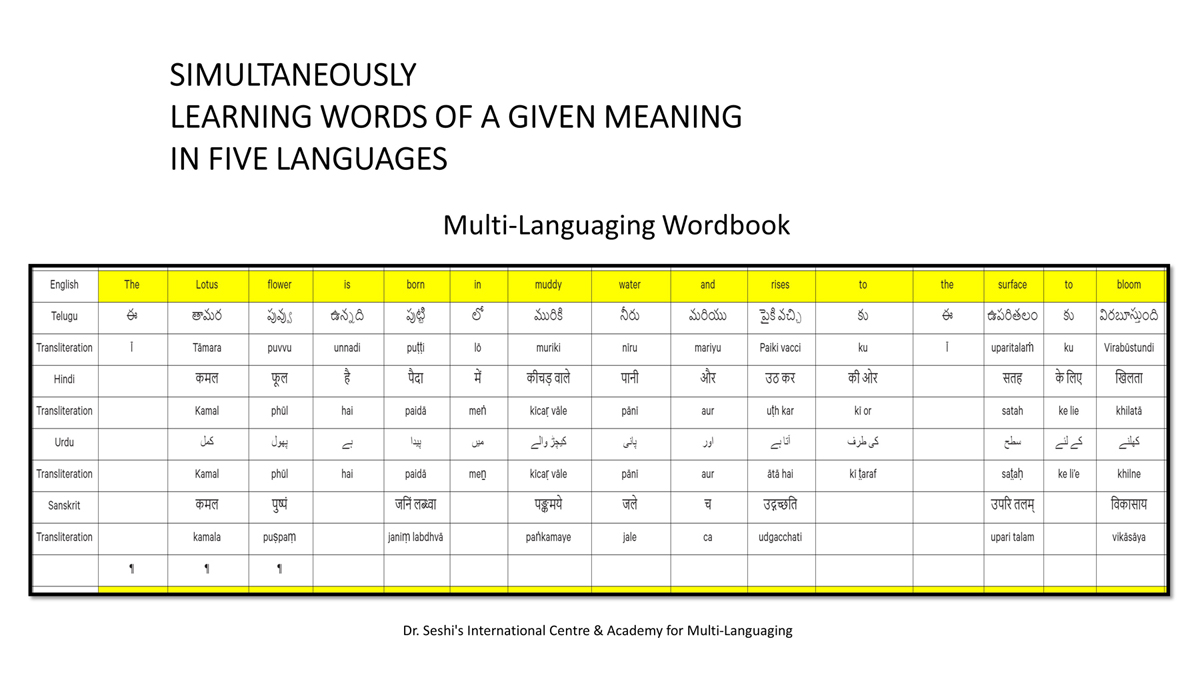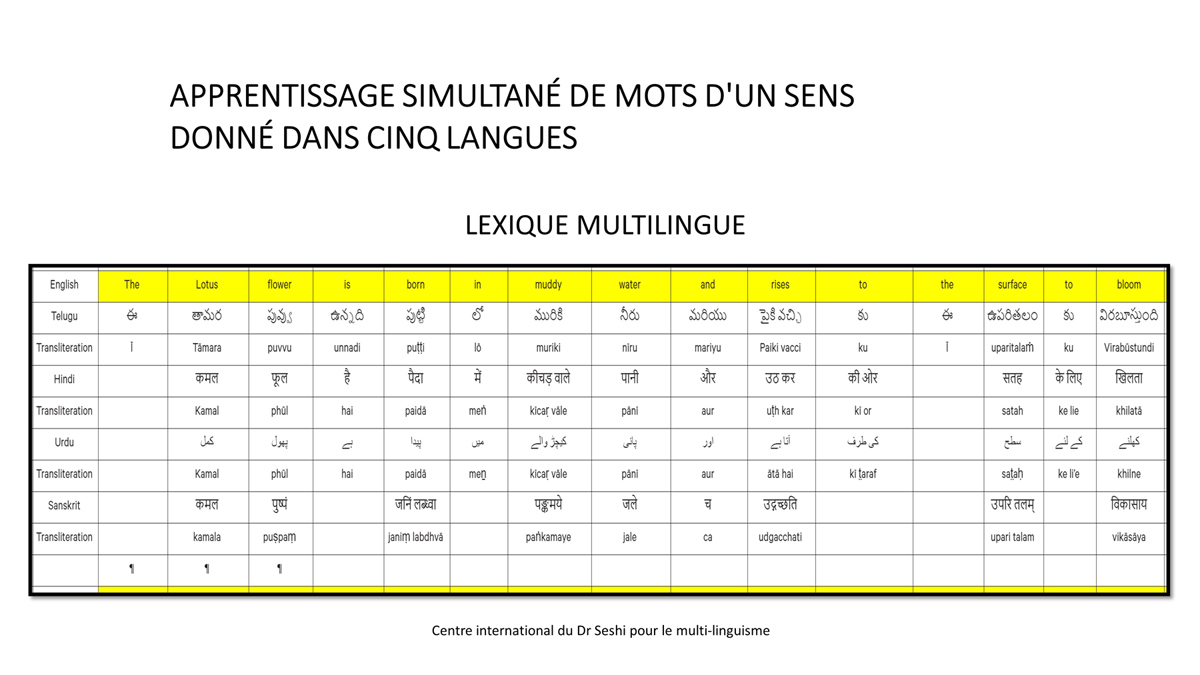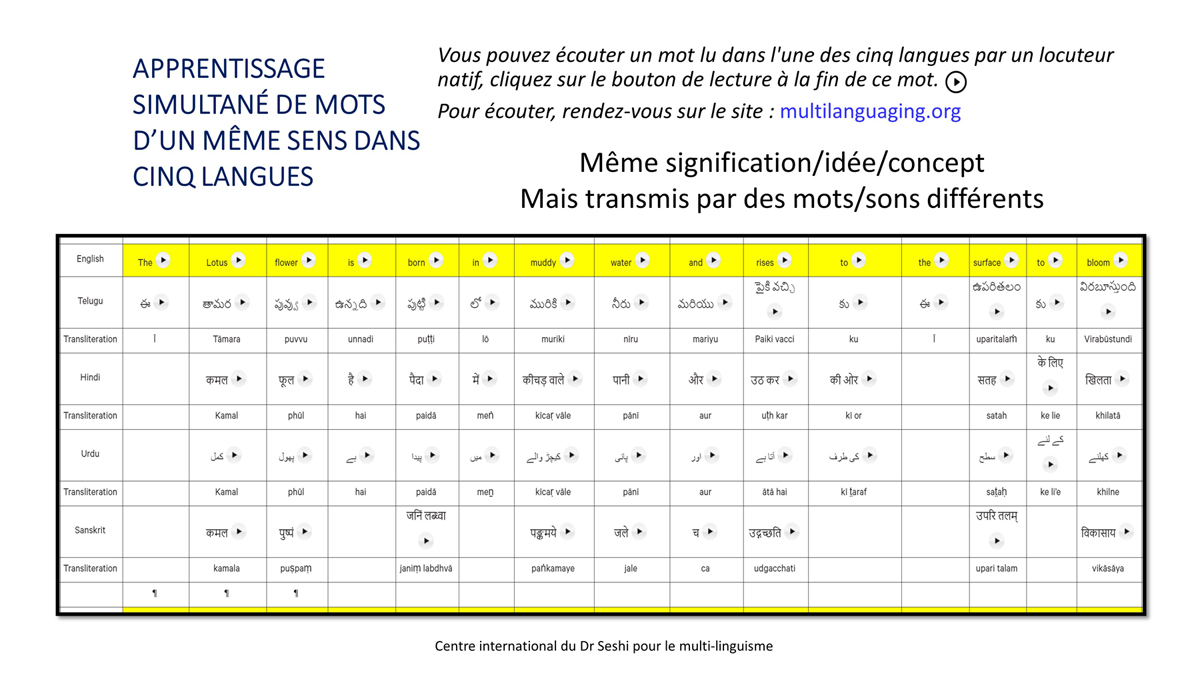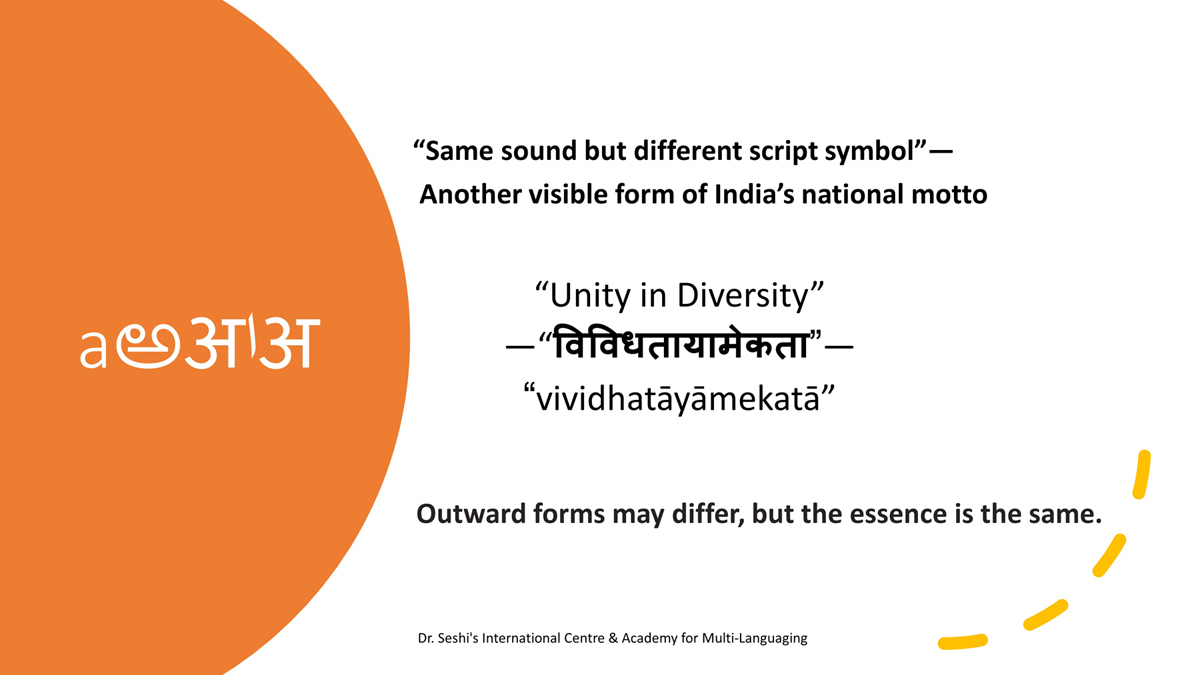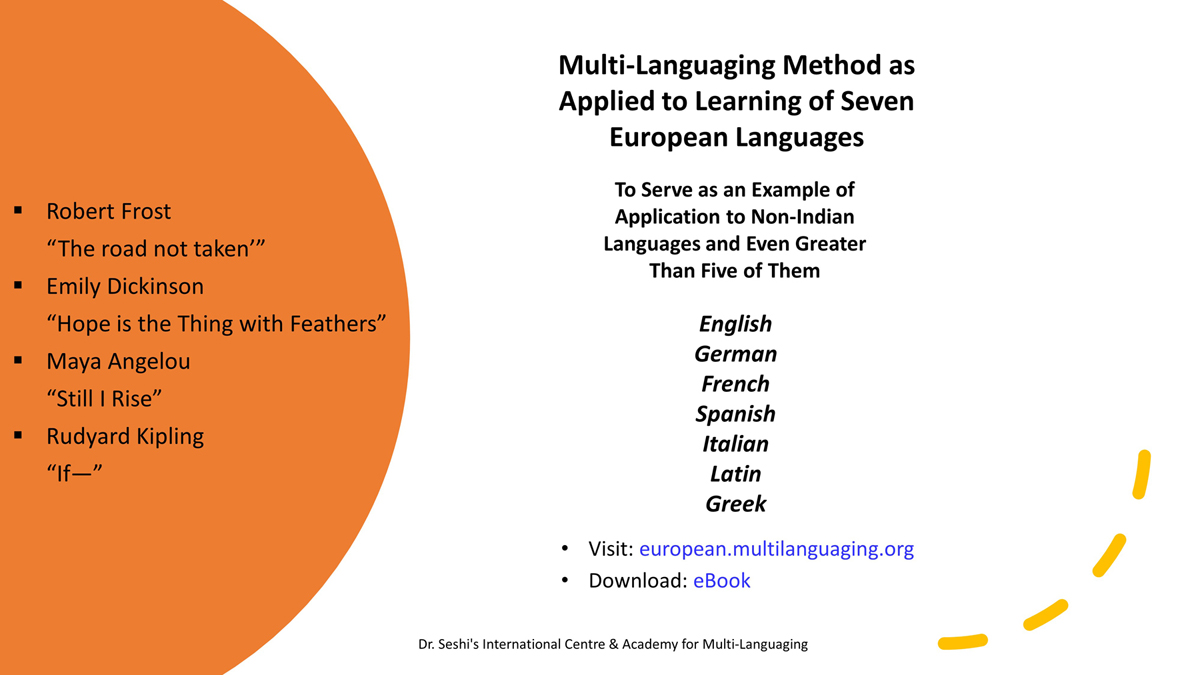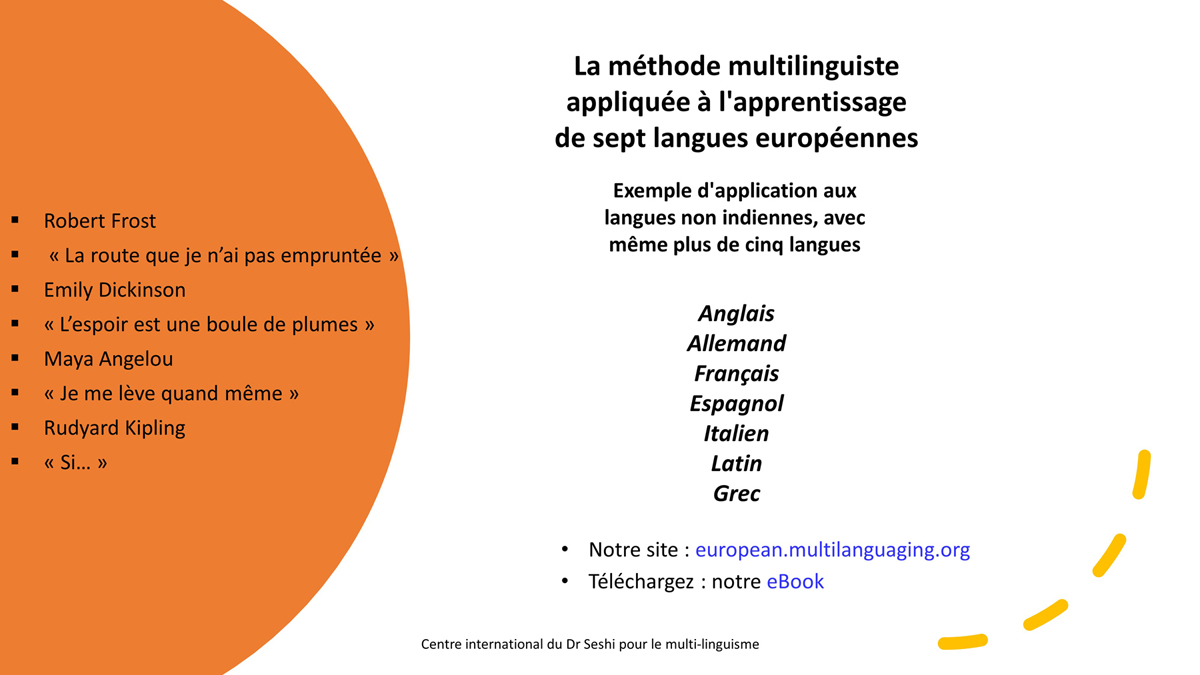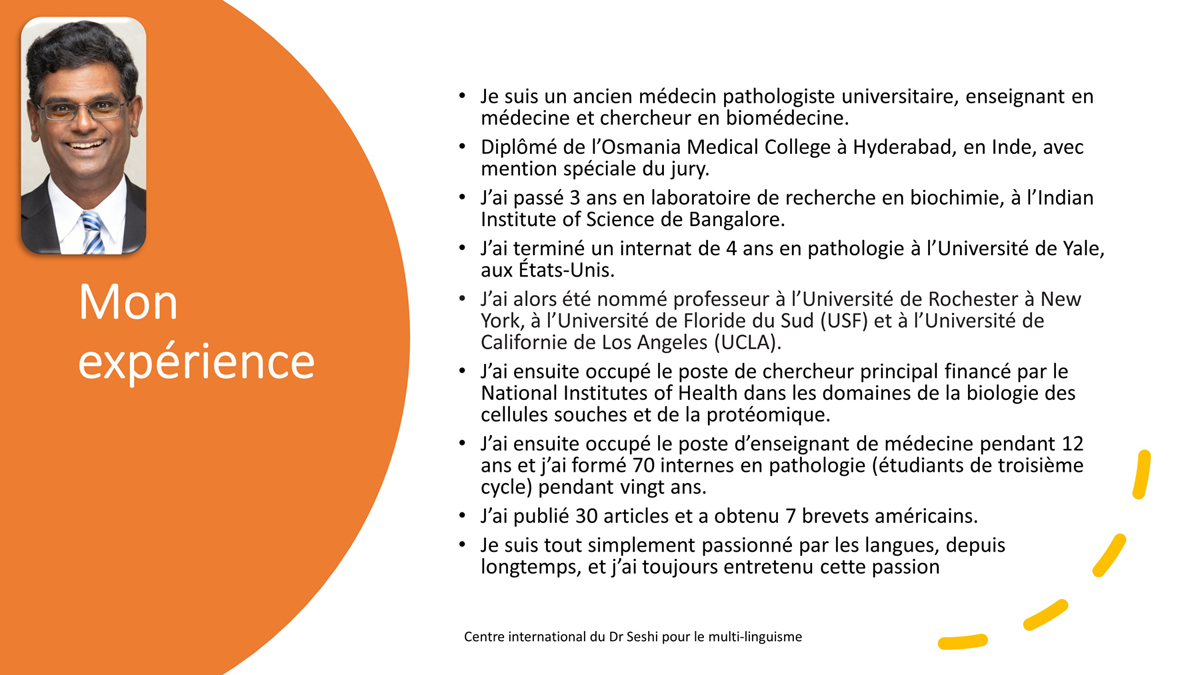
„Ändere Deine Sprache und Du änderst Deine Gedanken.“
Karl Albrecht

Beerelli Seshi, M.D.
| English | Hope Is The Thing With Feathers |
| German | Hoffnung ist das Ding mit den Federn |
| French | L’espoir est une boule de plumes |
| Spanish | La esperanza es esa cosa con plumas |
| Italian | La speranza è la creatura with(8) pennuta |
| Latin | Spes Est Res with(9) Pennata |
| Greek | Η Ελπίδα Είναι το Ον με Φτερά |
| Transliteration | I Elpída Eínai to On me Fterá |
| English | By Emily Dickinson (1891) |
| German | Von Emily Dickinson (1891) |
| French | d’Emily Dickinson (1891) |
| Spanish | Por Emily Dickinson (1891) |
| Italian | Di Emily Dickinson (1891) |
| Latin | Ab Aemilia Dickinson (1891) |
| Greek | Από την Έμιλυ Ντίκινσον (1891) |
| Transliteration | Apó tin Émily Ntíkinson (1891) |
| English | “Hope is the thing with feathers |
| German | „Hoffnung ist das Ding mit den Federn |
| French | « L’espoir est une boule de plumes |
| Spanish | “La esperanza es esa cosa con plumas |
| Italian | “La speranza è la creatura with(8) pennuta |
| Latin | Spes est res with(9) pennata |
| Greek | “Η ελπίδα είναι το ον με φτερά,10 |
| Transliteration | “I elpída eínai to on me fterá, |
| English | That perches in the soul, |
| German | Das in der Seele sitzt, |
| French | qui se perche dans l’âme |
| Spanish | que se posa en el alma, |
| Italian | Che si posa nell’anima, |
| Latin | Quae insidet in the(9) animae, |
| Greek | Που κουρνιάζει στην ψυχή, |
| Transliteration | Pou kourniázei stin psychí, |
| English | And sings the tune without the words, |
| German | Und die Melodie ohne die Worte singt, |
| French | et chante une mélodie sans paroles |
| Spanish | y entona the(7) melodías sin palabras, |
| Italian | E canta una melodia senza le parole, |
| Latin | Et canit the(9) carmen sine the(9) verbis, |
| Greek | Και κελαηδά το τραγούδι χωρίς the(11) στίχους, |
| Transliteration | Kai kelaidá to tragoúdi chorís stíchous, |
| English | And never stops at all, |
| German | Und nie aufhört (at all)1, |
| French | (And)2 sans s’arrêter, jamais, |
| Spanish | y no se detiene at(7) nunca, |
| Italian | E non smette mai, |
| Latin | Neque sistit at(9) omnino, |
| Greek | Και δεν σταματά ούτε μια στιγμή, |
| Transliteration | Kai den stamatá oúte mia stigmí, |
| English | And sweetest in the gale is heard; |
| German | Und das Süßeste im Sturm ist zu hören; |
| French | Même au milieu d’un ouragan(3), on l’entend. |
| Spanish | y más dulce en el vendaval se escucha; |
| Italian | E più dolce nella tempesta si ode; |
| Latin | Et dulcissime in the(9) flamine is(9) auditur ; |
| Greek | Και γλυκύτερο ακούγεται μέσα στην θύελλα, |
| Transliteration | Kai glykýtero akoúgetai mésa stin thýella, |
| English | And sore must be the storm |
| German | Und wund muss der Sturm sein. |
| French | Et si violente doit être la tempête |
| Spanish | y feroz tendrá que ser la tormenta |
| Italian | E sferzante must(8) sarà la tempesta |
| Latin | Et gravis necesse est esse the(9) tempestas |
| Greek | Και αγριεμένη πρέπει να είναι η καταιγίδα |
| Transliteration | Kai agrieméni prépei na eínai i kataigída |
| English | That could abash the little bird |
| German | Das könnte den kleinen Vogel beschämen |
| French | qui peut décourager un petit oiseau |
| Spanish | que pueda abatir al pequeño pájaro |
| Italian | Che possa turbare l’uccellino |
| Latin | Quae poterat percellere the(9) passerculum |
| Greek | Που μπορούσε το μικρό πουλί να οδηγήσει στα δύσκολα |
| Transliteration | Pou boroúse to mikró poulí na odigísei sta dýskola |
| English | That kept so many warm. |
| German | Das so viele warm hielt. |
| French | qui a réchauffé le cœur de tant de monde(4). |
| Spanish | que ha mantenido a tantos en calor. |
| Italian | Che kept(8) così tanti ha riscaldato |
| Latin | Qui calefecit so many(9) tantos. |
| Greek | Που κράτησε ζεστούς τόσους πολλούς (όσους ποτέ δεν ξαναείδα).12 |
| Transliteration | Pou krátise zestoús tósous polloús (ósous poté den xanaeída). |
| English | I’ve heard it in the chillest land, |
| German | Ich habe es im kühlsten Land gehört, |
| French | Je l’ai entendu dans les plus froides terres, |
| Spanish | La he escuchado en la más fría tierra, |
| Italian | L’ho sentita nella terra più gelida, |
| Latin | Audivi eum in the(9) frigidissima terra, |
| Greek | Το έχω ακούσει στην πιο παγωμένη γη, |
| Transliteration | To écho akoúsei stin pio pagoméni gi, |
| English | And on the strangest sea; |
| German | Und auf dem seltsamsten Meer; |
| French | et sur les plus effrayantes mers. |
| Spanish | y en el más extraño mar: |
| Italian | E sul the(8) mare più alieno; |
| Latin | Et in the(9) maxime insolito mari; |
| Greek | Και σε θάλασσα παράξενη πολύ, |
| Transliteration | Kai se thálassa paráxeni polý, |
| English | Yet, never, in extremity, |
| German | Und doch, niemals, in der Extremität, |
| French | Pourtant, même dans les pires moments(5), |
| Spanish | Mas nunca en la inclemencia, |
| Italian | Eppure, mai, fino allo stremo, |
| Latin | Attamen, numquam, in extremis, |
| Greek | Και όμως, πότε, στο έπακρο, |
| Transliteration | Kai ómos, póte, sto épakro, |
| English | It asked a crumb of me.” |
| German | Hat es einen Krümel von mir verlangt.“ |
| French | il ne m’a jamais rien demandé(6). » |
| Spanish | Me ha pedido una sola migaja de mí.” |
| Italian | Mi ha chiesto una briciola.” |
| Latin | It(9) Quaesivit a(9) micam de me. |
| Greek | Ζήτησε ένα ψίχουλο από εμένα (ως ύπαρξη ανθρωπινή).”13 |
| Transliteration | Zítise éna psíchoulo apó eména (os ýparxi anthropiní).” |
| English | Here is a weblink to a recitation of the poem in English. |
| German | Hier ist ein Weblink zu einer Rezitation des Gedichts in englischer Sprache. |
| French | Voici un lien vers une récitation du poème en anglais. |
| Spanish | Aquí está un enlace web de la recitación del (the)7 poema en inglés. |
| Italian | Qui trovi un collegamento alla (a)8 recitazione della (the)8 poesia in inglese. |
| Latin | Ecce (is a)9 vinculum retiale (to a)9 recitationi (of the)9 poematis in Anglica. |
| Greek | Εδώ είναι ένας σύνδεσμος σε μια απαγγελία του ποιήματος στα Αγγλικά, |
| Transliteration | Edó eínai énas sýndesmos se mia apangelía tou poiímatos sta Angliká, |
| English | I extend an open invitation to the readers to submit recordings of their recitations of its translations. |
| German | Ich richte eine offene Einladung an die Leser, Aufnahmen ihrer Rezitationen der Übersetzungen einzureichen. |
| French | J’invite (an open)2 ouvertement les lecteurs à me soumettre l’enregistrement de la récitation de ces traductions. |
| Spanish | Extiendo una invitación abierta para que los lectores nos manden las grabaciones de sus recitaciones de las traducciones. |
| Italian | Estendo l’invito (an)8 aperto ai (the)8 lettori a presentare le registrazioni delle loro recitazioni delle traduzioni. |
| Latin | Ego (to the)9 lectoribus (an)9 apertam invitationem porrigo ut recordationes recitationum (of)9 suarum translationum (of)9 eius (to)9 submittant. |
| Greek | Προσκαλώ οποτεδήποτε θέλουν οι αναγνώστες να υποβάλουν ηχογραφήσεις των απαγγελιών τους των μεταφράσεών του. |
| Transliteration | Proskaló opotedípote théloun oi anagnóstes na ypováloun ichografíseis ton apangelión tous ton metafráseón tou. |
| English | If selected, their audio/video clips will be hosted on this website. |
| German | Wenn sie ausgewählt werden, werden ihre Audio-/Videoclips auf dieser Website gehostet. |
| French | Les meilleurs clips audio/vidéo seront sélectionnés et publiés sur ce site. |
| Spanish | Si seleccionamos vuestros clips de audio/video serán publicados en este sitio web. |
| Italian | Se selezionato il tuo audio/videoclip sarà pubblicato su questo sito Web. |
| Latin | Si selecta, eorum audibilia/visibilia praecisa (will be)9 divulgabuntur in hac pagina retiali. |
| Greek | Αν επιλεγούν, τα ηχητικά/βίντεο κλιπ, θα φιλοξενηθούν σε αυτόν τον ιστότοπο. |
| Transliteration | An epilegoún, ta ichitiká/vínteo klip, tha filoxenithoún se aftón ton istótopo. |
German
1 “at all”- Translation of these words in German in this context is not necessary because of the language structure, which is different from English.
French
2 “and” and “an open”- Translation of these words in French in this context is not necessary because of the language structure, which is different from English.
Below are some of the words with explanation.
3 “And sweetest in the gale” translated as “Même au milieu d’un ouragan” which means “Even in the midst of a hurricane”
4 “kept so many warm” translated as “a réchauffé le cœur de tant de monde” which means “warmed the hearts of so many people”
5 “never, in extremity,” translated as “même dans les pires moments” which means “even in the worst moments,”
6 “It asked a crumb of me” translated as “il ne m’a jamais rien demandé” which means “it never asked me for anything”
Spanish
7 “the” and “at” – Translation of these words in Spanish in this context is not necessary because of the language structure, which is different from English.
Italian
8 “with”, “must”, “kept”, “the”, “a” and “an” – Translation of these words in Italian in this context is not necessary because of the language structure, which is different from English.
Latin
9 “with”, “in the”, “the”, “at”, “is”, “so many”, “It”, “a”, ”is a”, “to a”, “an”, “to the” and “will be”- Translation of these words in Latin in this context is not necessary because of the language structure, which is different from English.
Greek
10 “Hope is the thing with feathers” translated as “Η ελπίδα είναι το (ον) με φτερά,” Back translation: Hope is the (being) with feathers.
11 “the” – Translation of these words in Greek in this context is not necessary because of the language structure, which is different from English.
12 “That kept so many warm.” translated as “Που κράτησε ζεστούς τόσους πολλούς (όσους ποτέ δεν ξαναείδα).” Back translation: that kept warm so many (as I have never seen before).
13 “It asked a crumb of me.” translated as “Ζήτησε ένα ψίχουλο από εμένα (ως ύπαρξη ανθρωπινή).” Back translation: It asked a crumb from me (as a human being).




